

PROGRAM
CALGARY, ALBERTA EVENT DATES
Pre-Conference Workshops
October 20th, 2025
Conference Exhibit Days October 21st and 22nd, 2025


Message from CNAR’s Board Chair and Executive Director
WELCOME TO CNAR 2025
On behalf of CNAR’s Board of Directors and staff, we are delighted to welcome you to Calgary for CNAR’s 2025 Annual National Conference, the largest gathering of the professional regulatory community in Canada. Each year, this event brings regulators together to share knowledge, reflect on emerging challenges, and strengthen the practices that safeguard the public interest.
This year’s program is designed to spark conversation and deepen learning across a wide range of issues. We are honoured to begin with an opening keynote from Mark Tewksbury, Olympic champion and humanitarian, who will share powerful insights on courage, resilience, and leading with authenticity. On our second day of the Conference, keynote Dr. Chika Oriuwa, a trailblazing author and thought leader, will encourage reflection on organizational wellness and equity. We’ll also look beyond Canada with our plenary on Right Touch Regulation with Alan Clamp, CEO of the UK Professional Standards Authority; as well as a concurrent session featuring Dr. Rebecca Haw Allensworth, author of The Licensing Racket
Across the three days of the Conference, you will find a diverse selection of pre-Conference workshops and concurrent sessions addressing timely and practical topics, such as interprovincial trade barriers; artificial intelligence in a regulatory context; relational governance; regulatory approaches to cultural safety and reconciliation; data-driven oversight; and risk-based regulation. The program also includes Lunch ’n Learn sessions and CONNECT discussions with opportunities for dialogue and peer exchange, as well as bite-sized CNAR TV interviews to strengthen our engagement and learning both online and in person. As always, our exhibitor hall will feature leading partners who support the regulatory community with innovative tools and services.
CNAR 2025 offers a space to learn, reflect, and build connections that strengthen both our individual organizations and the broader regulatory landscape. Thank you for joining us in our journey to achieve regulatory excellence together, and we look forward to an engaging and memorable conference together.
Warm regards,
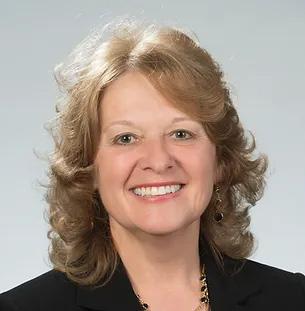
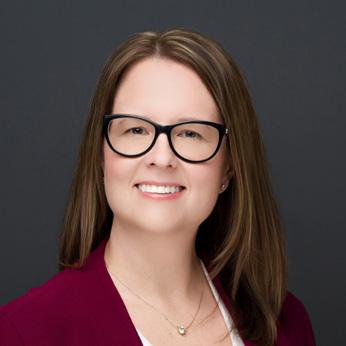

ALICE KENNEDY Board Chair

JENNIFER BERTRAND Executive Director

A Leading Canadian Exam Partner
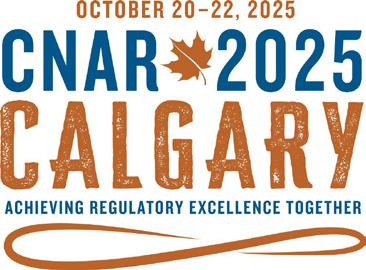
SECURITY AND ACCESS—WITHOUT COMPROMISE
Canadian regulators trust Meazure Learning more than anyone else to defend the credibility of their professions. With 125+ Canadian certification and licensure clients and a 40-member Canada-based team, we help you deliver exams that withstand scrutiny and reach every candidate.
What Every Regulator Needs to Sleep at Night
Layered Exam Security
Robust safeguards across the assessment life cycle to protect content, deter misconduct, and preserve programme credibility.
Exam Development and Psychometrics
The expertise and tools needed for fair, reliable, and defensible exams that accurately measure competence and stand up to scrutiny.
Multi-Modal Exam Delivery
Industry-leading remote proctoring, an extensive Canadian test centre network, or hybrid exam delivery to meet every stakeholder’s needs.
“[Meazure Learning’s] willingness to collaborate with us and think about the needs of our organization [goes] above and beyond what we would expect from other [providers]. And that’s exactly why we’re loyal to [them].”
Kyle Todt Director of Assessments, Royal College of Dentists of Canada
Make Booth #1 Your First Stop
Removing

HALL
MACLEOD HALL
South Building

Pre-Conference Program
MONDAY, OCTOBER 20TH
TIME: 8:00 AM–4:00 PM
FULL DAY PRE-CONFERENCE WORKSHOP Fundamentals of Regulation
Workshops are in-person only and will not be recorded or streamed.
Note: All times are in Mountain Time.
CNAR’s highly-rated Fundamentals of Regulation Workshop will appeal to anyone who is seeking to learn more about professional regulation in the Canadian context. This compact yet comprehensive program is designed to provide attendees with content that is both practical and informative, featuring presentations from experts in their respective fields in regulation.
Presentations and interactive breakout discussions will cover:
• The regulator’s mandate: Serving and protecting the public interest
• Regulatory governance
• Quality practice: Assuring entry and continuing competency
• Professional conduct: Complaints, investigations, discipline and fitness to practice
• The regulator’s voice: Communications, relationships, and engagement
Throughout the day, attendees will also have the opportunity to engage in Q & A with presenters and network with each other. Who should attend?
Past participants of this highly-rated session include staff who have been working for a regulatory body for less than three years; board/council members who wish to learn more about how to ensure public protection in the regulatory sector; those who may have relied primarily on on-the-job training to gain knowledge and skills in the area; regulators seeking to enhance their peer network; and individuals seeking a “sampler” of topics in regulation.
CNAR is pleased to share that starting in 2026, the Fundamentals of Regulation will be offered as an online course. The offering of the workshop in Calgary will be the last chance to complete the program in-person.
Join us for this engaging, interactive workshop!
• Gillian Slaughter, Registrar & CEO, College of Occupational Therapists of Ontario
• Jacquie Messer-Lepage, Executive Director/Registrar, Saskatchewan College of Paramedics
• Leigha Hubick, Registrar, Chartered Professional Accountants Saskatchewan (CPASK)
• Lindsay Steele, Associate Director, Professional Practice, Engineers and Geoscientists British Columbia
• Martin Lussier, Manager of Communications and Public Engagement, College of Registered Nurses of Manitoba
LEAD ORGANIZATION:

MASTER CLASS I: PRE-CONFERENCE WORKSHOP
AI in Professional Practice: Setting and Applying Principles and Expectations for Public Protection
Artificial intelligence (AI) is here to stay. It’s becoming embedded in our everyday lives and being applied in the practice of a myriad of professions within healthcare, legal, accounting, engineering, and other sectors and industries.
How can regulators provide supportive frameworks for professionals to leverage the opportunities of AI in their practice while also balancing the risks and uncertainties that AI raises for public protection?
• What are guiding principles?
• What should regulators expect of their registrants?
• What do registrants need from regulators when it comes to guidance about AI?
• What are the unique considerations for the use of AI by professions in healthcare compared to those in other sectors and industries?
This workshop doesn’t just promote the conversation about rules - it’s about trust, safety, innovation, and protecting public interest. How can regulators strike the right balance?
Join us as we explore the regulation of the use of AI by professionals through presentations and interactive sessions by subject matter experts and regulatory peers.
Sessions include:
• Regulation of AI in Professional Work: Options and Opportunities – Zubin Austin will present findings from his research focused on evidence-based principles for the regulation of AI in professional work. Attendees will have opportunity to discuss and reflect on profession-specific application of these principles to identify potential pathways for regulatory action.
• Exploring AI Use in the Professions: Issues and Considerations for Regulators – Zubin Austin will continue the dialogue about how AI is being used by professionals and key considerations for regulators. Panelists for this discussion are presenters for Sessions 3 and 4.
• Making a Statement and Taking a Stand: Proactively Developing and Issuing Guidance for Professionals on AI – Representatives from the Royal College of Dental Surgeons of Ontario and Nova Scotia Barristers’ Society will present the guidance developed for their registrants/licensees about the use of AI in professional practice. We’ll take a closer look at the process and considerations for developing such guidance, positioning guidance in an ethical framework, consider what professionals and the public expect of regulators for such guidance, and how such guidance intersects with that provided by third parties. Attendees will also have the opportunity to discuss key issues with peers.
• AI and Professional Conduct and Competency: Are You Ready as a Regulator? – Representatives from the College of Patent Agents and Trademark Agents and College of Registered Psychotherapists of Ontario will explore and consider uses of AI that pose risks to the demonstration of competency or professional conduct by registrants/licensees. They will share and discuss policies, practices, and other mechanisms that can be put in place to enable regulators to take action and respond to potential risks and harms in these areas. Attendees will also have the opportunity to discuss key issues with peers.
Stay ahead of the curve and position your organization to effectively support and regulate the use of AI in professional practice in ways that remain open to innovation, mitigate risks of the unknown, and protect the public.
Who should attend?
While all are welcome, this workshop will be of interest to individuals in any position who are interested in AI in professional regulation. The sessions in the workshop will proceed on the basis that attendees have knowledge of regulatory mandates and core functions, as well as awareness and introductory understanding of what AI is.
• Cameron Thompson, Manager of Standards and Strategy, Royal College of Dental Surgeons of Ontario (RCDSO)
• Deborah Adams, Registrar & CEO, College of Registered Psychotherapists of Ontario (CRPO)
• Jonathan Saumier, Counsel, Legal Services Support, Nova Scotia Barristers’ Society (NSBS)
• Juda Strawczynski, CEO and Registrar, College of Patent Agents & Trademark Agents (CPATA)
• Zubin Austin, Professor and Murray Koffler Research Chair, Leslie Dan, Faculty of Pharmacy and the Institute for Health Policy, Management, and Evaluation at the Dalla Lana School of Public Health – Temerty Faculty of Medicine, University of Toronto
LEAD ORGANIZATION:

AM PRE-CONFERENCE WORKSHOP
Advanced Trauma-Informed Investigation Practices
Have you learned about the neurobiology and impact of trauma but are still unsure how to apply trauma-informed principles into your daily practice?
This interactive and practical workshop focuses on applying trauma-informed principles in regulatory investigations, with emphasis on trauma-informed interview practices.
Guided by two expert investigators – one of whom brings lived experience as a complainant following a traumatic experience – this workshop draws on hundreds of trauma-informed investigations conducted for regulators across Canada. Using case studies and facilitated discussion, participants will leave feeling confident about how to incorporate trauma-informed care into their daily practice.
Key Topics Include:
• Applying trauma informed principles to every interaction
• Building trust and creating psychological safety with trauma-affected individuals
• Trauma-informed interview practices
• Adapting investigative process without compromising objectivity
• Common challenges and mistakes
Participants will leave with practical strategies they can immediately integrate into their investigative work – strategies that promote fairness, reduce harm, and improve the quality of evidence gathered.
This workshop is ideal for investigators, investigation managers, legal counsel, professional conduct staff, and anyone else involved in the complaints and discipline processes.
• Greg Hutchinson, Co-CEO, Barker Hutchinson
• Laura Hutchinson, Co-CEO, Barker Hutchinson
LEAD ORGANIZATION:
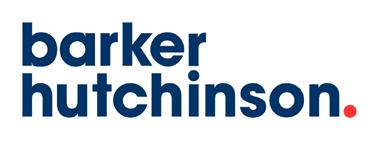
AM PRE-CONFERENCE WORKSHOP
From Awareness to Adoption: Tracking Readiness and Risk in Regulatory Change
Regulatory transformation is never just about writing new rules. It’s about cultivating trust, managing risk, and supporting readiness to adopt change. Whether modernizing legislation, updating standards, or shifting governance models, success depends on how changes are understood, accepted, and acted on by registrants and the public.
This interactive session introduces a response monitoring model designed to help regulators assess progress across six key stages: Exposure, Interest, Comprehension, Knowledge, Attitude, and Decision.
Through a case study with the College of Veterinarians of Ontario, participants will explore how this framework was applied to support registrant readiness during a major legislative modernization initiative. The session will highlight how outcome-driven metrics and phased engagement strategies are helping to track adoption, inform communication efforts, and flag emerging risks early in implementation.
Participants will leave with a flexible framework to support staged engagement and outcome-driven measurement, ready to apply to any regulatory reform initiative, big or small.
Learning Objectives:
• Track Readiness – Learn how to assess registrant and public progress across key stages of engagement and adoption
• Measure Impact – Identify outcome-based indicators to evaluate awareness, understanding, and confidence
• Manage Risk – Explore tools to flag emerging risks and adapt strategies during implementation
This workshop is designed for regulatory professionals engaged in policy, communications, quality assurance, research, or governance. Ideal for leaders navigating legislative reform, new governance models, or significant updates to professional standards.
• Doha Melhem, VP of Consulting & Chief Evaluator, Pivotal
• Lindsay Sproule, Director Regulatory Programs Performance, College of Veterinarians of Ontario
• Kali Pieters, Policy & Projects Coordinator, College of Veterinarians of Ontario
• Emma Martin, Research Manager, Pivotal Research
LEAD ORGANIZATION:

AM PRE-CONFERENCE WORKSHOP
content generation – how does it work in practice?
Discover how AI can accelerate exam content development – without compromising quality, security, or compliance. This workshop offers a practical look at how purpose-built AI, guided by human expertise, is transforming the assessment lifecycle and exam development at scale.
You’ll be taken through a holistic process that begins with training AI models using approved content sources and establishing custom guardrails. See how AI-driven quality checks and streamlined workflows support Subject Matter Expert (SME) review, maintaining human oversight where professional judgement and regulatory compliance are essential.
Learn how seamlessly integrating AI into your exam development process can lead to faster, accurate, and more efficient outcomes –while ensuring your organization is future proof for AI advances.
• Isabelle Gonthier, PhD, ICE-CCP, Chief Assessment Officer, PSI
• Sean Gasperson, PhD, Associate Vice President, Assessment Services, PSI
LEAD ORGANIZATION:

The use of artificial intelligence (AI) can have the allure of a promise of efficiency. Yet, with public protection mandates, regulators have important elements to consider and navigate when considering and adopting AI tools.
• Are there opportunities and efficiencies that can be realized with the use of AI in regulatory operations and practice?
• What are some of the tools?
• What safeguards and considerations need to be accounted for?
• What might solutions look like?
Join us as we explore these questions and more with presentations and interactive sessions by experts and examples from regulatory bodies about how they are using AI in regulatory work.
Who should attend? While all are welcome, this workshop will be of interest to individuals in any position who are interested in AI in professional regulation. The sessions in the workshop will proceed on the basis that attendees have knowledge of regulatory mandates and core functions, as well as awareness and introductory understanding of what AI is.
• Teresa Scassa, Canada Research Chair in Information Law and Policy , Faculty of Law, University of Ottawa
• Troy Janzen, Chief of Practice, Deputy Registrar, and Complaints Director , College of Alberta Psychologists
• Floyd Garvey, Director, Information Technology , College of Nurses of Ontario
• Erin Tilley, MN, BHSc, RN, PMP, FRE Manager, Regulatory Policy, College of Nurses of Ontario
LEAD ORGANIZATION:

TIME: 1:00 PM–4:00 PM
PM PRE-CONFERENCE WORKSHOP
Unlocking the Future: Digital Forensics & AI in Professional Regulatory Investigations
As technology rapidly evolves, digital forensics and artificial intelligence (AI) are transforming the way professional regulatory investigations are conducted. This interactive, hands-on workshop will give attendees an up-close look at these cutting-edge tools in action. Participants will explore how digital forensic techniques uncover critical evidence and how AI enhances investigative efficiency, pattern detection, and decision-making.
Through live demonstrations, real-world case examples, and expert insights, this session will highlight the practical applications, challenges, and future trends of these powerful technologies in regulatory investigations.
Key Learning Takeaways:
1. Practical Insights & Demonstrations – Attendees will see digital forensics and AI tools in action, learning how they can be applied in real-world regulatory investigations.
2. Understanding the Risks & Benefits – Participants will explore the advantages and limitations of AI and digital forensics, including ethical considerations and legal implications.
3. Preparing for the Future – The session will provide a forward-looking view of emerging trends in technology, equipping regulators with knowledge to stay ahead in an evolving digital landscape.
Target Audience
Regulators and legal professionals looking to understand and see first hand how digital forensics and AI apply to regulatory investigations, so they can understand the benefits, risks, and true application of technology to investigative work.
• Dean Benard, CEO, Benard + Associates
• Eugene Silva, Forensic Analyst, TraceX Digital Forensics
LEAD ORGANIZATION:

GLEN 209
PM PRE-CONFERENCE WORKSHOP
Interactive Discipline Hearing
This half-day workshop covers the ‘ins and outs’ of professional discipline hearings. Attendees will participate in adjudicating a simulated discipline hearing and learn about the major steps and common legal issues that can arise with practical and informative commentary from experienced professional discipline lawyers. This interactive workshop and commentary will cover all of the major steps in a professional discipline hearing:
• Hearing opening statements and identifying issues
• Preliminary applications and objections
• Dealing with agreements and agreed exhibits
• Witness testimony: managing the process
• Asking clarifying questions
• Hearing closing arguments
• Assessing witness credibility
• Deliberations and decision-writing
Who should attend?
This workshop will appeal to regulatory staff, board/council and committee members and volunteers who want to learn more about professional discipline hearings and common legal issues by placing themselves in the shoes of an adjudicator.
Join us for this engaging, interactive workshop!
• Jason Kully, Partner, Field Law
• Vita Wensel, Lawyer, Field Law
• Kim Precht, Partner, Field Law
• Chelsea Bailey, Partner, Field Law
• Greg Sim, Partner, Field Law
LEAD ORGANIZATION:

PROGRAM-AT-A-GLANCE
DAY 1 – TUESDAY, OCTOBER 21ST, 2025
TIME: 7:00 AM–8:50 AM
REGISTRATION / BREAKFAST / EXHIBITION
TIME: 8:30 AM–9:00 AM
OPENING REMARKS
TIME: 9:00 AM–10:00 AM
KEYNOTE: MARK TEWKSBURY
Olympic Gold Medalist, Humanitarian, Activist and Author
TIME: 10:00 AM–10:30 AM ENERGY BREAK / EXHIBITION
TIME: 10:30 AM–11:30 AM CONCURRENT SESSIONS
• SESSION 1: From Bottleneck to Breakthrough: Tackling Investigation Backlogs
Note: All times are in Mountain Time.
• SESSION 2: Guiding Artificial Intelligence Integration in Professional Practice: The Regulator’s Role
• SESSION 3: Relational Governance – What is it and why it works
• SESSION 4: Public & Patient Voice in Regulation: Turning Insights into Action
• SESSION 5: AI in Action: Transforming How Exams and Practice Tests Are Developed
TIME: 11:30 AM – 1:00 PM LUNCH/EXHIBITION
TIME: 11:55 AM–12:55 PM LUNCH N’ LEARN #1
Building Trust and Reducing Barriers: A 360 Degree View of the Complainant’s Experience
TIME: 11:55 AM–12:55 PM LUNCH N’ LEARN #2
Regulating Health Professions in the Context of For-Profit Ownership
TIME: 11:55 PM–12:55 PM CONNECT SESSION
Breaking Down Barriers: Using Regulation to Remove Interprovincial Trade Barriers
TIME: 11:55 PM–12:55 PM CONNECT SESSION
Chill Out With a Meazured Break
TIME: 1:00 PM–2:00 PM PLENARY SESSION #1
Right Touch Regulation 2025
TIME: 2:00 PM–2:30 PM ENERGY BREAK / EXHIBITION
Program-at-a-Glance
TIME: 2:30 PM–3:30 PM CONCURRENT SESSIONS
• SESSION 6: A College’s Journey to Change Culture and Adopt a Regulatory Philosophy to Better Serve the Publics’ Interests
• SESSION 7: Vehicle Export Investigation
• SESSION 8: When a Regulator Gets Left Behind: The Problem with Decentralized Provincial Oversight of Professional Regulation
• SESSION 9: Risk-Based Regulation in the Modern World: Using Data, Innovation, and Collaboration to Put Risk at the Centre of Our Work
• SESSION 10: Hiring into an Indigenous-Specific Role: Striving for Culturally Safe Recruitment
TIME: 3:30 PM–3:45 PM ENERGY BREAK / EXHIBITION
TIME: 3:45 PM–4:45 PM PLENARY SESSION #2
Navigating Labour Mobility in a ‘Trumped’ Up Trade War: Old Topic, New Pressures
TIME: 5:00 PM–7:00 PM
Networking Reception
Program-at-a-Glance
DAY 2 – WEDNESDAY, OCTOBER 22ND, 2025
TIME: 7:30 AM–8:20 AM
REGISTRATION / BREAKFAST / EXHIBITION
TIME: 8:20 AM–8:30 AM
OPENING REMARKS
TIME: 8:30 AM–9:30 AM
KEYNOTE SPEAKER: DR. CHIKA STACY ORIUWA
Physician, Expert in Human Connection, Authentic Leadership, and Organizational Wellness
TIME: 9:30 AM–9:45 AM ENERGY BREAK / EXHIBITION
TIME: 9:45 AM–10:45 AM CONCURRENT SESSIONS
• SESSION 11: Enhancing Board/Council Member Competencies: An Integrated Approach to Effective Knowledge Transfer
• SESSION 12: Is Professional Regulation a Racket?
• SESSION 13: Measuring What Matters: Building Effective Regulatory Performance Frameworks
• SESSION 14: Frequent Flyers, Bad Seeds, and Irredeemables: What Can Regulators Do About Bad Judgment?
• SESSION 15: Working Towards Bridging Reconciliation & Regulation to Support Advancing Indigenous Professionals
TIME: 10:45 AM–11:00 AM ENERGY BREAK / EXHIBITION
TIME: 11:00 AM–12:00
Shifting the Paradigm: Equity-informed Approaches to Modernizing Entry to Practice for Internationally Trained Applicants
TIME: 1:30 PM–2:30 PM CONCURRENT SESSIONS
SESSION 16: The Transition from Self-Regulation to Government-Based Regulation
SESSION 17: Regulatory Agility: Addressing Catastrophic Events through Jurisdictional Harmonization
SESSION 18: Questioning competence: Is AI Changing the Paradigm for Item Development?
SESSION 19: Tech-Driven Truth: AI & Digital Forensics in the Regulatory World
SESSION 20: Tales from the Trenches: The Dos and Don’ts of Trauma-Informed Sexual Misconduct Investigations & Prosecutions
Program-at-a-Glance
TIME: 2:30 PM–2:45 PM ENERGY BREAK / EXHIBITION
TIME: 2:45 PM–4:00 PM PECHAKUCHA 20X20: PLENARY
• PechaKucha #1: Five Years in the Hot Seat: Deep Thoughts from the Office of the Registrar
• PechaKucha #2: Advanced Topics in Navigating Disclosure Obligations for Professional Discipline Proceedings
• PechaKucha #3: What if They’re All Lying to Us?
• PechaKucha #4: Purpose-Driven Sanctions
• PechaKucha #5: Five Years of Herding Cats (or, Managing Volunteers for a National Association)
• PechaKucha #6: HYPE 300: The Regulator’s Person-Centred Multi-Tool
• PechaKucha #7: We want to hear from you! A Regulator’s Approach to Understanding its Impact
• PechaKucha #8: Accommodating ASL Interpretation for the Massage Therapy MCQ Examination
TIME: 4:00 PM–4:05 PM CLOSING REMARKS

DAY 1 –
TUESDAY, OCTOBER 21ST, 2025
8:10–8:25 AM
Note: All times are in Mountain Time.
EPISODE 1: FROM APOLOGY TO ACTION: THE RESTORATIVE PRACTICES PROGRAM AT CPSM
JENNIFER BERTRAND
EXECUTIVE DIRECTOR, CNAR
In conversation with Jayson Stoffman, Medical Consultant, and Tara Myran, Knowledge Translation and Mobilization Specialist, College of Physicians and Surgeons of Manitoba
10:00–10:10 AM
EPISODE 2: PUTTING PRINCIPLES INTO PRACTICE: CUSTOMIZING RIGHT TOUCH REGULATION FOR YOUR CONTEXT NL, NS
CLAUDETTE WARREN
CHAIR, COLLEGE OF MASSAGE THERAPISTS OF NEWFOUNDLAND AND LABRADOR
In conversation with Alison Bird, Deputy General Counsel, Nova Scotia College of Nursing
11:30–11:45 AM
EPISODE 3. DISCIPLINE COSTS REVISITED: WHO SHOULD PAY THE PRICE?
CLARE BILEK
LEGAL COUNSEL, CPA NS
In conversation with Greg Sim, Partner, Field Law, and Jean-Claude Killey, Partner, Paliare Roland LLP
12:40–12:55 PM TESTING
EPISODE 4: MAKING COMPETENCE COUNT: MEANINGFUL ASSESSMENTS IN REGULATION NATIONAL
JENNIFER BERTRAND
EXECUTIVE DIRECTOR, CNAR
In conversation with Greg Sadesky, For Good Measure, and Chris Beauchamp, Meazure Learning
2:00–2:10 PM ENTRY TO PRACTICE AND REGISTRATION
EPISODE 5: THE MOBILE PROFESSIONAL: NAVIGATING OPPORTUNITY AND ENSURING PUBLIC PROTECTION NB, MB
OLAMIDE LAWAL
REGISTRAR & DIRECTOR, REGULATORY AFFAIRS, CPA NEW BRUNSWICK
In conversation with Deb Elias, CEO/Registrar, College of Registered Nurses of Manitoba
4:45–4:55 PM FITNESS TO PRACTICE | RESEARCH AND EVALUATION
EPISODE 6: FROM COMPLIANCE TO COMPASSION: RETHINKING THE REGULATOR’S ROLE IN WELLNESS ON, AB
ANITA ASHTON
DEPUTY REGISTRAR & CHIEF REGULATORY OFFICER, COLLEGE OF PHYSIOTHERAPISTS OF ONTARIO
In conversation with Nikki Kain, Program Manager, Research & Evaluation Unit, College of Physicians and Surgeons of Alberta (CPSA)
DAY 2 – WEDNESDAY, OCTOBER 22ND, 2025
8:00–8:10 AM
EPISODE 7: EFFICIENCY IN REGULATION: UNLOCKING BIG IMPACT WITH LEAN TEAMS ON, NATIONAL
DENITHA BREAU
REGISTRAR & CEO, ONTARIO COLLEGE OF SOCIAL WORKERS AND SOCIAL SERVICE WORKERS
In conversation with Juda Strawczynski, CEO & Registrar, College of Patent Agents and Trademark Agents
12:00–12:15 PM
AND
EPISODE 8: LEADING WITH EVIDENCE, SUSTAINING TRUST: NATIONAL RESEARCH AT THE CORE OF PROFESSIONAL REGULATION
EMILY ZBIERANOWSKI
DIRECTOR, EDUCATION & RESEARCH, CNAR
In conversation with Doha Melhem, Vice President of Consulting & Chief Evaluator, Pivotal Research Inc., and Beata Pawlowska, Director, Professional Standards, Research, Education and Policy, College of Immigration and Citizenship Consultants
12:30–12:45 PM
EPISODE 9: LE SYSTÈME PROFESSIONNEL QUÉBÉCOIS : VRAIMENT SI DIFFÉRENT? / NATIONAL, QC THE QUEBEC PROFESSIONAL REGULATION FRAMEWORK: REALLY THAT DIFFERENT?
JOANIE BOUCHARD
THE REGULATOR’S PRACTICE
In conversation with Julie de Gongre, Directrice des affaires juridiques, Conseil Interprofessionnel du Québec
1:10–1:25 PM
EPISODE 10: FROM SOLO ACTS TO SUPERGROUP: THE AMALGAMATION
JACQUIE MESSER-LEPAGE
EXECUTIVE DIRECTOR/ REGISTRAR, SASKATCHEWAN COLLEGE OF PARAMEDICS
In conversation with Dianne Millette, Registrar & CEO, College of Health and Care Professionals of British Columbia, and Louise Aerts, Acting Registrar & CEO, British Columbia College of Nurses and Midwives
2:30–2:35 PM
EPISODE 11: THE CHAIR NEVER REALLY LEAVES: REFLECTIONS
JENNIFER BERTRAND
EXECUTIVE DIRECTOR, CNAR
In conversation with Christine Nielsen, Chief Executive Officer, Canadian Society for Medical Laboratory Science
CNAR TV 2025 HOSTS
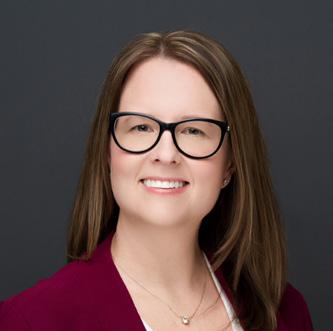
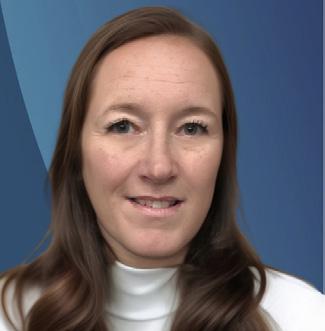


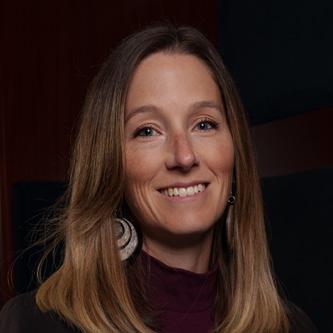



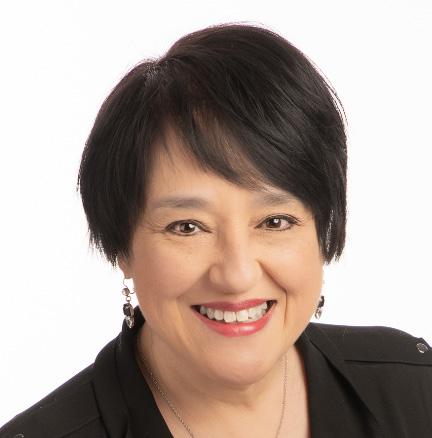

Detailed Program
DAY 1 – TUESDAY, OCTOBER 21ST, 2025
TIME: 7:00 AM–8:50 AM
REGISTRATION / BREAKFAST / EXHIBITION
TIME: 8:30 AM–9:00 AM
OPENING REMARKS
Jennifer Bertrand, CNAR Executive Director
TIME: 9:00 AM–10:00 AM
KEYNOTE: Mark Tewksbury
Note: All times are in Mountain Time.
Mark Tewksbury C.C, M.S.M, OLY first came to prominence as the star athlete who burst out of the water at the Barcelona Olympics to win Gold!
An Olympic Champion with Gold, Silver and Bronze medals, 7 World Records, and a cover appearance on TIME magazine, Mark is one of the first athletes who publicly came out in 1998, making him one of the first openly gay Olympic champions in the world. He has been a leader in the LGBTQ2S+ movement ever since.
Mark is the former Vice President of the Canadian Olympic Committee, and co-founder of Great Traits, a training company that helps Leaders. Throughout his life, Mark has played a strong role to shift and shape Canadian society through his story, work and legacy. As an advocate, consultant, speaker and hero, Mark has spent his career impacting change in individuals and organizations.
Mark has received 5 honorary degrees, the Queens’s Jubilee Silver Medal, the Meritorious Service Medal and a Muhammad Ali Humanitarian Award for Gender Equality. Most recently, Mark was appointed Companion of the Order of Canada, the nation’s highest civilian honor. At any given time, there is a limit of 165 Canadians that carry this distinction and honour.
Drawing on his vast leadership experience as well as data from his leadership teaching, Mark’s authentic, thoughtful and inspired approach is guaranteed to spark new ways of thinking and leave a lasting impression for years to come.
TIME: 10:00 AM – 10:30 AM ENERGY
TIME: 10:30 AM–11:30 AM
SESSION 1
From Bottleneck to Breakthrough: Tackling Investigation Backlogs
• Gillian Slaughter, College of Occupational Therapists of Ontario, Registrar & CEO
• Laura Halbert, College of Immigration and Citizenship Consultants, Director
• Michael Rusek, Professional Engineers Ontario, Director
Many regulators face the critical challenge of managing complaint investigation backlogs, which can strain resources, delay justice and erode public trust. This session, led by a panel of diverse regulators, will offer strategic insights into tackling these backlogs by focusing on maximizing operational efficiencies, analyzing throughput and integrating alternative dispute resolution (ADR). Attendees will gain
actionable tips and tricks to streamline their processes, alongside valuable lessons drawn from both success and failures in the field.
MAXIMIZING EFFICIENCIES
The presentation will highlight practical strategies to optimize workflows. This includes streamlining internal processes, leveraging technology and ensuring that resources are being allocated effectively. We’ll share real-world examples of how identifying bottlenecks in case management helped regulators to streamline operations.
ANALYZING THROUGHPUT AND RISK BASED PRIORITIZATION
By analyzing data on complaint volumes, investigation timelines and outcomes, regulators can better understand throughput and identify areas for improvement. Developing frameworks to categorize complaints based on risk, severity and complexity ensures that urgent cases receive prompt attention. We will discuss how tracking performance metrics can lead to smarter decisions on resources, case prioritization and procedural adjustments. Attendees will learn from case studies that demonstrate the impact of data-driven decision-making.
ALTERNATIVE DISPUTE RESOLUTION (ADR)
Integrating ADR methods like early resolution and mediation can help resolve complaints faster and reduce backlogs. We’ll share examples of both successful and unsuccessful ADR implementation, detailing the challenges faced and the strategies that worked to foster faster resolutions, and maintain fairness.
This session will provide practical solutions, tips and insights from several regulators about managing and overcoming investigation backlogs, fostering efficiency and maintaining public trust.
SESSION 2
Guiding Artificial Intelligence Integration in Professional Practice: The Regulator’s Role
• Amy Fehr, Engineers and Geoscientists BC, Manager, Professional Practice Advice Program
• Nadia Rowe, Law Society of BC, Practice Advisor
• Sue Botelho, Ontario College of Social Workers and Social Service Workers, Professional Practice Associate
Artificial Intelligence (AI) is rapidly reshaping the landscape of many regulated professions. This ever-evolving technology holds significant potential, but it can also present challenges for those who may not fully grasp its complexities. As regulators, it’s essential that we embrace this challenge directly by leveraging our capacity to offer proactive guidance and setting the stage for responsible, ethical AI integration.
In this presentation, we will explore the pivotal role regulators play in shaping the ethical and professional standards for AI use across various fields. We will explain how proactive regulation can promote quality practice and mitigate risks before they occur. Our goal is to demonstrate that by offering clear, actionable guidance on practice expectations, your registrants can confidently and responsibly integrate AI into their practices, no matter their area of expertise.
Though we may not be AI experts, regulators are well-versed in ethical and professional practice. By applying our regulatory framework, we can effectively guide our registrants in navigating the complexities of AI adoption. It is safe to assume that AI will become an integral part of registrant’s work, and it is our responsibility to help them do so with integrity and foresight.
AI is here to stay, and it is fundamentally transforming the way we work. Join us as we share our collective experiences in developing and publishing guidance on AI use within professional practice. From conceptualization to publication and implementation, we aim to inspire you to take an active role in shaping the regulatory landscape for AI while fulfilling our mandate to protect the public and ensure ethical practice.
SESSION 3
Relational Governance – What is it and why it works
• Louise Aerts, BC College of Nurses and Midwives, Acting CEO
• Rhianna Millman, BC College of Nurses and Midwives, Indigenous Cultural Safety and Humility Consultant
• Janene Erickson, BC Centre for Disease Control (BCCDC), Executive Director, Indigenous Health
GLEN 203 & 204
Are you working in a compliance framework whereby rules (like Robert’s Rules) rule the day? Do you wish you could spend more time on strategic discussions than managing a speakers’ list? Relational governance is an approach based on managing relationships through informal mechanisms of trust and mutual understanding, building for consensus decision making, and ensuring safety
all while getting the work done and smart decisions made. This governance process creates a culture of trust and respect where generative discussion and good decisions flourish in a space that includes questions, humility and learning while moving away from formality and rigid structures. It is also in line with Indigenous ways of knowing and being and shares Indigenous governance practices such as relations, circle, and other protocols. The BC College of Nurses and Midwives (BCCNM) has been using this approach and would like to share our learnings with regards to the impact with the board and the organization.
The presentation will outline relational governance, what this looks like in a board setting, why it is impactful, and also share the tools and resources we have developed. These resources include meeting guidelines; a new code of conduct which addresses conflict of interest, procedural fairness, and competing fiduciary duties; Indigenous protocols; and training for a chair to be a facilitator rather than a rule follower. Relational governance is collaborative, creates an environment for adaptability and flexibility, and opens communication channels. It also requires a focus on relationships and addressing power dynamics. SESSION 4
Public & Patient Voice in Regulation: Turning Insights into Action
• Dr. Kim Bugera, Alberta College of Optometrists, Registrar & CEO
• Melanie Sicotte, Alberta College of Speech-Language Pathologists and Audiologists, Registrar and CEO
• Jessica DeVries, Pivotal Research, Director of Program Development
• Nadja Gale, College of Midwives of Ontario, Director of Governance and Strategy
Profession regulators are increasingly looking beyond professional perspectives to incorporate public and patient experience data into their oversight strategies. By analyzing comparative insights on access to care, perceptions of quality, discrimination in healthcare, and trust in regulation, profession regulators are identifying ways to strengthen accountability, transparency, and engagement.
This session brings together regulatory leaders from Ontario and Alberta overseeing midwifery, optometry, speech-language pathology, and audiology to discuss how they are leveraging Voice of the Patient (VoP) and public insights to refine standards, policies, and regulatory practices. Panelists will explore how this data informs decision-making, risk-based approaches, and public trust strategies, offering practical examples of how regulators can turn insights into action.
Join us for a comparative discussion on how regulators are using public and patient experience data to shape oversight and improve regulatory effectiveness.
SESSION 5
AI in Action: Transforming How Exams and Practice Tests Are Developed
• Francine Mitrakos, PSI, Test Development Manager
• Caroline Nguyen, National Dental Examining Board, Director of Examinations
• Marie Dagenais, National Dental Examining Board, Executive Director and Registrar
As credentialing organizations and examination boards evolve, the integration of AI-driven innovations in test development is transforming how programs manage their content and what they can offer to their candidates to support their preparation. There are a number of considerations in evaluating options, opportunities, and navigate challenges, as AI is reshaping programs and driving innovation across the entire assessment lifecycle. This session explores how AI is transforming test development, enhancing security, and improving support for test takers. We will discuss how AI can lead to efficient content creation and the opportunities related to test preparation, making it more adaptive, personalized, and competency-based. We will review and discuss considerations related to item types, the changing role of subject-matter experts, and the opportunities for real-time feedback for practice tests. Presenters will outline key issues that organizations need to consider as they evaluate opportunities in leveraging AI while protecting the integrity of their program. In sum, attendees will gain valuable insights into how AI is driving innovation in test development, practice tests development and delivery, and how organizations can harness these tools to enhance the candidate experience. TIME: 11:30 AM–1:00 PM
Building Trust and Reducing Barriers: A 360 Degree View of the Complainant’s Experience
• Greg Hutchinson, Barker Hutchinson & Associates, Co-CEO
• Pamela Greenberg, College of Physicians and Surgeons of Ontario, Witness Support/ Investigations and Resolutions
• Svetlana Goltsman, College of Nurses of Ontario, Manager, Investigations
Complainants who bring concerns to regulators can encounter barriers throughout the complaint process. From initial intake to investigation and a potential discipline hearing, they can experience confusion, frustration, inadequate support, and even retraumatization – despite regulators efforts to create fair and inclusive processes. These challenges, if left unaddressed, can erode public trust, harm vulnerable individuals seeking accountability, and generate negative publicity.
This session offers a 360-degree review of the complainant’s experience and explores practical ways to improve process from three key perspectives:
• A Witness Support/Intake Coordinator who directly engages with complainants and recognizes their needs and vulnerabilities.
• An Investigator with lived experience as a complainant following traumatic circumstances, offering firsthand insight into the impact of effective and inadequate processes.
• A Manager of Investigations responsible for shaping policies and procedures that balance fairness, transparency, and sensitivity to complainants’ experiences.
Through real-world examples and practical ideas, attendees will receive actionable takeaways, such as identifying and mitigating barriers in the complaint process, implementing strategies to reduce re-traumatization, strengthening communication and transparency to build trust, and enhancing procedures to support fairness and accountability.
Regulating Health Professions in the Context of For-Profit Ownership
• Andréa Foti, Royal College of Dental Surgeons of Ontario, Deputy Registrar and Privacy Officer
• Daniel Faulkner, Royal College of Dental Surgeons of Ontario, Registrar & CEO
• Eric Coates, Nova Scotia College of Pharmacists, Director of Professional Services
• Shilo Tooze, College of Veterinarians of Ontario, Deputy Registrar
Some professions are seeing a shift in the ownership structures in which registrants practice. This session will explore one model: private or corporate ownership. Regulators in dentistry, pharmacy and veterinary medicine will describe the private or corporate ownership models that exist in the professions they regulate, the impacts (positive and negative) of this model on both the provision of care and the work of the regulator, and the concrete steps each regulator is taking in response.
SESSION DESCRIPTION
The increasing shift towards private or corporate ownership of dental practices and veterinarian medicine practices has raised questions about how business objectives of non-registrants intersect with the regulatory expectations of registrants, and the core objectives of regulators to protect the public interest and ensure the provision of quality of care. On the other hand, private or corporate ownership has been a longstanding model within pharmacy where lessons can be learned.
This multi-profession panel, with regulators from both Ontario and Nova Scotia will engage in a facilitated discussion with attendees about their experiences to date in navigating corporate ownership models in their respective professions. The focus will be on context setting, knowledge building, and information sharing, particularly lessons learned in the work that each regulator has done to date. The panel will touch on what corporate ownership structures exist in each profession, the impacts (both positive and negative) of these models on the provision of care and on regulatory oversight, and the specific actions that each regulator has taken to date to ensure ongoing effective regulation in the public interest. Highlights of each regulator’s work in this space are set out below and will be incorporated into the panel discussion.
• The Royal College of Dental Surgeons of Ontario (RCDSO) made practice ownership structure, including corporate dentistry, a strategic priority in its 2023-2025 Strategic Plan. More specifically, the RCDSO has focused on better understanding dental practice ownership structures operating in Ontario, identifying issues and opportunities related to these structures, and exploring options to promote and assure quality of care and ensure effective regulation of dentists regardless of ownership structure.
• The College of Veterinarians of Ontario has seen a slow and gradual rise of the corporate ownership of veterinary facilities over the last decade. The receptivity to this shift is varied amongst the veterinary community and the public and has affected our approach to considering real and perceived risks to this new model and what, if any, safeguards need to be considered. The challenges of managing what deservedly stays in the marketplace and what actually requires a regulatory approach have been central to driving our response.
• The Nova Scotia College of Pharmacists has been using the tools its afforded within its legislative framework to effectively regulate across independently, privately, and corporately owned practice environments for many years. Creativity in using these tools has proven effective, including the recent launch of its Staffing and Workload Initiative for Safety and Effectiveness (StaffWISE) that ensures that community pharmacies have the staffing they need for safe and effective patient care.
TIME: 11:55 AM–12:55 PM
Breaking Down Barriers: Using Regulation to Remove Interprovincial Trade Barriers
• BDO
Connect directly with BDO in this special CONNECT Session. Canada’s internal trade barriers remain one of the most significant challenges to economic growth and regulatory consistency. While tariffs often capture headlines, the more persistent obstacles are interprovincial barriers that limit collaboration, drive up costs, and create complexity for businesses and regulators alike. This session will explore how regulators can play a proactive role in dismantling these barriers by harmonizing policies, modernizing frameworks, and leveraging regulation as a tool to enable freer trade across provinces. Drawing on BDO’s work with regulators nationwide, we will discuss strategies to streamline compliance, reduce duplication, and foster cross-jurisdictional collaboration. Attendees will walk away with practical insights into how regulatory innovation can support economic growth, enhance competitiveness, and build a stronger, more unified Canadian marketplace. TIME: 11:55
Chill Out With a Meazured Break
• Meazure Learning
Need a break from a morning of back-to-back sessions? Meazure Learning is bringing you a refreshing Chill Zone—a mid-day retreat with free ice cream, space to relax, and interactive table games specially designed for regulators and assessment professionals to spark connection, creativity, and conversation. Whether you want to unwind with a bit of fun, network in a more casual setting, or simply enjoy a sweet treat, this is THE spot to reset before diving back into the conference agenda.
Right Touch Regulation 2025
• Alan Clamp, Professional Standards Authority, Chief Executive
The Professional Standards Authority in the UK will produce a new version of Right-Touch Regulation (RTR) in October 2025. The last version of RTR was published in 2015 and we recognise that changes in the operating contexts of all regulators around the world, together with external challenges on the burdens and benefits of regulation, require us all to adapt our approaches to ensure they remain effective.
RTR is a principles-based, pragmatic and flexible approach that supports good regulation, regardless of the sector or jurisdiction. It asks fundamental questions about the need for regulation as a solution to problems, the proportionality of different regulatory approaches and the accountability of regulators.
The new version of RTR will retain the core principles of good regulation, but it will also emphasise the need for even greater agility, enhanced stakeholder engagement and a stronger focus on regulatory impact. It will also take account of the recently developed Smarter Regulation Principles in the UK (which focus on the impact of regulation on business and the economy), as well as insights from the PSA work on refocusing regulation. The revised version of RTR will make the case for a greater emphasis on prevention of harm and will highlight opportunities for regulation to make more of a contribution to societal problems, including those associated with inequity and discrimination.
TIME: 2:30 PM–3:30 PM
SESSION 6
A College’s Journey to Change Culture and
Adopt a Regulatory Philosophy to Better Serve the Publics’ Interests
• Andrew Douglas, College of Registered Nurses of Alberta (CRNA), Executive Director – Governance, Regulation and Standards
• Joy Peacock, College of Registered Nurses of Alberta (CRNA), CEO & Registrar
• Greg Loveday, College of Registered Nurses of Alberta (CRNA), Executive Director Strategy and Operations
• Todd Schnirer, College of Registered Nurses of Alberta (CRNA), Senior Financial Officer and Executive Director
Over the past several years the College of Registered Nurses of Alberta (CRNA) has prioritized cultural transformation (an organization’s culture drives everything and everyone). This focus on culture has contributed to a positive work environment that facilitates an environment that lives and breaths regulatory innovation and excellence.
The focus on culture change has paved the way for the CRNA to be able to fully commit to a regulatory philosophy (called the “Regulatory Spectrum”). This philosophy is foundational to how the CRNA regulates and makes governance and operational decisions. The philosophy strikes a balance between our legislated regulatory mandate with compassion and proportionality. Adopting this approach increases the focus on contributing factors and situational context, resulting in increased decision discretion without an over emphasis on rules and punitive responses.
Adopting our regulatory philosophy has strengthened the CRNA’s culture and contributed to forming stronger relationships with our health system partners. The philosophy has enabled the CRNA to respond more quickly, confidently and effectively to health system challenges in a collaborative and relational manner. Adopting our regulatory philosophy has promoted innovation and is a primary reason why the CRNA continues to be a pioneer within the international, national and provincial regulatory community.
This session will be a panel discussion with the CRNA’s Senior Leadership Team (the CEO and Executive Directors).
The session will focus on:
1. The preliminary work the CRNA prioritized and executed to arrive at a place where we could discuss and adopt a regulatory philosophy (e.g., focus on culture change initiatives, etc.).
2. A walkthrough of our regulatory philosophy – what it means.
3. How adopting a regulatory philosophy has contributed to cultural and organizational transformation.
4. A discussion of new innovative initiatives at the CRNA, and how our regulatory philosophy has influenced and enabled their development and success (e.g., modernization of our standards of practice, increasing our risk tolerance/appetite, and transforming our complaints and discipline processes).
Each member of the Senior Leadership Team will share their own contributions and experiences with the CRNA’s regulatory philosophy. The session will be delivered in a manner that will allow other regulator’s to learn, ask questions and potentially replicate the CRNA’s approach.
SESSION 7 GLEN 206
Vehicle Export Investigation
• Kirk Huxley, Insurance Council of British Columbia, Manager Investigations
• Marko Goluza, Insurance Council of British Columbia, Director, Professional Conduct
• Shahhin Asiaee, Insurance Council of British Columbia, In-house counsel
• Lukhbir (Lucky) Budial, Insurance Council of British Columbia, Investigator
The Insurance Council of British Columbia recently completed a multi-year initiative addressing misconduct in the insurance sector related to the export of luxury vehicles in the grey market. This initiative was partly prompted by a report on money laundering commissioned by the provincial government of British Columbia. The report revealed how the sale of these luxury vehicles took advantage of British Columbia’s geographic proximity to Asian markets and the retail pricing of these vehicle commodities, thereby facilitating trade-based money laundering.
By 2018, regulators and industry observed that some automobile dealerships were selling multiple newer, high-end luxury vehicles to single entities, who quickly exported the vehicles and claimed refunds for provincial sales tax. When dealerships acted and stopped selling to known entities, a new class of clients known as “straw buyers” emerged. After the initial purchase, the “straw buyer” would quickly transfer the ownership to the exporter, cancel any related insurance and again claim a tax refund. The insurance agents facilitated the purchase of the vehicles by issuing one-year insurance policies and would keep the associated commissions, despite the cancellation of the insurance policy shortly thereafter.
To address this issue, the provincial auto insurer (ICBC) instructed insurance agents to issue only temporary permits when they knew or suspected that a vehicle would not need a one-year policy. Additionally, some dealerships required clients to provide a declaration explaining the intended use of their luxury vehicles. Despite these initial efforts, the scheme continued, and estimates indicated that over 3,000 vehicles were exported in 2018.
THE INSURANCE COUNCIL’S ACTION
The Insurance Council completed its first two investigations into this matter in 2020 following industry complaints. The findings from these investigations revealed potential misconduct by insurance professionals. Building on these insights, the Insurance Council initiated a proactive review through collaboration with the provincial auto insurer. This review examined insurance transactions over the previous three years within various agencies, where patterns emerged of policies on newer vehicles being cancelled and transferred within 30 days. This analysis involved over 900 insurance agencies across British Columbia.
The proposed presentation will guide the audience through insights and learnings from the twenty-one investigations resulting from the data review, including;
• The discipline licensees received, including fines, education, conditions, and suspensions.
• Identifying indicators of trade-based money laundering.
• Fraud, including elements of identity and auto theft.
• Manipulations of insurance premiums and the impact on the insurer and credit card companies.
• The use of forensic accountants to support impact statements.
• How good faith is essential in the business of insurance.
The presentation will highlight collaboration among various agencies. Police, vehicle sales, and tax authorities are working together to address issues, while the Provincial Ministry of Taxation is actively combating fraudulent refunds. Also, the provincial insurer is providing valuable education and audits, ensuring transparent communication all around. It’s a positive step forward!
When a Regulator Gets Left Behind: The Problem with Decentralized Provincial Oversight of Professional Regulation
• Dr. Stacey Thomas, College of Veterinarians of British Columbia, Deputy Registrar
• Christine Arnold, College of Veterinarians of British Columbia, Chief Executive Officer and Registrar
• Greg Cavouras, Sugden, McFee & Roos LLP, Certified In-House Counsel
The College of Veterinarians of British Columbia’s budget in the last fiscal year projected a $1.3M deficit. Over the two years prior to that the College sustained a cumulative loss of $1.2M. Why? Because registrant fees have not increased since 2011, a period in which inflation alone accounted for a greater than 34% increase in costs. And why have fees remained frozen? Because the College is governed by legislation that gives effect to an antiquated approach to professional regulation, one in which registrants largely control the operations of the College and which has allowed registrants to decline to increase fees for over 14 years. As a result, the College is facing insolvency within the next year.
The B.C. Ministry of Agriculture and Food has oversight of the College. Unlike many of the other provincial ministries that also have oversight of professional regulators, the College is the only professional regulator in the Ministry’s portfolio. Professional regulation and its complex historical, social, and legal development and modern framework are outside of the Ministry’s core competencies centered around agriculture, farming, and food production. While many other professional regulators in B.C. have been modernized to give effect to a robust and enforceable commitment to protecting the public interest, the College has been left behind.
The experience of the College of Veterinarians showcases how decentralized oversight by government of professional regulators gives rise to opportunities for significant inconsistencies between the governance structures of different professional regulators, inconsistencies that are contrary to the public interest. The session will make the case for centralizing professional regulation within government to leverage a concentration of knowledge and experience, while minimizing conflicts of interest between the overseeing ministry and regulated professions.
SESSION
The session will feature speakers from several facets of professional regulation – the regulator, the regulated, and the public – and across several professions. While the session will centre on the experience of the College of Veterinarians, we propose that the challenges, concepts, and approaches that will be discussed are applicable to regulators across all professions and Canadian jurisdictions.
SESSION 9
EXHIBITION HALL
Risk-Based Regulation in the Modern World: Using Data, Innovation, and Collaboration to Put Risk at the Centre of Our Work
• Jay O’Neill, Retirement Homes Regulatory Authority, CEO and Registrar
• Bonnie Rose, Technical Standards and Safety Authority, President and CEO
THE CHALLENGE FACED
In today’s climate of increasing risk, regulators are tasked with managing their risk tolerance while being pressed upon to increase operational effectiveness and efficiency. At times, this seems like an impossible task, but there are examples of where focused effort on risk and outcomes can lead to innovative solutions. What if all regulators could use a collaborative framework with industry data, or build an outcome-based model, or chart a journey to tailor their regulatory model to achieve their mandate?
HOW
CAN IT BE SOLVED?
In this session you will hear about how 2 regulators from different sectors are shaping the future of risk-based regulation:
HOW TO INNOVATE
Speaker: Jay O’Neill, CEO and Registrar, Retirement Homes Regulatory Authority
• Retirement Homes Regulatory Authority (RHRA): What do you do when you’re the first dedicated regulator of retirement homes in Canada, and want to adopt a risk-based approach? For the Retirement Homes Regulatory Authority based in Ontario, it meant creating a data and risk model that met the needs of a diverse sector. Hear about their approach, lessons learned and work with their registrants on change management.
HOW TO CREATE A DATA-DRIVEN MODEL
Speaker: Bonnie Rose, President and CEO, Technical Standards and Safety Authority
• Technical Standards and Safety Authority (TSSA): Shifting away from traditional compliance-based practices to a more collaborative, data-driven regulatory model. Participants will learn about the keys to TSSA’s success, including the importance of fostering a culture of accountability, empowering staff, and embracing data as a decision-making tool. This session will provide actionable insights into how other regulatory bodies and organizations can build agility, embrace change, and use data to enhance safety outcomes.
SESSION 10
Hiring into an Indigenous-Specific Role: Striving for Culturally Safe Recruitment
• Kathy Davidson, College of Health and Care Professionals of BC, Executive Director, Strategy Governance and Social Accountability
• Heather Biggar, College of Pharmacists of British Columbia, Deputy Registrar
• MaryAnn Enevoldsen , College of Pharmacists of British Columbia, Director of Indigenous Pathways
As regulators working to uphold the principles of UNDRIP we are collectively seeking to attract Indigenous people to join our organizations to centre their voices and to ensure their perspectives inform regulatory processes and decision making. However, as we create Indigenous-specific roles and launch enthusiastically into recruitment we may not always pause to realize that we could cause harm even during the recruitment process itself.
Prior to recruiting Indigenous-specific leadership roles at the College of Pharmacists of BC and the newly amalgamated College of Health and Care Professionals of BC (CHCPBC), we realized that we were unprepared to conduct a culturally safe recruitment and interview process. Each of us took the time to reflect on what may be culturally unsafe, who we needed to reach out to for support, how we could decolonize existing processes, how best to reach out to Indigenous candidates to share the opportunity, and how to verify Indigeneity in a culturally appropriate way.
We will share our insights and lessons learned and we will invite one of the successful candidates, now the Director of Indigenous Pathways at CPBC to describe their experience as an applicant. We believe we have earnestly begun to decolonize the hiring process and have taken steps to support Indigenous staff once hired. Our intention is to encourage other regulators to also reflect upon where harms may be caused during the recruitment process and within staff teams, and what changes could be made before conducting recruitment into an Indigenous-specific leadership role.
Navigating Labour Mobility in a ‘Trumped’ Up Trade War: Old Topic, New Pressures
• Kelsey Ivory, WeirFoulds, Partner
• Amy Block, WeirFoulds, Partner
• Jessica Harper, Registered Insurance Brokers of Ontario, Director of Policy, Licensing, and Standards
• Douglas A. (Gus) Grant, College of Physicians and Surgeons of Nova Scotia, Registrar and CEO
• Nicole Zwiers, College of Chiropodists of Ontario, Registrar and CEO
• Brittany Tartaglia, Ontario Professional Foresters Association, Assistant Registration Manager
As provinces across Canada continue to work toward removing barriers to inter-provincial trade and mobility, regulated professionals are increasingly impacted by these changes. The current “trade war” climate, combined with the complexities of provincial regulatory frameworks, raises unique challenges for ensuring mobility of regulated professionals across provincial lines and has infused this complex arena with new energy . This panel will bring together a diverse group of lawyers, regulatory experts, and registrars from various regulatory colleges across different provinces to explore the legal and regulatory hurdles that impede labour mobility and discuss strategies to navigate these challenges. Key topics will include the evolving landscape of inter-provincial mobility, the impact of different provincial standards on professionals’ practice, and strategies for harmonizing regulatory approaches to facilitate labour mobility while maintaining high standards of public safety and professional accountability.
DAY 2 – WEDNESDAY, OCTOBER 22ND, 2025
TIME: 7:30 AM–8:20 AM
REGISTRATION / BREAKFAST / EXHIBITION
TIME: 8:20 AM–8:30 AM
OPENING REMARKS
Alice Kennedy, CNAR Board Chair
TIME: 8:30 AM–9:30 AM
KEYNOTE SPEAKER: DR. CHIKA STACY ORIUWA
Physician, Expert in Human Connection, Authentic Leadership, and Organizational Wellness
Note: All times are in Mountain Time.
An accomplished physician, nationally ranked spoken word poet, and thought leader, Dr. Chika Stacy Oriuwa is a multi-faceted powerhouse whose journey exemplifies authentic leadership in every aspect. Through powerful storytelling and compelling narrative, she draws from her diverse experiences — across sectors, stages, and disciplines — to share meaningful and actionable insights on leadership, connection, and wellness, and how to unlock our true potential for transformative results in our organizations, communities, and lives.
Oriuwa’s career is a testament to her insatiable curiosity about the human experience and the profound connections that define it. She is currently a resident doctor in psychiatry at the University of Toronto where she earned her medical degree and became the first Black woman named sole valedictorian of the department. Oriuwa has since become a vocal advocate for improving disparities in Black health and confronting institutional discrimination, spearheading change initiatives in healthcare and beyond.
In addition to her medical degree, Oriuwa has a master’s degree in Health Systems Leadership and Innovation from the University of Toronto. She’s also served on multiple boards informing their efforts in advancing equity, leading authentically, and prioritizing workplace wellness, and is the author of Unlike the Rest, her memoir of becoming, belonging, and being seen on her journey as a medical trailblazer and leader.
Oriuwa has been named one of TIME magazine’s “2021 Next Generational Leaders” and one of Maclean’s Power 50. She has also been named one of Best Health Magazine’s “Women of the Year” and been featured in several major media outlets, including CBC’s The National, CTV News, CP24, Toronto Star, and TODAY, amongst others. In 2021, Oriuwa was honoured in Mattel’s #ThankYouHeroes campaign with a one-of-a-kind Barbie doll made in her image to commemorate her contributions as a frontline healthcare worker.
Enhancing Board/Council Member Competencies: An Integrated Approach to Effective Knowledge Transfer
• Deborah Adams, College of Registered Psychotherapists of Ontario, Registrar/CEO
• Christy Pettit, Pollinate Networks Inc., CEO and co-founder
• Amy Fournier, College of Registered Psychotherapists of Ontario, Manager, Governance
Regulatory organizations ask a lot of their Board/Council members, who are expected to be ready to make good decisions in the public interest as soon as they are appointed or elected. How can colleges ensure they have knowledgeable members when working with the constraints of terms and elections for Board/Council members that can make competence development and succession planning difficult?
This interactive session will explore how the College of Registered Psychotherapists of Ontario (CRPO) addressed this issue by implementing a comprehensive competency development program over 3 years. Using a Competency Profile for Regulatory Leaders
as a foundation, CRPO integrated individual assessments, targeted mentoring, education, and organizational evaluation to enhance leadership capacity. Panelists—a professional member of Council, the Registrar and an consultant with expertise in knowledge transfer—will share insights on fostering regulatory excellence, increasing accountability, and building leadership capacity. Attendees will gain actionable strategies adaptable to their organizations.
SESSION 12
Is Professional Regulation a Racket?
• Professor Rebecca Haw Allensworth, Vanderbilt University Law School, Associate Dean for Research and David Daniels Allen Distinguished Chair of Law
• Erica Richler, Steinecke Maciura LeBlanc, Co-Managing Partner
Join us in conversation with Professor Allensworth to discuss her recent book, The Licensing Racket: How We Decide Who Is Allowed to Work and Why It Goes Wrong? After taking a deep dive into the regulatory system in the U.S. – conducting a systematic review of licensing bodies, interviewing over 180 people, and spending years attending Board meetings – Professor Allensworth concluded that the professional licensing system in the U.S. is broken and needs fixing. The system is too restrictive when it comes to who can be admitted to a profession, and too lenient when it comes to who should be removed. As Professor Allensworth writes, “It may be hard to get into the club of the professionally licensed, but once you’re in, you’re in.” Professor Allensworth argues that the bargain of professional regulation – that professions regulate with autonomy in exchange for protecting the public interest – has failed. She proposes reforms to abolish licensing requirements for some professions and to achieve more effective administration for others. Erica Richler will facilitate a conversation with Professor Allensworth to discuss her research, conclusions, and recommendations. While there are no doubt differences between the U.S. and Canadian systems of regulation, and many Canadian professions have undergone significant reforms in recent years, Professor Allensworth’s work provides much food for thought, and potential areas of further study and debate in Canada.
SESSION 13 GLEN 203 & 204
Measuring What Matters: Building Effective Regulatory Performance Frameworks
• Thomas Custers, Ontario College of Pharmacists, Director of Corporate Services
• Daniel Faulkner, Royal College of Dental Surgeons of Ontario, Registrar & CEO
• Lynsay Kurjata, College of Licensed Practical Nurses of Saskatchewan, Executive Director
• Chris Hacker, British Columbia College of Oral Health Professionals, Registrar and CEO
In an era of increasing accountability and focus on regulatory excellence, new legislative reforms and innovative governance approaches are emerging. Performance measurement frameworks are critical in this context, enabling regulators and governments to demonstrate public protection outcomes and drive continuous improvement. Despite numerous efforts in Canada and globally, a robust and consistent approach to regulatory performance reviews has yet to emerge. This session aims to bring regulatory boards, staff, and governments a step closer to developing a robust and adaptable performance framework. Drawing from implementations in Ontario, Saskatchewan, and lessons learned from the British Columbia College of Oral Health Professionals and other jurisdictions, this session will explore the impact of performance measurement on enhancing transparency, driving continuous improvement, and strengthening public confidence in professional regulation.
DEVELOPING AND IMPLEMENTING A MEASUREMENT FRAMEWORK: LESSONS LEARNED
Attendees will learn from experiences and concrete examples from Ontario’s health regulators, the College of Licensed Practical Nurses of Saskatchewan, and the British Columbia College of Oral Health Professionals:
• A collaborative methodology that creates a practical, widely applicable, and accepted framework adaptable to different regulatory contexts, purposes, and audiences.
• Standards and measures that have been most meaningful in improving regulatory effectiveness and strengthening public trust.
• Opportunities for improving measurement of outcomes achieved and improving reporting.
IMPACT AND BENEFITS
Using a framework implemented in Ontario and Saskatchewan as case studies and incorporating lessons learned from British Columbia and other jurisdictions, participants will gain actionable insights for developing meaningful performance standards and
metrics that strengthen:
• Government oversight of professional regulators.
• Internal change management and performance improvement.
• Enhanced board governance and oversight.
• Public accountability.
• Cross-regulator benchmarking opportunities.
CONCLUSION
This session emphasizes practical applications rather than theoretical concepts, focusing on how performance measurement frameworks enhance government oversight, board effectiveness, and continuous improvement in demonstrating the societal value of regulators and promoting regulatory excellence. The approaches discussed are adaptable to different regulatory structures and objectives across Canada and along with a critical reflection on how to move forward with measuring and reporting the performance of regulators, will be of interest to those seeking to better understand the performance of their regulators and enable continuous improvement.
SESSION 14
Frequent Flyers, Bad Seeds, and Irredeemables: What Can Regulators Do About Bad Judgment?
• Zimra Yetnikoff, College of Psychologists and Behaviour Analysts of Ontario, Deputy Registrar/Director, Investigations & Hearings
• Rebecca Durcan, Steinecke Maciura LeBlanc, Co-Managing Partner
• Alison Bird, Nova Scotia College of Nurses, Deputy General Counsel
We’ve all seen them. The registrants who come before complaints and discipline committees again and again and again. Is it lack of skill or competence? Sometimes. But often, it is something more amorphous than that: lack of good judgement. Regulators have various ways of assessing knowledge and competence, including educational degrees, exams results, and quality assurance programs. What regulators might not be as equipped to assess are character and good judgement. In this session we will explore ground level research on the predictors of bad judgement, the various ways that regulators have attempted to assess judgement in advance, and how regulators have attempted to remediate bad judgment when it arises. We will also learn the audience’s views on good and bad judgement through interactive case studies throughout the session.
SESSION 15
Working Towards Bridging Reconciliation & Regulation to Support Advancing Indigenous Professionals
• Nancy Tran, College of Midwives of Ontario, Director of Registration
• Sarah Choudhury, Ontario College of Social Workers and Social Service Workers, Director, Strategic Communications and Government Affairs
• Sue Eckenswiller, Indigenous Advanced Education and Skills Council, Director Regulatory and Strategic Partnerships
GLEN 206
The presentation and panel discussion will explore cases where two regulatory bodies collaborated with the Indigenous Advanced Education Skills Council to develop and recognize a pathway to the profession for graduates of an Indigenous Institute. IAESC will discuss its role in implementing the Indigenous Institutes Act 2017 and establishing an Indigenous quality assurance framework for the nine Indigenous institutes of Higher Education in Ontario. This Indigenous quality assurance framework is the basis to approve independent higher education and professional education programs and credentials by Indigenous Institutes in Ontario. From a regulatory standpoint, representatives from the Ontario College of Social Workers and Social Service Workers and the College of Midwives of Ontario will each share their unique experiences streamlining their approval process for recognizing Indigenous programs and support Indigenous applicants in gaining access to the profession, all within their respective regulatory framework.
The panel discussion will include the experiences of Truth and Reconciliation work in professional regulation and the resultant impacts of working together to a pathway to registration, while recognizing the autonomy of Indigenous Institutes in their own programming and training. The presentation will also highlight IAESC’s use of a consultative process through dialogues to develop approval pathways that reflects Indigenous knowledge and languages, worldviews, and Indigenous ways of knowing and living.
Regulating with Respect: A Regulator’s Response to Transgender Inclusion
•John McIntyre, McIntyre Szabo, Lawyer and Co-founder
•Carolyn Silver, College of Physicians and Surgeons of Ontario, Chief Legal Officer
•Tessa Ringer, Myrna Daniels Seniors Emergency Medicine Centre, Medical Director
There is a positive shift in regulation towards diversity and inclusion, with many regulators examining how their policies and procedures affect transgender registrants. This encompasses using inclusive language, breaking down barriers for transgender professionals and ensuring policies are inclusive of transgender registrants.
In this panel, we will examine regulators’ responses to evolving issues facing transgender professionals, through the lens of a recent example at the College of Physicians and Surgeons of Ontario (the “CPSO”). In 2024, Dr. Tessa Ringer, a transgender physician in Ontario, requested the removal of her dead name on the public Register. We will discuss how our two speakers worked together to modernize the CPSO’s handling of requests to remove registrants’ dead names from the public Register.
Using this case study as a starting point, we’ll explore the barriers that transgender professionals face in regulation and how other regulators can navigate similar situations in an inclusive and equitable manner, while being cognizant of potential risks to the regulator and its public mandate objective. We will unpack practical steps regulators can take to create more inclusive processes, build trust with transgender registrants and ensure that regulatory frameworks don’t unintentionally reinforce discrimination.
Shifting the Paradigm: Equity-informed Approaches to Modernizing Entry to Practice for Internationally Trained Applicants
• Stephanie Price, Federation of Medical Regulatory Authorities of Canada (FMRAC), Executive Director
• Caroline Ewen, World Education Services (WES), Manager, Policy & Advocacy
This session will explore emerging equity informed approaches, frameworks, and best practices to address the the challenges facing regulators looking to modernize their approach to registration for internationally trained applicants. Canada’s entry to practice requirements and processes are primarily built for a population of applicants trained in Canada, or in countries with very similar training regimes. Yet almost one quarter of the country’s population and just over one quarter of our workforce, are immigrants. Many regulators are working to modernize their entry to practice requirements and processes to reflect this reality. What are the shifts in mindset and practices necessary for a future where increasing numbers of applicants have been trained -and licensed – abroad, in Canada’s major immigration source countries? How can we apply an equity lens to regulatory modernization processes? This session will explore the principles and leading practices that are moving the field into the future.
The Transition from Self-Regulation to Government-Based Regulation
• Bobbi Taillefer, Government of Manitoba, Commissioner of Teacher Professional Conduct
• Tim Breen, The Manitoba Teachers’ Society, Staff Officer, Teacher Welfare Department
• Tim Jeffares, Alberta Teachers Association, Associate Coordinator, Regulatory Affairs
• Vita Wensel, Field Law, Lawyer
Self-regulation has been taken over by governments in recent years across Canada and the possibility of a transition is a current hot
topic in the regulatory sphere. The transition from self-regulation to government-based regulation may cause fear to self-regulated bodies and may also isolate new government-based regulators. The purpose of this presentation is to provide real and vulnerable perspectives on this transition based on recent experiences from Manitoba and Alberta teaching professionals and to reflect a shared goal of the public interest and superior regulation.
The transition from self-regulation to government-based regulation is a practically, and legally, challenging process that likely benefits from cooperation of both sides of the fence. The transition engages complex governance management and process management. One transition may have a serious impact and become a blueprint on other transitions that could occur in the future for other regulators. Understandably, transitions may also lead to divisive opinions and frustration for members, stakeholders and regulatory staff.
Join a panel of teaching professionals from across Western Canada to discuss strategies and experiences about navigating a transition from self-regulation to government-based regulation. The discussion and Q&A will be engaging and applicable on a national level to regulatory professionals on either side of the fence and who want to learn about a possible transition or who are undergoing a transition.
Regulatory Agility: Addressing Catastrophic Events through Jurisdictional Harmonization
• Ugie Ifesi, Insurance Council of British Columbia, Director, Licensing
• Melanie Therrien, Alberta Insurance Council, Head of Licensing
This session explores how catastrophic events like flooding and wildfires have impacted the insurance industry and highlighted the need for agile regulatory response. We discuss the benefits and challenges of reviewing and integrating jurisdictional harmonization efforts during and after such events while adhering to distinct provincial legislative requirements. These efforts aim to improve disaster preparedness, reduce financial impacts, and strengthen service mobility.
The session will highlight significant implications by analyzing news articles, jurisdictional reports, and recent activities across Canada, including steps insurance regulators have taken to address these challenges and support modernized licensing requirements, industry actions and measures to enhance operational efficiencies. The session also addresses perceptions of qualification inequalities and knowledge transfer opportunities and offers practical recommendations for regulators and policymakers fostering collaboration and industry best practices.
BACKGROUND AND RATIONALE
With the rapid increase in catastrophic events in Canada, the public is increasingly grappling with events that impact their livelihood and economic well-being. If appropriate, regulators and policymakers must respond to public needs while maintaining jurisdictional integrity. This session aims to shed light on the potential of agile regulatory oversight to evaluate qualifications and address ethical and practical challenges to address and protect the public during the most difficult times of their lives.
METHODOLOGY AND PRESENTATION
This session will draw on newspaper articles, reports, experiences, and interviews with insurance regulators to surface compelling insights. We will engage the audience through storytelling, Q&A sessions, and visuals.
RESULTS OR FINDINGS
Understanding the impact of catastrophic events has led to regulators and policymakers making significant changes in practice, including improved regulatory actions, created more flexibility in processes and supported collaboration with industry stakeholders. However, challenges such as borderless licensing, international and local standards, and jurisdictional policy and language alignment should be considered.
CONCLUSION AND IMPLICATIONS
Responding to catastrophic events through agile regulation holds great promise but requires careful consideration of limitations, including varying legal frameworks across jurisdictions. Multiple stakeholders, including policymakers and educators, must collaborate to ensure responsible and effective regulation in an ever-changing landscape.
Questioning competence: Is AI Changing the Paradigm for Item Development?
• Greg Sadesky, For Good Measure, Co-Founder
• Sean FitzGerald, College of Physiotherapists of Alberta, Practice Advisor
• Natasha Parfyonova, Ph.D, For Good Measure, Senior Psychometrician
AI-based item development methods are beginning to be used to in operational testing programs in Canada. Many regulators and test publishers are paying close attention about how these methods might work for them, given the significant potential advantages of their use. These advantages include the rapid creation of content balanced item banks of arbitrary size, the ability to automate the creation of item metadata for example, rationales and cognitive levels, and the significant reduction in the use of SMEs in development. This session will focus on both the process by which AI-based items can meet the exacting standards of regulatory testing and the experience of a regulator who employed AI to create items in the past year.
The College of Physiotherapists of Alberta (CPTA) used an AI-based item development tool to develop items for their jurisprudence examination, derived from documents describing Standards of Practice. These documents were used as input to the tool, which produced both knowledge and application style questions based on its content. Many of these items are now included in the operational version of the college’s jurisprudence examination.
This session will include a frank discussion of the successes and shortcomings of the AI-based method employed, for the intended purpose. Directions for future evolution of AI-based item development in general will be offered, with implications for the assessment process of Canadian regulators.
SESSION 19
Tech-Driven Truth: AI & Digital Forensics in the Regulatory World
• Dean Benard, Benard + Associates, CEO
• John Tzountzouris, College of Medical Laboratory Technologists of Ontario, Registrar & CEO
• Lonny Rosen, Rosen Sunshine LLP, Founding Partner
• Eugene Silva, TraceX Digital Forensics, Chief Technology Officer
OVERVIEW
Artificial Intelligence (AI) and digital forensics are rapidly transforming the landscape of regulatory investigations. From uncovering critical evidence buried in metadata to navigating the legal admissibility of AI-generated records, regulators face a new frontier of both opportunity and challenge. This dynamic session will explore how regulators, investigators, legal experts, and forensic specialists are grappling with, and leveraging these technological shifts to uphold public protection and procedural fairness.
SESSION FORMAT
This engaging and interactive panel discussion will feature insights from leaders in professional regulation, legal counsel, digital forensics, and investigations. Following brief presentations, the session will shift into a moderated Q&A style, with panelists building on each other’s perspectives to give the audience a well-rounded, practical understanding of the issues we face.
KEY THEMES & DISCUSSION TOPICS
• Behind the Screens: How forensic analysis is conducted on devices, emails, metadata, and AI-generated records.
• Smart Tools of the Trade: How AI-driven tools, including automation and deepfake detection, are reshaping forensic investigations.
• Challenges in the Field: The evolving risks of fast-developing technology to encryption and data privacy, and the pace of technology outstripping policy.”
• Real-World Impact: A case study highlighting how digital forensics uncovered critical evidence in a regulatory investigation.
• Regulatory Readiness: How regulators are adjusting policies and procedures to integrate AI and digital forensics responsibly.
• The Legal Lens: Admissibility, privacy issues, and potential bias in AI-generated or analyzed evidence — and what this means for regulatory proceedings.
• Future Gaze: The evolving role of AI in enforcement and sanctioning decisions — is AI set to influence outcomes?
SESSION 20
GLEN 201 & 202
Tales from the Trenches: The Dos and Don’ts of Trauma-Informed Sexual Misconduct Investigations & Prosecutions
• Lisa Feinberg, Glick Feinberg Stone LLP, Partner
• Ayli Klein, Law Society of Manitoba, Legal Counsel
• Carolyn Gulabsingh, College of Physicians and Surgeons of British Columbia, In-House Counsel
• Joanna Birenbaum, Birenbaum Law, Litigator
• Yufei (Fiona) Wang, College of Massage Therapists of Ontario, Prosecutions Manager
EXHIBITION HALL
Sexual misconduct matters carry high stakes – they can lead to mandatory revocations and involve challenging factual, psychological, and legal issues. These cases also often put regulators in the public eye, attracting media attention and public scrutiny. Many regulators have taken proactive steps to master these cases by investing in trauma-informed training, expanding testimonial accommodations for complainants, and keeping up to date with evolving legal frameworks, including third-party records regimes and preventing myths and stereotypes about sexual assault victims.
However, the challenge remains – how do we translate this knowledge into practice?
Join our panel of experienced practitioners, with expertise across Canada in both health and non-health regulatory fields, as we share lessons learned. This interactive and engaging session will present anonymized, real-life scenarios that explore:
• Effective collaboration between investigators and prosecutors to ensure a trauma-informed and effective outcome;
• Best practices for communicating with complainants before, during, and after the proceedings;
• Strategies for engaging with complainants experiencing mental health issues, particularly when the registrant is aware of their vulnerabilities;
• How to support complainants facing third-party production motions that may compromise their privacy;
• The complainant’s role, if any, in resolution discussions;
• Implementing testimonial accommodations effectively, including the use of support persons and animals;
• When and how to object to improper questioning during sexual misconduct proceedings;
• Different approaches across different provinces and professions and how we can learn from each other; and
• Turning past challenges into future successes – how to solicit feedback and continuously improve our investigations and prosecutions.
This session is designed to be highly interactive – we will solicit audience feedback and share practical strategies for navigating these complex cases. While we will focus on sexual misconduct, the tools and tips discussed will be applicable to other cases as well.
TIME: 2:30 PM–2:45 PM
PechaKucha #1: Five Years in the Hot Seat: Deep Thoughts from the Office of the Registrar
• John Tzountzouris, College of Medical Laboratory Technologists of Ontario, Registrar and CEO
In this insightful, refreshingly honest, (hopefully) funny and mildly therapeutic session, a Registrar reflects on the lessons, surprises, and realities of leading an organization over half a decade.
Key takeaways include:
• Managing crises, culture shifts, and the occasional existential dread.
• Practical strategies for staying resilient, adaptable, and effective.
• Why imposter syndrome never truly goes away (but at least the paycheck gets bigger).
• The fine art of crisis management—because something will always be on fire.
Join me for a candid discussion on what it truly means to grow as a leader—and why the journey is just as important as the results. Grab a seat, brace yourself, and prepare to laugh (and maybe cry a little).
PechaKucha #2: Advanced Topics in Navigating Disclosure Obligations for Professional Discipline Proceedings
• Ewa Krajewska, Henein Hutchison Robitaille LLP, Partner
Defendants in professional discipline proceedings are entitled to a high level of disclosure. Often, a regulator must meet the wellknown Stinchcombe standard, which governs the Crown’s disclosure obligations in criminal cases. This presentation will help regulators navigate thorny issues that regularly arise when trying to fulfill their disclosure obligations.
PechaKucha #3: What if They’re All Lying to Us?
• Beth Deazeley, College of Early Childhood Educators, Registrar & CEO
In 2024, Ontario’s College of Early Childhood Educators received shocking evidence that thousands of registrants had been untruthful when declaring compliance with regulatory requirements. This session will explore how this unsettling information came to light, what the regulator did about it, and how regulation of the profession may never be quite the same. The lessons learned will be valuable for all regulators and may prompt them to think carefully about their relationship of trust with registrants.
PechaKucha #4: Purpose-Driven Sanctions
• Natasha Danson, SML, Partner
Traditionally, regulators’ discipline committees have relied on criminal sentencing principles when imposing penalties. That typically involves first identifying a range of penalties and then considering the aggravating and mitigating factors of the particular case. The traditional approach is focused on finding the most suitable punishment for the individual offender. But it often fails to meaningfully account for the underlying purposes of penalty orders, which are to protect the public, deter the professional and the profession as a whole from the conduct at issue, and rehabilitate the particular professional facing the disciplinary proceedings. I plan to explore the ways that regulators and courts are slowly moving away from the traditional approach to penalty orders and adopting a more purpose-driven approach. In particular, many tribunals are now considering a professional’s degree of insight when making penalty orders, noting for example that a lack of insight may heighten the need to deter the professional from repeating the same conduct, and may also suggest that some remedial measures like education will be ineffective. The reverse is also true, where a high degree of insight can reduce aspects of penalty, including suspension length. This in turn ensures that penalty orders more effectively achieve their goals.
PechaKucha #5: Five Years of Herding Cats (or, Managing Volunteers for a National Association)
• Ryan Melsom, Engineers Canada, Manager of Qualifications
This PechaKucha presentation will reflect on the joys and intrigues of working nationally with volunteers from across the Canadian engineering profession. Self-regulated professions play a vital role in the healthy functioning of Canadian society, and volunteers form the backbone of these. To make it all work, though, requires the balancing of countless factors, including complex interpersonal relationships, the pursuit of organizational alignment, responsiveness to societal change, understanding of audience perspectives, and various forms of resource-related acrobatics. This talk will offer one man(ager)’s take on running a high-profile volunteer program, and provide wider thoughts on how to define and achieve success among the complex, fascinating challenges such unique environments afford.
PechaKucha #6: HYPE 300: The Regulator’s Person-Centred Multi-Tool
• Alex Saul, SLG Legal Solutions, Partner
• Stephanie Grenke, Barker Hutchinson, Investigator
Presented as a Dragon’s Den pitch
Hello, Dragons! We’re senior investigators with nearly two decades of combined experience performing complex regulatory investigations, and we’ve channelled that experience into creating the HYPE 300, an amazing new tool that every investigator will want in their toolkit!
The HYPE 300 is the ultimate multi-tool for actioning person-centred principles in regulatory investigations. It’s all about:
H elping
Y ou
P romote
E ngagement
Regulators are increasingly buying into the value of person-centred practice, which focuses on the unique experiences, needs, and preferences of each participant, rather than always defaulting to our usual systems and practices. No investigator’s toolbox is complete without person-centred tools!
In this PechaKucha “pitch,” we’ll walk the audience through the multiple “tools” that come with the HYPE 300. These tools are simply analogies for some of the real-life things we can do (and not do!) to make regulatory investigations more person-centred. We’ll
also touch on how these strategies embody person-centred principles such as equitable treatment, empowerment and flexibility, transparency, respect and non-judgment, and prioritizing safety and wellbeing.
We’re excited to share some practical tips and tricks for investigators and regulators to feel confident about incorporating personcentred principles into their practice.
PechaKucha #7: We want to hear from you! A Regulator’s Approach to Understanding its Impact
• Ashley Carlson, College of Licensed Practical Nurses of Alberta, Director, Performance Measurement & Research
• Nyla de Los Santos, College of Licensed Practical Nurses of Alberta, Research Lead & Performance Measurement Advisor
It is important for regulators to understand their regulatory impact, but where do you start? How does a regulator assess their impact on registrant practice, and ultimately in protecting the public? One way regulators can assess their impact is to collect feedback from its registrants as their experiences and perceptions provide valuable insights into a regulator’s actions and processes. Surveys serve as a powerful tool for regulators for gathering registrant feedback.
Committed to understanding the impact of their regulatory work, the College of Licensed Practical Nurses of Alberta (CLPNA) endeavored to examine its organizational approach to data. The CLPNA challenged themselves to evaluate if their regulatory data were used to its potential and, moreover, if the right data were being collected.
The CLPNA engaged in a rigorous, collaborative process to develop and implement a suite of surveys that capture the data needed to understand the impact of their regulatory processes and discover opportunities for improvement. The CLPNA utilizes surveys to better understand from registrants what is impacting their practice, their experiences in the application process, their perceptions of the level of support provided by the CLPNA, and how CLPNA practice advice and continuing competence education has impacted their practice, to name a few. These surveys collect data, much of which have not been previously captured, on the experiences of the CLPNA’s registrants.
This session shares the CLPNA’s journey and progress in rethinking what data it collects and its approach to survey development. The session will explore examples of the feedback collected from registrants and how this data is utilized by teams and leadership. It will also touch on potential challenges in the use of surveys as one way to assess regulatory impact. Attendees will gain practical knowledge on creating well-crafted surveys that will help regulators understand their impact and inform improvement efforts.
PechaKucha #8: Accommodating ASL Interpretation for the Massage Therapy MCQ Examination
• Valerie Browne, College of Massage Therapists of Ontario, Director, Registration Services
• Stacy Lawson, Prometric, Director of Client Success
This Pecha Kucha session will be a collaboration between the College of Massage Therapists of Ontario and Prometric, focusing on the lessons learned from accommodating American Sign Language (ASL) interpretation in a Massage Therapy multiple-choice registration examination. The session will explore the unique challenges faced, and aims to provide insight and practical strategies for attendees from regulatory bodies and related organizations.

Speakers
PRE-CONFERENCE WORKSHOPS– MONDAY, OCTOBER 20TH, 2025
Advanced Trauma-Informed Investigation Practices

GREG HUTCHINSON
Co-CEO, Barker Hutchinson
Greg has spent nearly 20 years conducting investigations into a broad range of complex concerns for regulators across Canada while also being steadfastly dedicated to building and supporting Barker Hutchinson’s sophisticated team of investigators who share his commitment to fairness, precision, and sensitivity. He works closely with regulators to ensure their employees have the training, skill and support needed to bring meaningful conclusions to investigations handled internally and assists with the development of their investigation policies and processes. Greg frequently speaks at conferences and continuing education events. Beyond his work at Barker Hutchinson, Greg is the Administrator of the Workplace Investigator Network on LinkedIn, a space where professionals come together to share knowledge, engage in professional development, and elevate industry standards.

LAURA HUTCHINSON
Co-CEO, Barker Hutchinson
Laura is a respected speaker and trainer on the topic of trauma-informed, person-centred investigation practices. Laura draws on her extensive investigative experience and healthcare knowledge to train investigators from a wide variety of background on the impact of trauma and its practical application to investigative practice. Laura also designed and leads Canada’s first comprehensive training course on the Fundamentals of Regulatory Investigations. As an investigator, Laura has conducted and supervised hundreds of investigations related to sexual abuse and violence, technical practice concerns, fraud and inappropriate billing practices, most commonly in healthcare settings. As the CoCEO of Barker Hutchinson, Laura is responsible for the firm’s operations, policy and process design – ensuring our team has the tools necessary to effectively complete sophisticated, trauma-informed investigations.
From Awareness to Adoption: Tracking Readiness and Risk in Regulatory Change
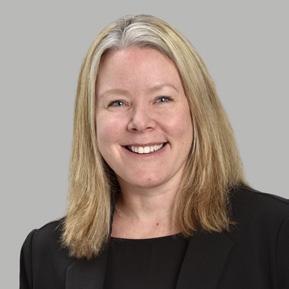
LINDSAY SPROULE
Director Regulatory Programs Performance, College of Veterinarians of Ontario
Lindsay is the Director, Regulatory Programs, Performance at the College of Veterinarians of Ontario. She has worked in professional regulation in Ontario for over 10 years. Lindsay is responsible for providing leadership and direction to operational policy and monitoring performance and outcomes of the College’s regulatory programs. This includes measuring regulatory program performance through key performance indicators and providing performance reports for the organization. She oversees decision writing and case outcomes in Regulatory Programs, provides leadership and oversight to the Practice Advisory Service and manages strategic projects.
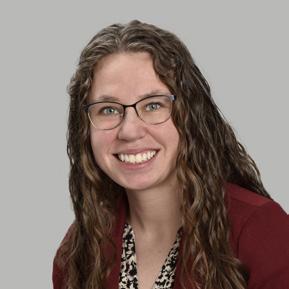
KALI PIETERS
Policy & Projects Coordinator
College of Veterinarians of Ontario
Kali Pieters is the Policy and Projects Coordinator at the College of Veterinarians of Ontario. Kali joined the College three years ago after completing a Master of Arts degree in Sociology at Western University which included a Master’s Research Paper exploring the impacts of the expanding scope of a profession. At the College, Kali supports the implementation of the current policy agenda and assists with the research and development of materials for both the College’s Legacy and Transition Councils. Kali also co-leads the College’s Internal Transition Team where particular focus is dedicated to managing transition in all areas of the College throughout the ongoing legislative reform process.

EMMA MARTIN Research Manager, Pivotal Research
Emma Martin is a Research Manager at Pivotal Research. Emma’s extensive background in program evaluation and performance measurement, public engagement, and public policy, has enabled her to support regulators across Canada in updating regulatory policy and improving regulatory processes. Her regulatory work has included Standards of Practice and Codes of Ethics reform, registration and exam process evaluation, and engagement with patients, clients, registrants and regulators across dozens of regulated professions. Emma holds a Master of Public Policy from the University of Toronto.
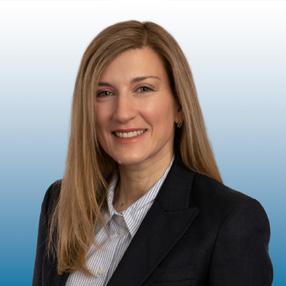
DOHA MELHEM
VP of Consulting & Chief Evaluator, Pivotal
Doha Melhem is a seasoned public policy leader with over 20 years of experience and serves as the Vice President of Consulting & Chief Evaluator at Pivotal Research, Inc. Her expertise in evidence-based decision-making and strategic policy implementation has significantly benefitted government and business leaders in Canada and the United States. Raised in seven countries across four continents, Doha is a proud global citizen skilled in viewing challenges from diverse perspectives, finding common ground, and crafting win-win solutions that satisfy all stakeholders. At Pivotal Research, she leads a dynamic team, spearheading high-impact research and strategic policy projects focused on regulatory innovation, change management, and labour market insights, driving positive outcomes for businesses and communities alike. Previously, Doha led policy and legislation teams at the U.S. Department of Labor, directing successful skills development and economic recovery initiatives. Her leadership has been recognized with multiple awards for her contributions to policy development, immigrant integration, and international affairs. Doha chairs the Edmonton Chamber of Commerce’s Workforce Development and Attraction Committee and actively participates in the International Association of Public Participation and the Canadian Network of Agencies of Regulation. She holds a Master’s in Public Policy and a Certificate in Nonprofit Management from Johns Hopkins University, and a Bachelor of Arts in Political Science with distinctions from the American University of Beirut.
Unlocking the Future: Digital Forensics & AI in Professional Regulatory Investigations

DEAN BENARD
CEO, Benard + Associates
Dean Benard is well known for his expertise in investigations and conflict resolution. With previous careers as an ER Nurse, Police Officer, and Regulatory Investigations Manager, Dean took these life experiences and channelled them into the founding of Benard + Associates, an investigation and mediation firm that serves over 50 regulatory bodies across Canada. Dean has the formal educational credentials people often expect from a speaker, consultant, and strategist, but credits his real learning to his experiences and the support and mentorship others have kindly given him over the past 30-plus years. He is a Chartered Mediator with the ADR Institute of Canada and teaches investigations, communication, and conflict resolution skills and strategies to hundreds of people each year across dozens of organizations. He shares his knowledge extensively through YouTube where he publishes various talks he has delivered as well as his monthly Take 5 videos on topics related to investigations and mediation. Dean received his Diploma in Nursing from Fleming College in Peterborough, his Bachelor of Arts in Health Administration and Ethics from York University, a Master of Laws & Letters from Osgoode Hall Law School, and a post graduate certificate in diversity and inclusion from Cornell University.

EUGENE SILVA
Forensic Analyst, TraceX Digital Forensics
Eugene Silva is the Chief Technology Officer at TraceX Digital Forensics. He has over 30 years of experience in criminal investigations and digital forensics, Eugene Silva is a trusted expert known for his commitment to detail and accuracy. Having spent much of his career with the Waterloo Regional Police Service, Eugene has held various critical roles, including drug enforcement, undercover operations, and cybercrime investigations. Eugene has conducted over 1,200 digital investigations, ranging from complex homicide cases to cyber crimes like ransomware and child exploitation. Eugene is also a seasoned court expert, having testified in many cases over the last few decades. His balanced, unbiased approach has earned him the trust of both prosecutors and defence teams alike. Recognized for his expertise, Eugene has been awarded several commendations, including the Canadian Police Exemplary Service Medal. Eugene’s work extends internationally, having presented at INTERPOL’s Crimes Against
Children conference. His dedication to protecting vulnerable populations and providing high-quality investigative services makes him an invaluable resource for clients who demand precision and professionalism.
AI-assisted exam content generation –how does it work in practice?
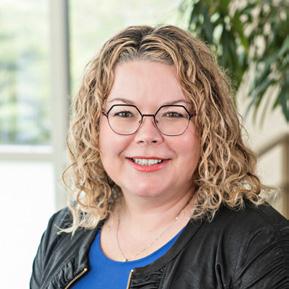
ISABELLE GONTHIER, PHD, ICE-CCP
Chief Assessment Officer, PSI
Dr. Isabelle Gonthier is PSI’s Chief Assessment Officer where she oversees the teams responsible for ensuring overall client and program success, including psychometrics services, content management, data analytics and forensics, account management, and client services across all global markets PSI is serving. In an executive leadership role, she draws from her 20+ years of industry experience to help define PSI’s business strategies and develop service offerings and technology roadmaps. On a client level, Isabelle is known for her keen ability to blend best practice guidance with smart innovation to set credentialing programs up for success. Isabelle has been highly engaged in advancing the testing and credentialing field, including serving as NCCA chair and psychometric commissioner, and now serving as the Chair of the I.C.E. Accreditation Services Council and as Vice-Chair on the ATP Security Committee. She is also serving as a Director on the CNAR Board of Director. Isabelle holds the ICE-CCP (Certified Credentialing Professional) certification, demonstrating competence across all professional credentialing activities.
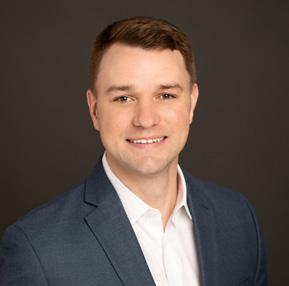
SEAN GASPERSON, PHD
Associate Vice President, Assessment Services, PSI
Sean Gasperson, PhD, serves as the Associate Vice President, Assessment Services for PSI and manages the certification, licensure, and federal teams to support clients through every step of the assessment life cycle, including job analysis, item development, exam development, exam review, standard setting, item analysis, and accreditation support. In his work, Sean oversees a team of psychometricians and test developers who are responsible for test design, evaluation of testing outcomes, and assessment consultation. Sean has over a decade of experience in psychometrics in a diverse span of industries. He earned his PhD in Industrial and Organizational Psychology from North Carolina State University.
Master Class I: AI in Professional Practice: Setting and Applying Principles and Expectations for
Public Protection

CAMERON THOMPSON
Manager of Standards and Strategy, Royal College of Dental Surgeons of Ontario (RCDSO)
Cameron Thompson is the Manager of Standards and Strategy at the Royal College of Dental Surgeons of Ontario. With 15 years of experience in professional regulation, Cameron is passionate about health regulation, protecting the public, and engaging with the profession. Cameron holds a Bachelor’s degree in Psychology and a Master’s degree in Public Administration. In his current role, Cameron and his team are driving excellence in standards to ensure the highest quality in dental healthcare practices.

DEBORAH ADAMS
Registrar & CEO, College of Registered Psychotherapists of Ontario (CRPO)
Deborah holds a Master of Health Science in Health Administration from the University of Toronto. She has had professional experience in both primary care and professional regulation. Prior to being appointed the Registrar/CEO of the College of Psychotherapists of Ontario in 2017, Deborah had the privilege of being the administrative lead for both palliative care and family medicine for Sinai Health and the registrar at the College of Midwives of Ontario. Deborah is committed to supporting staff, Council and committees in a progressive approach to governance and core regulatory work.
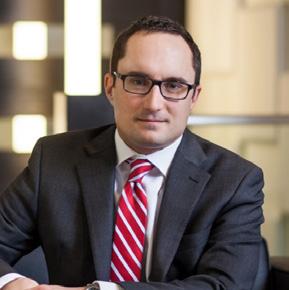
JONATHAN SAUMIER
Counsel, Legal Services Support, Nova Scotia Barristers’ Society (NSBS)
Jonathan joined the Nova Scotia Barristers’ Society following more than a decade in private practice at a Halifax law firm. As Legal Services Support Counsel with the Society, Jonathan advises lawyers on various aspects of the practice of law, including technology and the use of artificial intelligence (AI). Jonathan has presented on AI and the practice law to the Canadian Bar Association, The Advocates’ Society and the Nova Scotia Department of Justice as well as a number of private law firms.
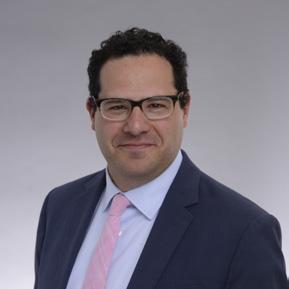
JUDA STRAWCZYNSKI
CEO and Registrar, College of Patent Agents & Trademark Agents (CPATA)
Juda Strawczynski is the CEO and Registrar of the College of Patents & Trademark Agents (CPATA), the independent public interest regulator of patent agents and trademark agents in Canada. He is a lawyer and frequent speaker on professional regulation and risk. He was previously Director of practicePRO, LAWPRO’s claims prevention and risk management initiative, where he led its claims prevention, resource development, continuing professional development programming, and educational outreach efforts. Before joining LAWPRO, Juda was a policy counsel at the Law Society of Ontario, advising on key issues facing the legal professions including access to justice, professional regulation, and consumer protection issues. Juda previously practiced at two litigation boutique law firms. He has also served as the volunteer President of Canadian Lawyers for International Human Rights, a Fellow at Physicians for Human Rights, a law clerk at the Federal Court, and a Director of the Canada Millennium Scholarship Foundation. Juda has a B.A. from McGill University and JD from the University of Toronto.

ZUBIN AUSTIN
Professor and Murray Koffler Research Chair, Leslie Dan Faculty of Pharmacy and the Institute for Health Policy, Management, and Evaluation at the Dalla Lana School of Public Health – Temerty Faculty of Medicine, University of Toronto
Zubin Austin, BScPhm MBA MISc PhD FCAHS, is Professor and Murray Koffler Research Chair at the Leslie Dan Faculty of Pharmacy and the Institute for Health Policy, Management, and Evaluation – Temerty Faculty of Medicine at the University of Toronto. His research focuses on the professional and personal development of the health workforce. He has published over 250 peer reviewed manuscripts and authored 5 textbooks. In 2017, in recognition of the global impact of his work, he was installed as a Fellow of the Canadian Academy of Health Sciences, the highest honour for health services researchers in Canada. In 2024, he received the Journal of Medical Regulation’s award for best paper for his work related to regulation of wicked problems. He is the only University of Toronto professor ever to have received both the President’s Teaching Award for sustained excellence as an educator and the President’s Research Impact Award for the societal significance of his work. He has been named Professor of the Year by students on 20 separate occasions.
Master Class II: AI in Regulation: Unlocking the Potential for AI in Regulatory Work Responsibly and Ethically
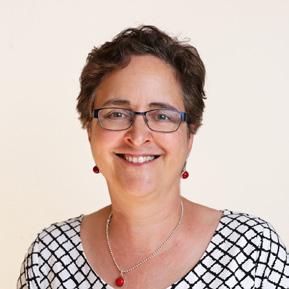
TERESA SCASSA
Canada Research Chair in Information Law and Policy, Faculty of Law, University of Ottawa
Dr. Teresa Scassa is the Canada Research Chair in Information Law and Policy at the University of Ottawa, Faculty of Law. She is the author or co-author of several books, including: The Future of Open Data (uOttawa Press 2022); Artificial Intelligence and the Law in Canada (LexisNexis 2021); Digital Commerce in Canada (LexisNexis 2020); and Law and the Sharing Economy (uOttawa Press 2018). She is a member of the Centre for Law, Technology and Society, as well as the Centre for Health Law, Policy and Ethics. She serves in a volunteer capacity on numerous advisory bodies, the Ontario Information and Privacy Commissioner’s Strategic Advisory Council and the Ontario Health Data Council. She is also the is the Chair of Ontario’s AI Expert Working Group. In 2024 she was awarded the Piccasso Award in the category of Privacy Leader Academia/Thought Leader.

TROY JANZEN
Chief of Practice, Deputy Registrar, and Complaints Director, College of Alberta Psychologists
Dr. Troy Janzen is currently the Chief of Practice, Deputy Registrar and Complaints Director at the College of Alberta Psychologists (CAP). As Chief of Practice his role includes development of guidelines for the profession which has included guidance on use of technology. He has worked extensively as a psychologist in assessment and intervention with pediatric populations and families in hospitals, schools, private practice, First Nations Reserves, and Children’s Services settings since 1993. From 2009 to 2017 he served as the Clinical Supervisor and Practicum Coordinator for the CPA-accredited School and Clinical Child Psychology Program at the University of Alberta (U of A). Prior to U of A, Dr. Janzen was Chair of the Psychology Department at Taylor University College where he helped establish an undergraduate program in psychology. Dr. Janzen has been serving in his current role at CAP since 2017. Dr. Janzen is leading the charge surrounding understanding the risks and potential uses of AI within CAP and for the profession.
Fundamentals of Regulation

FLOYD GARVEY
Director, Information Technology College of Nurses of Ontario
Floyd Garvey is a seasoned technology executive with over 20 years of experience leading enterprise-scale digital transformation in both public and private sectors. As Director of Information Technology at the College of Nurses of Ontario (CNO), Floyd is responsible for setting and executing CNO’s technology strategy, with a strong focus on data-driven innovation, cybersecurity, and AI integration. Under his leadership, CNO has launched its AI program, aimed at responsibly enhancing regulatory operations through automation, predictive analytics, and digital service delivery.
Floyd is passionate about ethical technology adoption, cross-functional collaboration, and ensuring digital tools amplify – not replace – human judgment in regulatory work. A respected thought leader and speaker, Floyd regularly engages in cross-sector dialogues to shape the future of technology in professional regulation.
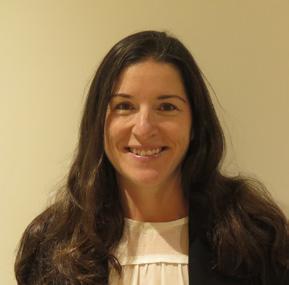
ERIN TILLEY, MN, BHSC, RN, PMP, FRE
Manager, Regulatory Policy College of Nurses of Ontario
Erin Tilley (she/her) is Manager, Regulatory Policy with the College of Nurses of Ontario and has been with the College nearly 20 years. Her portfolio includes the development of practice standards. Prior to joining the College, Erin worked as a nurse at Sick Kids Hospital and a Research Officer at the University of Toronto.

GILLIAN SLAUGHTER
Registrar & CEO, College of Occupational Therapists of Ontario
Gillian Slaughter is the Registrar and CEO of the College of Occupational Therapists of Ontario. For over 10 years, she has held progressive leadership positions at three other health regulators, the Royal College of Dental Surgeons of Ontario, the College of Physicians and Surgeons of Ontario, and the College of Dental Hygienists of Ontario. She practiced litigation at a large general service law firm, representing clients in proceedings before all levels of court in Ontario and various tribunals. Gill is a frequent speaker about regulatory issues at national conferences.
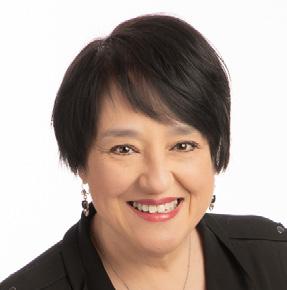
JACQUIE MESSER-LEPAGE
Executive Director/Registrar, Saskatchewan College of Paramedics
Jacqueline Messer-Lepage is currently the Executive Director for the Saskatchewan College of Paramedics. She is an experienced professional, having developed expertise across sectors with a particular focus in healthcare regulation, labour relations, privacy, rural health, and systems programming in addition to having worked directly in front-line healthcare delivery.
As a senior executive within the public and private sectors, as well as an external consultant for more than 20 years, Jacqueline is well versed in the development of strategic frameworks, organizational governance, regulatory and legislative drafting, and managing highly complex issues and projects. She has a deep understanding of the challenges faced by healthcare organizations and regulators, and how best to navigate competing priorities in these areas.
Her interest in innovation in regulation led the Saskatchewan College of Paramedics to pursue several projects focused on the utilization of immersive technology in competency assessment. Through these efforts, the College has become a leader in this area and is now working on research to improve the regulatory process through technology.
Jacqueline has published research findings and presented to audiences nationally and internationally on innovation in regulation and other regulatory areas of interest.

LEIGHA HUBICK, CPA
Registrar, Chartered Professional Accountants Saskatchewan (CPASK)
Leigha Hubick obtained her professional accounting designation in 2006. She is a graduate from the University of Saskatchewan. She commenced her career as a professional accountant with employment with Deloitte LLP in Regina, SK.
Leigha is currently the Registrar with the Institute of Chartered Professional Accountants of Saskatchewan (CPA Saskatchewan) and has worked with the Institute of Chartered Accountants of Saskatchewan (ICAS) since 2011. Through her role at CPA Saskatchewan, Leigha works on national and regional committees and task forces on a variety of issues affecting the regulation of the CPA profession.
Leigha is serving her second term as the Treasurer for the Canadian Network of Agencies for Regulation (CNAR).
Leigha has worked in both public and private sectors over the course of the last 20 years.
Leigha has donated her time volunteering and participating with various organizations including Regina Speed Skating Club, Hockey Regina, Plainsview School Community Council, University of Saskatchewan Alumni Events, Regina Red Sox and the Highland Curling Club.
Leigha and her husband Jeremy live in Regina and have two sons and a bernadoodle.
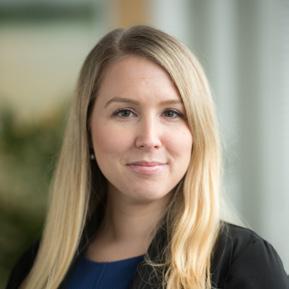
LINDSAY STEELE
Associate Director, Professional Practice Engineers and Geoscientists British Columbia
Lindsay Steele is a registered professional geoscientist with extensive experience in mining and mineral exploration and professional regulation. As Associate Director of Professional Practice with Engineers and Geoscientists BC, Lindsay is responsible for the development and management of proactive and remedial resources for individual registrants, including Engineers and Geoscientists BC’s professional practice guidelines, practice advisories, quality management standards, and practice advice services. In addition, she oversees the Continuing Education Program and the individual Audit and Practice Review Programs.
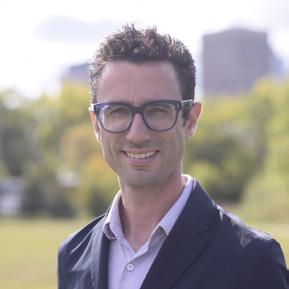
MARTIN LUSSIER
Manager of Communications and Public Engagement, College of Registered Nurses of Manitoba
Martin is a big picture and innovative strategist and leader in communications, public engagement, government relations, and reputation management. Drawing on over 15 years working in the nonprofit and public sectors, Martin believes strongly in the potential of effective and deep listening, collaboration and relationship building to advance organizations’ mandates and create meaningful, mutually beneficial solutions. At the College of Registered Nurses of Manitoba, Martin has led a transformation of the communications function into a strategic and highly integrated team that supports executive leadership, engages registrants and the public, and helps lead and manage change. He is a candidate in the Masters of Communication Management program at McMaster University, and is focused on advancing meaningful dialogue to support reconciliation with First Nations, Inuit and Métis, as well as strengthening equity and progressive, positive change for all who live and work across Canada.
Interactive Discipline Hearing

JASON KULLY Partner, Field Law
Jason Kully is a partner in Field Law’s Edmonton office serving clients in the practice areas of professional regulation and labour and employment. Jason’s clients include professional regulatory organizations, post-secondary institutions, and businesses of all sizes. He has represented clients at all levels of court in Alberta, as well as a multitude of administrative bodies, including the Alberta Labour Relations Board, Alberta Human Rights Commission, and Office of the Information and Privacy Commissioner of Alberta.
Jason serves as a legal advisor for a variety of professional regulatory organizations across many different professions in matters involving governance, conduct and discipline, policies and procedure, privacy, registration, and unauthorized practice. He has appeared before tribunals to present cases concerning allegations of unprofessional conduct and has also acted as independent counsel to tribunals. Jason is one of the authors of The Law of Regulatory Investigations in Canada, along with Jim Casey, KC and Michelle Casey, which focuses on legal issues that arise during investigations rather than during the adjudicative phase and takes a multidisciplinary approach since the legal issues that arise across regulatory regimes are similar. Jason also co-authored The Annotated Health Professions Act, with Jim Casey, KC, Katrina
Haymond, KC and Gregory Sim, which was published by Thomson Reuters in 2020 and is a practical guide for legal counsel and regulators and includes extensive annotations, commentary, templates and flowcharts.
Jason has experience working with several post-secondary institutions in Alberta, including Canada’s second-largest university, in matters involving institutional policy and procedure, governance, legislative compliance, labour relations, human rights, contract matters, employment issues and administrative practice and procedure. Jason has acted as the spokesperson in collective bargaining and also routinely provides support during the negotiation of collective agreements.
He has conducted workplace investigations and has advised clients on how to address the results of such investigations. Clients engage Jason for support on a number of labour and employment issues including:
• Advice on termination and layoff situations in unionized and non-unionized environments
• Development of human resource policies
• Advice throughout the collective bargaining process
• Drafting employment agreements and assisting with the amendment of agreements
• Privacy breaches and addressing data integrity issues proactively
Jason frequently provides training on labour and employment and professional regulatory issues. He is a member of Field Law’s Workplace Investigations group and has completed trauma-informed training.
Jason’s experience clerking at the Alberta Court of King’s Bench has informed his own legal practice and has contributed to his development as an oral advocate for his clients. Although based in Edmonton, Jason works with clients throughout Alberta.
Jason teaches human rights law at the University of Alberta Faculty of Law. He also provides pro bono assistance to the Student Legal Services of Edmonton Human Rights Project.

VITA WENSEL Lawyer, Field Law
Vita Wensel is a lawyer in Field Law’s Edmonton office focusing on professional regulation and administrative law, health law, and criminal law.
Vita was called to the bar in 2019 and started her legal career in criminal defence. She then acted as in-house counsel for a regulatory health college, focused on prosecuting disciplinary matters, where she gained extensive experience in managing and providing advice on complaints from start
to finish, including investigations, hearings, and resolution. She also has experience as a Complaints Director for a regulatory health college, gaining a unique insight into the decisionmaking role. Before joining Field Law in 2023, she attended the University of Toronto for an LLM in Health Law, Ethics, and Policy, expanding her knowledge to best support her clients’ needs. During her LLM, she focused on various areas, including fitness to practice, consent to medical treatment and incapacity.
Having worked for regulatory colleges, she understands providing cost-effective services and focusing on the goals of an organization. She pairs this with straightforward, compassionate, and individualized legal advice. Vita’s experience and areas of assistance include:
• Conducting administrative hearings relating to discipline, administrative penalties and other orders
• Advising professional regulatory organizations in areas such as registration/licensing, unauthorized practice, discipline, compliance, and interpretation of legislation
• Assisting in privileging matters
• Conducting registration reviews
• Assisting in judicial reviews relating to regulatory organizations
• Conducting criminal trials, bail hearings, guilty pleas and other applications and assisting on other criminal matters such as appeals
• Drafting decisions for administrative decision-makers, and
• Drafting policies, procedures, and guidelines for professional regulatory organizations.
Vita enjoys examining legal issues from both sides to better prepare her client’s case and approach law and litigation collaboratively with her colleagues and clients.
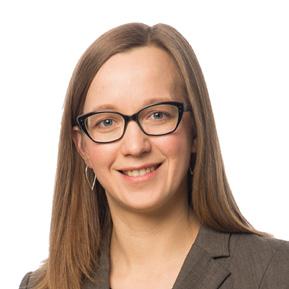
KIM PRECHT
Partner, Field Law
Kimberly Precht is an Edmonton-based lawyer practicing primarily in the areas of professional regulatory law, general litigation and labour and employment law. She works with a broad range of clients, including individuals, businesses of all sizes, public institutions, and post-secondary institutions, and provides support to employees and employers across a variety of industry sectors.
As a lawyer, Kimberly focuses from the start on understanding her clients’ context and goals. Kimberly enjoys learning about the challenges and opportunities clients face, and always strives to figure out what is really at stake for her clients. She works hard to ensure clients fully grasp relevant legal issues, and helps craft and implement solutions that are legally and practically sound.
Kimberly is able to assist clients with a wide range of legal matters, including:
• Consulting and advising on termination and layoff situations for both employers and employees
• Assisting with the development of human resource policies for small to mid-sized businesses
• Assisting professional regulatory organizations in areas such as registration, discipline, policy, and governance
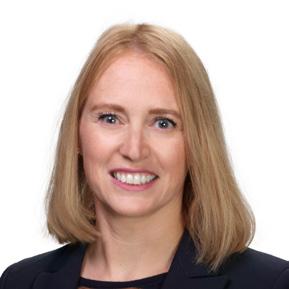
CHELSEY BAILEY
Partner, Field Law
Chelsey Bailey, KC is a civil litigator with over 20 years of experience representing Alberta-based clients. Chelsey’s practice is focussed on health law, in the context of both medical malpractice/negligence defence and professional regulation.
In her civil defense practice, Chelsey represents health authorities, hospitals, long-term care facilities, emergency health services and their individual staff members, in complex medical negligence actions, including birth and brain injury cases and at inquiries constituted under the provincial Fatality Inquiries Act. In this role she has defended nurses, physicians, pharmacists, paramedics, speech-language pathologists, occupational and respiratory therapists and other health professionals. Chelsey was one of the team of health law lawyers at Field Law representing the health authority at the 2012/2013 Provincial Public Inquiry into Preferential Access to Health Services.
Professional Colleges, including several health-related professional regulatory bodies, seek Chelsey’s help with a broad range of matters, such as disciplinary proceedings, investigations, and registration reviews and appeals. She provides advice on scope of practice opinions, licensing, continuing competence, substantial equivalency assessments and bylaw and policy development.
Chelsey appears before all levels of Court in Alberta and various administrative tribunals, including the Health Disciplines Board, the Public Health Appeals Board and the Law Enforcement Review Board. She has represented clients in judicial dispute resolutions, mediations and in investigations by the Office of the Alberta Ombudsman. She has presented on a myriad of professional negligence topics and on many issues relevant to professional regulation.
In 2016, Chelsey was selected by her peers in the field of Medical Negligence and is listed as a leading lawyer in Lexpert. She is recognised in Best Lawyers™ (Canada) in the field of Medical Negligence including Best Lawyers™ Medical Negligence “Lawyer of the Year” in Edmonton for 2025. She is an elected member of Field Law’s Executive Committee.

GREG SIM Partner, Field Law
Gregory Sim focuses his law practice on professional regulation, administrative law, employment law and related litigation. He represents professional and sport regulatory organizations, professionals and employers throughout Alberta and the Northwest Territories. Gregory has over 15 years of experience advising clients across many different industries, such as health care, financial services, legal, real estate, advanced education, policing, natural resources, engineering and geoscience, construction, retail and hospitality. He has represented clients before a variety of administrative tribunals and all levels of Court. He is an elected member of Field Law’s Executive Committee.
Clients seek Gregory’s advice in all areas of professional regulation, administrative law and employment law and litigation. These include:
• Registration and entry to practice
• Labour mobility
• Conduct and discipline
• Unauthorized practice
• Legislation development
• Policy and governance
• Independent tribunal counsel
• Judicial reviews and appeals
• Human rights
• Employment policies and agreements
• Wrongful and constructive dismissal claims
• Post-employment restrictions
In addition, Gregory handles general civil litigation disputes. “I work to find the best possible solution and the best, most practical way to achieve it… even if it’s not litigation in the courtroom.”
Greg co-authored The Annotated Health Professions Act, with Jim Casey, KC, Katrina Haymond, KC and Jason Kully, which was published by Thomson Reuters in 2020 and is a practical guide for legal counsel and regulators and includes extensive annotations, commentary, templates and flowcharts.
DAY #1 – TUESDAY, OCTOBER 21ST, 2025
KEYNOTE

MARK TEWKSBURY
Olympic Gold Medalist, Humanitarian, Activist and Author
Mark Tewksbury C.C, M.S.M, OLY first came to prominence as the star athlete who burst out of the water at the Barcelona Olympics to win Gold!
An Olympic Champion with Gold, Silver and Bronze medals, 7 World Records, and a cover appearance on TIME magazine, Mark is one of the first athletes who publicly came out in 1998, making him one of the first openly gay Olympic champions in the world. He has been a leader in the LGBTQ2S+ movement ever since.
Mark is the former Vice President of the Canadian Olympic Committee, and co-founder of Great Traits, a training company that helps Leaders. Throughout his life, Mark has played a strong role to shift and shape Canadian society through his story, work and legacy. As an advocate, consultant, speaker and hero, Mark has spent his career impacting change in individuals and organizations.
Mark has received 5 honorary degrees, the Queens’s Jubilee Silver Medal, the Meritorious Service Medal and a Muhammad Ali Humanitarian Award for Gender Equality. Most recently, Mark was appointed Companion of the Order of Canada, the nation’s highest civilian honor. At any given time, there is a limit of 165 Canadians that carry this distinction and honour.
Drawing on his vast leadership experience as well as data from his leadership teaching, Mark’s authentic, thoughtful and inspired approach is guaranteed to spark new ways of thinking and leave a lasting impression for years to come.
CONCURRENT SESSION #1
From Bottleneck to Breakthrough: Tackling Investigation Backlogs

GILLIAN SLAUGHTER
Royal College of Dental Surgeons of Ontario, Director, PCRA
See Fundamentals of Regulation on page 45 for bio.
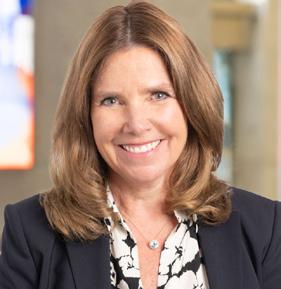
LAURA HALBERT
College of Immigration and Citizenship Consultants, Director
Laura Halbert is the Director of Professional Conduct at the College of Immigration and Citizenship Consultants (CICC) which licenses and regulates Canadian immigration and citizenship consultants in the public interest. She has responsibility for the College’s intake, early resolutions, investigations and discipline committee functions. She has over 25 years of regulatory experience with the provincial government and Ontario Motor Vehicle Dealer Industry Council, where she was the Deputy Registrar and Director of the Motor Vehicle Dealers Compensation Fund.
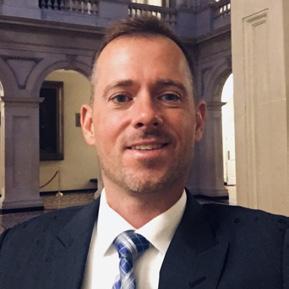
MICHAEL RUSEK
Professional Engineers Ontario, Director
Michael holds a B.A. (Hons) from the University of Toronto and an LL.B. from Queen’s University. He began his career with the Canada Border Services Agency, working for a decade in areas such as national security, anti-smuggling, transnational crime, and immigration enforcement, while also serving as an adjudicator for the Immigration and Refugee Board. In 2012, Michael returned to law, joining the Ontario Motor Vehicle Industry Council (OMVIC), where he spent another decade litigating consumer protection, discipline, and licensing matters in various courts and tribunals. In 2024, Michael became the Director of Regulatory Compliance for the Association of Professional Engineers of Ontario (PEO), overseeing investigations and prosecutions related to unlicensed practice, professional misconduct, and incompetence. He also manages PEO’s Continuing Professional Development program for licensed engineers.
CONCURRENT SESSION #2
Guiding Artificial Intelligence Integration in Professional Practice: The Regulator’s Role
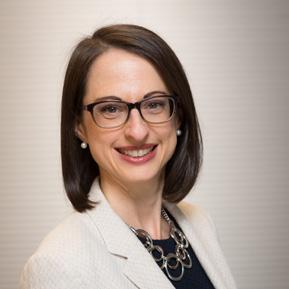
AMY FEHR
Engineers and Geoscientists BC, Manager, Professional Practice Advice Program
Amy Fehr is a Professional Engineer and Manager of the Professional Practice Advice Program at Engineers and Geoscientists BC. Amy is responsible for overseeing a team that assists registrants with ethical and professional practice related issues, including practice advice services, practice guideline development, advisory group support, and external party engagement regarding practice issues that affect registrants. Amy has a background in consulting engineering that gives her a solid understanding of many practice issues facing registrants and allows her to bring an efficient and constructive approach to her work. She is passionate about advancing proactive regulation and driving the progress of the engineering and geoscience professions in BC.

NADIA ROWE
Law Society of BC, Practice Advisor
Nadia Rowe is a Practice Advisor with the Law Society of British Columbia, where she provides confidential advice on issues of ethics and professional responsibility to BC lawyers, articled students, and law students. Prior to joining the Law Society, Nadia practised in-house and in private practice where she had a multi-disciplinary practice advising public bodies, boards, and private organizations across a variety of industry sectors. She primarily advised in areas of privacy, copyright, and corporate commercial law, with a focus on the post-secondary and entertainment sectors.
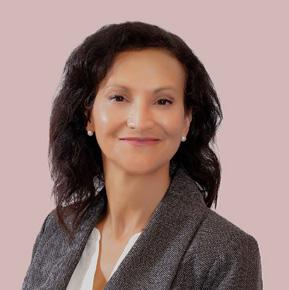
SUE BOTELHO
Ontario College of Social Workers and Social Service Workers, Associate, Professional Practice
Sue Botelho is a Professional Practice Associate at the Ontario College of Social Workers and Social Service Workers. Sue promotes the values of ethical and accountable practice by providing registrants with support regarding the interpretation and the articulation of
the College’s Standards of Practice and Code of Ethics. Sue contributes to developing College resources and presents to registrants, prospective registrants, employers, and the public. Sue has worked in children and adult mental health and developmental services, as well as child protection, and various community-based programs to support children and adults with complex needs. She has also developed social and organizational policy and programs, and worked for several years at the post-secondary level, teaching and developing curriculum.
CONCURRENT SESSION #3
Relational Governance – What is it and why it works
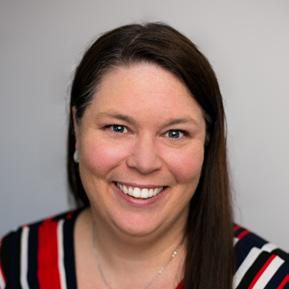
LOUISE AERTS
BC College of Nurses and Midwives, Acting CEO
Louise has over 15 years of Executive level experience in the regulatory arena and is highly committed to governing the practice of health professionals in the public interest, with a focus on addressing Indigenous-specific racism, promoting equity, fairness in decision-making, and interprofessional collaboration. As Registrar and Executive Director of the College of Midwives of BC from 2014 to 2020, Louise led the regulator through a period of transformation that included changes to the Midwives Regulation, a complete revision of the bylaws, as well as an amalgamation with the BC College of Nursing Professionals, which took effect in September 2020. Following the amalgamation, Louise supported the initial integration of the legacy colleges’ regulatory functions as well as facilitating the new college’s strategic and operational planning processes. She also led the work to create BCCNM’s Cultural Safety and Humility action plan, working closely with First Nations Elders and Advisors, upon whose territories the college is situated. Louise supports the board, committees, and organization on strategy and governance matters. Her reconciliation work ensures that the critical concepts of reconciliation, equity, diversity, and inclusion are integrated into all aspects of BCCNM’s work. In April 2025, Louise was appointed Interim CEO at BCCNM and is leading the organization through a leadership change, business transformation and the introduction of new umbrella legislation.

RHIANNA MILLMAN
BC College of Nurses and Midwives, Indigenous Cultural Safety & Humility Consultant
Rhianna is a citizen of Métis Nation British Columbia with ancestry from the Red River Valley in what is today called Manitoba. She is the family advocate for Keegan Combes and co-author of “Remembering Keegan: a BC First Nations Case Study Reflection” developed in partnership with First Nations Health Authority. Grounded in ceremony, Remembering Keegan was gifted by Keegan’s family and community to the BC healthcare system as a learning tool to help shape the Cultural Safety and Humility transformation required in BC. Rhianna has raised awareness and advocated for accountability, change, and transparency so that what happened to Keegan never happens to anyone else. Remembering Keegan is the first case study reflection in the province ever shared by BC First Nations and is being used by health organizations across the country to further learning and action in Cultural Safety and Humility. Rhianna serves as the Indigenous Cultural Safety and Humility Consultant with BC College of Nurses and Midwives where she is the first leadership level Indigenous employee within BC’s largest regulatory college. Rhianna works everyday to advance the commitments made to eliminate Indigenous-specific Racism within BCCNM and throughout the BC Health System.

JANENE ERICKSON
BC Centre for Disease Control (BCCDC), Executive Director, Indigenous Health
Janene Erickson is Dakelh from Nak’azdli Whut’en, a First Nations community in northern BC, and adopted member of the Takaya Wolf Clan, FNHA family. Recent to the role of Executive Director, Indigenous Health at the BC Centre for Disease Control (BCCDC), a first for BCCDC, this role partners across BCCDC to lead systems transformation to advance Indigenous health priorities and eradicate Indigenous-specific racism. Working closely with the Executive Leadership Team, providing Indigenous Thought Leadership and striving to ensure Indigenous perspectives inform organizational decisionmaking through a Rights-, Governance-, and Distinctionsbased approach to deliver on Indigenous priorities, provincial commitments, and the BCCDC Action Plan for Reconciliation. By addressing systemic barriers, promoting Indigenous-specific anti-racism, and building strategic partnerships, this role works to impact at systemic, structural, interpersonal, and point-ofcare levels—enhancing cultural safety for Indigenous patients, families, and staff.
Janene has also been appointed to the board of the BC College of Nurses & Midwives and is currently the chair of the
Board Governance Committee. She is also the Vice-Chair of Panel A of the Inquiry Committee at the College of Physicians & Surgeons of BC. To all this work, she applies her Masters in Public Health along with almost twelve years of experience working in the offices of the Chief Executive Officer and the Chief Medical Officer at the First Nations Health Authority (FNHA). As a ‘customer-owner’ since the historic transfer of federal health services to BC First Nations control, she proudly served First Nations people in her roles and work in health systems partnerships and strategic initiatives. Empowered and inspired by her parents - she brings her lived experiences, the teachings she’s learned, and the education she’s earned to her work and strives to facilitate better health outcomes by addressing Indigenous-specific racism still perpetuated against First Nations, Inuit, and Métis Peoples.
CONCURRENT SESSION #4
Public & Patient Voice in Regulation: Turning Insights into Action
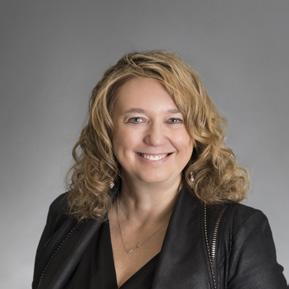
DR. KIM BUGERA
Alberta College of Optometrists, Registrar & CEO
Dr. Kim Bugera is the Registrar & CEO of the Alberta College of Optometrists. She is dedicated to advancing patient-centered care and passionate about amplifying the profession’s role in healthcare policy. With extensive experience in clinical practice in Alberta and having held many professional leadership roles, she is committed to ensuring the patient’s voice is at the forefront of optometric decision-making. Having travelled around the world to provide teaching and vision care outreach to those in need, she maintains a focus on ensuring that patients at home in Alberta have access to the best vision care possible.

MELANIE SICOTTE
Alberta College of Speech-Language Pathologists and Audiologists, Registrar and CEO
Melanie Sicotte, R.SLP is the Registrar and CEO of the Alberta College of Speech-Language Pathologists and Audiologists (ACSLPA). Melanie has been with ACSLPA in different roles since 2021. Prior to her work with the College, Melanie had clinical SLP and leadership roles while working in healthcare, education and private practice, and a career in business. Melanie holds a bachelor of commerce from Mount Allison University and a master of science (applied) in communication sciences and disorders from McGill.
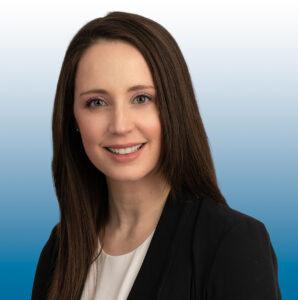
JESSICA DEVRIES
Pivotal Research, Director of Program Development
Jessica DeVries is the Director of Program Development at Pivotal Research, bringing 12 years of experience working with healthcare regulatory bodies and associations across Canada. She holds a Master of Arts in Community Engagement and a Bachelor of Science in Mathematics from the University of Alberta. Over the last three years, Jessica has helped expand Voice of the Patient (VoP) research from a single study to an ongoing program spanning multiple professions across three provinces—Ontario, Alberta, and British Columbia. Several of these studies have evolved into annual tracking programs, providing regulators with longitudinal insights into public and patient perceptions. She specializes in complex, multimethod research that uncovers stakeholder perspectives and supports performance measurement initiatives in healthcare regulation. Jessica also leads research and engagement programs supporting large-scale amalgamations and teambased care model transitions, working with numerous oral and allied health regulators on public polling and registrant engagement strategies. She is a member of the Canadian Evaluation Society and was awarded the Dean’s Gold Medal for her thesis on how formerly incarcerated women define success post-prison.

NADJA GALE
College of Midwives of Ontario, Director of Governance and Strategy
Nadja Gale is the Director of Governance and Strategy at the College of Midwives of Ontario (CMO), bringing over 15 years of experience in health regulation. In this role, Nadja provides strategic leadership in shaping the governance framework and advancing the College’s mission of protecting public safety and promoting excellence in regulatory practice. Inspired by collaboration and learning from others, Nadja is dedicated to advancing fair, transparent, and accessible practices to ensure that regulatory processes reflect the diverse needs of the communities served by midwives and foster trust within the profession and with the public.
AI in Action: Transforming How Exams and Practice Tests Are Developed
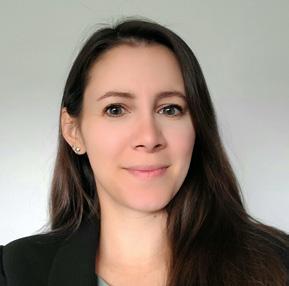
FRANCINE MITRAKOS, ICE-CCP
PSI Services, Test Development Manager
Francine Mitrakos, ICE-CCP is a skilled Test Development Manager with extensive experience in examination development, project management, and stakeholder engagement. She excels in creating and maintaining high quality certification tests, leveraging her in-depth knowledge of item banking and proprietary testing software. With a proven track record of facilitating test development workshops, managing diverse client programs, and leading item writer training, Francine ensures seamless execution of test creation projects. Her dedication to quality assurance and continuous learning is reflected in her certifications, leadership roles, and engaging industry presentations.

CAROLINE NGUYEN
National Dental Examining Board, Director of Examinations
Dr. Nguyen completed her Doctor of Dental Medicine from the University of Montreal in 2006, graduated Phi Kappa Phi for her Master of Sciences and Certificate in Advanced Education in Prosthodontics at the University of Maryland in 2009, and continued with a Fellowship in Maxillofacial Prosthodontics and Oral Oncology at the University of Texas MD Anderson Cancer Centre in 2010. Dr. Nguyen is a Fellow in Prosthodontics of the Royal College of Dentists of Canada and a Diplomate of the American Board of Prosthodontics. She has held various positions in organized dentistry including immediate past President for the Canadian Dental Specialists Association and past President for the Association of Prosthodontists of Canada. She is currently the Treasurer for the American College of Prosthodontics and a board examiner for the Prosthodontics specialty exam of the Royal College of Dentists of Canada. After working 10 years in Vancouver as associate professor at the University of British Columbia and as a maxillofacial prosthodontist and Provincial Practice Leader for the Prosthodontics Division at British Columbia Cancer, in 2020 she became the Director of Examinations for the National Dental Examining Board of Canada while maintaining a hospital and dental private practice in Ottawa.
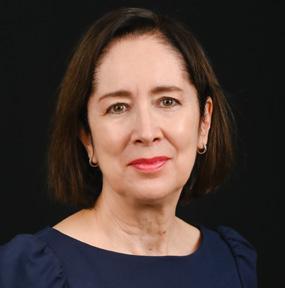
MARIE DAGENAIS
National Dental Examining Board, Executive Director and Registrar
Dr. Marie Dagenais is the Executive Director and Registrar of the National Examining Board of Canada (NDEB) since 2018. Prior to working for the NDEB, Dr. Dagenais spent 27 years at the Faculty of Dentistry at McGill University teaching Oral & Maxillofacial Radiology. She was Associate Dean, Academic Affairs, for 12 years. Dr. Dagenais held several positions in various national organizations including President of the Association of Canadian Faculties of Dentistry (ACFD) and Chair of the Documentation Committee of Commission on Dental Accreditation of Canada (CDAC). She was one of the leaders of the ACFD Educational Framework for the Development of Competency in Dental Programs.
LUNCH N’ LEARN #1
Building Trust and Reducing Barriers: A 360 Degree View of the Complainant’s Experience

GREG HUTCHINSON
Barker Hutchinson & Associates, Co-CEO
See Pre-Conference Workshop: Advanced Trauma-Informed Investigation Practices on page 41 for bio.

PAMELA GREENBERG
College of Physicians and Surgeons of Ontario, Witness Support / Investigations and Resolutions
Pam Greenberg is the Witness Support/ Intake Coordinator at the College of Physicians and Surgeons of Ontario where she acts as the first point of contact for patients making sexual abuse complaints against physicians, and health care professionals inquiring about mandatory reporting on sexual abuse matters. She provides ongoing counselling and support for patients and witnesses throughout the complaints and discipline process.
Pam is a registered social worker with over thirty years experience in diverse areas such as youth at risk and adolescent and family therapy.

SVETLANA GOLTSMAN
College of Nurses of Ontario Manager, Investigations
Svetlana Goltsman is Manager of Investigations at the College of Nurses of Ontario. In her role, Svetlana oversees two teams of investigators who conduct investigations into nurses’ conduct and competence. Svetlana possesses extensive regulatory knowledge and expertise in wide-ranged investigations, including complaints, reports and health inquiries. She is a Registered Nurse, having earned an Honours Bachelor’s degree in nursing from Toronto Metropolitan University (formerly Ryerson University), in addition to a Master’s degree in health management from McMaster University. Before moving into regulatory field as a conduct and capacity investigator at the College of Physician and Surgeons of Ontario more than 11 years ago, Svetlana worked as a nurse in community mental health and long-term care. She has also served as a nursing professor in George Brown College’s continuing education nursing streams. Svetlana is deeply committed to upholding fair and equitable regulation standards and leverages her diverse career background to ensure compassionate albeit impartial investigative processes.
LUNCH N’ LEARN #2
Regulating Health Professions in the Context of For-Profit Ownership

ANDRÉA FOTI
Royal College of Dental Surgeons of Ontario, Deputy Registrar and Privacy Officer
Andréa Foti is the Deputy Registrar and Privacy Officer at the Royal College of Dental Surgeons of Ontario. She oversees core regulatory activities relating to quality assurance, registration, and facilities inspection and leads the College’s work on strategy, professional standards, data and health information privacy. Andréa holds a law degree with a specialization in health law and policy from Dalhousie University’s Schulich School of Law and a master’s degree in health law and ethics from King’s College, University of London, UK. She is a member in good standing with the Law Society of Ontario.

DANIEL FAULKNER
Royal College of Dental Surgeons of Ontario, Registrar & CEO
Daniel Faulkner is the Registrar & CEO of the Royal College of Dental Surgeons of Ontario since August 2020. He is committed to the demonstration of regulatory excellence, public service and positioning professional regulators as an important contributor to health care systems. Daniel began his journey in health regulation at the College of Physicians and Surgeons of Ontario. Over 25 years, he held senior leadership roles including Director of Quality Management, Deputy Registrar and Interim CEO & Registrar. He has independently consulted for several organizations and professions in Canada building solutions for challenges related to governance, strategy, business development and operations.

ERIC COATES
Nova Scotia College of Pharmacists Director of Professional Services
Eric Coates is the Director of Professional Services at the NSCP. In this role he is responsible for overseeing Quality Assurance, Pharmacy Practice, and Professional Accountability. He is overseeing the implementation of the new StaffWISE initiative at the NSCP and recently implemented NSCP’s new proactive practice review program entitled the Practice Feedback Program. Before joining the College, Eric spent nine years in various leadership roles at Nova Scotia Health. Most recently, he held dual positions as Clinical Director of the Halifax Infirmary Emergency Department and Central Zone Director of Clinical Transformation. He also served as a Health Services Manager in Emergency Departments located in Windsor, Sackville, and Halifax, along with a brief tenure as a Quality and Patient Safety Leader in the NSH Accreditation Unit. Eric brings a depth of experience in quality improvement, patient safety principles, clinical practice standards, and interdisciplinary leadership. As a leader in Emergency Medicine and former paramedic, he has successfully implemented process improvements, conducted quality reviews and developed new care pathways.

SHILO TOOZE
College of Veterinarians of Ontario
Deputy Registrar
Shilo Tooze is the Deputy Registrar at the College of Veterinarians of Ontario. Shilo has worked in professional regulation in Ontario for over twenty years. At the College, Shilo supports the work of the Registrar and oversees Human Resources, Finance, Information Governance, Discipline, and Data Management. Shilo also leads the College’s Risk Analysis and Mitigation Unit and the Impact Strategy Unit where the College is exploring innovative approaches to managing risk and demonstrating the impact of the College’s work.
PLENARY SESSION #1
Right Touch Regulation 2025

ALAN CLAMP
Professional Standards Authority
Chief Executive
Dr Alan Clamp has been the Chief Executive of the Professional Standards Authority for Health and Social Care in the UK (PSA) since 2018. The PSA promotes the health, safety and wellbeing of patients, service users and the public by raising standards of regulation and voluntary registration of people working in health and care. Alan was previously the Chief Executive of the Security Industry Authority (SIA). The SIA is a public body established under the Private Security Act 2001 to regulate private security in the UK. Between 2011-2015 Alan held the post of Chief Executive at the Human Tissue Authority (HTA), an independent regulator sponsored by the Department of Health. In addition to his role at the PSA, Alan is a Non-Executive Director at the Parole Board and the Intellectual Property Regulation Board, and a Trustee of the Institute of Regulation.
A College’s Journey to Change Culture and Adopt a Regulatory Philosophy to Better Serve the Publics’ Interests

ANDREW DOUGLAS
College of Registered Nurses of Alberta (CRNA), Executive Director – Governance, Regulation and Standards
Andrew is currently the Executive Director of the Governance, Regulation and Standards Department. Andrew has considerable experience in the public sector and many years of leading key initiatives within Alberta’s provincial health ministry.
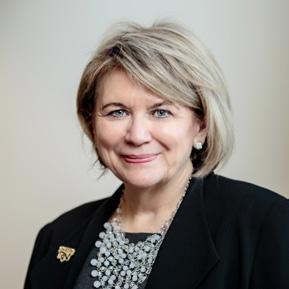
JOY PEACOCK
College of Registered Nurses of Alberta (CRNA), CEO & Registrar
At the College of Registered Nurses of Alberta, Joy’s focus has been on driving transformational leadership and advancing regulatory reform for the last 8 years. Our team has successfully navigated the transition from a dual to a single-mandated regulator, ensuring the delivery of safe and ethical nursing care.

GREG LOVEDAY
College of Registered Nurses of Alberta (CRNA), Executive Director Strategy and Operations
Greg has a considerable experience leading transformational change and innovations across several health and non-health sectors.

TODD SCHNIRER
College of Registered Nurses of Alberta (CRNA), Senior Financial Officer and Executive Director
Todd is currently the Senior Financial Officer and Executive Director People, Planning and Performance Measurement at the CRNA. Todd has extensive experience working in the public sector and post-secondary space. Todd is also responsible for risk management at the CRNA and he brings a wealth of strategic and financial experience to the CRNA
Vehicle Export Investigation
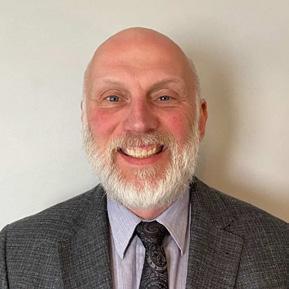
KIRK HUXLEY
Insurance Council of British Columbia Manager Investigations
Kirk joined the Insurance Council in April 2023 as the Manager of Investigations, overseeing a team of nine investigators. Prior to this role, he spent 31 years at the Insurance Corporation of British Columbia (ICBC), the provincially owned auto insurer. During most of his tenure, he served as a Special Provincial Constable with the Special Investigation Unit. He also held the position of Section Manager of an Investigations Team and has extensive experience in investigating fraud, theft, arson, and organized crime targeting ICBC. Throughout his career, he has collaborated on multiple projects with police partners.
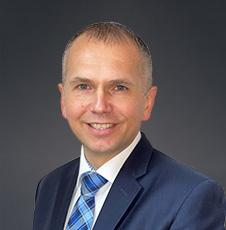
MARKO GOLUZA
Insurance Council of British Columbia Director, Professional Conduct
Marko joined Council in 2020 as the Director, Professional Conduct. He provides leadership for all aspects of Council’s complaints, investigation, and discipline functions. He also oversees Council’s freedom of information and privacy responsibilities. Prior to joining Council, he worked for the federal government in the area of compliance and enforcement for over 20 years and in an executive role for nearly 10 of those years. Marko has expertise in leadership and oversight refined through his years of training and varied experience.

SHAHHIN ASIAEE
Insurance Council of British Columbia In-house counsel
Shahhin worked as a litigator, called to the bar in August 2016. Shahhin gained much of her experience in civil litigation doing insurance defence, working for large insurance companies. Primarily she handled personal injury claims but also handled various insurance claims including occupier’s liability, construction, and subrogation matters. Shahhin contributed to updating the Professional Legal Training Course Practice Materials for Civil litigation (Chapter 4) for the Law Society of BC, in June 2019. In August 2021, Shahhin transitioned into administrative law and into the regulatory world, working as in-house counsel for the Insurance Council of British Columbia. Shahhin routinely works with staff in various departments to ensure policies
and procedures within the organization are compliant with legislation and Council’s jurisdiction. A majority of Shahhin’s work is focused on the professional conduct side, supporting disciplinary cases to ensure the legality of the disciplinary process and decisions.

LUKHBIR (LUCKY) BUDIAL
Insurance Council of British Columbia, Investigator
Lucky joined ICOBC in August 2019 after retiring as a police officer from the RCMP after 27 years of service. His policing experience included policing in ‘O’ Division HQ and an extended secondment to the Durham Regional Police Service, Homicide Unit, and ‘E’ Division in the cities of Burnaby, Richmond, and Federal Serious and Organized Crime. Lucky has received numerous policing awards, including two Federal Bureau of Investigation Certificates of Recognition, Central District of California, and a Leadership Award from the Ontario South Asian Police Officer’s Association. He was the lead investigator for many successful FSOC Projects, including Project E-Pica, in which he and the case were featured on CNBC’s TV Series American Greed.
CONCURRENT SESSION #8
When a Regulator Gets Left Behind: The Problem with Decentralized Provincial Oversight of Professional Regulation

DR. STACEY THOMAS
College of Veterinarians of British Columbia, Deputy Registrar
Dr. Stacey Thomas is a veterinarian and a Deputy Registrar of the College of Veterinarians of British Columbia, the province’s regulator of veterinarians and veterinary medicine

CHRISTINE ARNOLD
College of Veterinarians of British Columbia, Chief Executive Officer and Registra
Christine Arnold is the Chief Executive Officer and Registrar of the College of Veterinarians of British Columbia, the province’s regulator of veterinarians and veterinary medicine. She was previously the inaugural director and managing lawyer of Access Pro Bono’s Everyone Legal Clinic, a first-of-its-kind fully virtual legal services provider and
teaching incubator aimed at sustainably improving access to justice in British Columbia. Ms. Arnold’s public service includes serving as a member of the Property Assessment Appeal Board. She also teaches courses in law, ethics, and professional licensing and regulation at the University of British Columbia’s Sauder School of Business and is a course author and instructor with the BC Council of Administrative Tribunals. Ms. Arnold was born and raised in Vancouver.

GREG CAVOURAS
Sugden, McFee & Roos LLP, Certified In-House Counsel
Greg Cavouras is a lawyer who practises in the areas of administrative law and professional regulation. Greg has experience in all aspects of professional regulation, including investigations and discipline, illegal practice, registration, development of professional standards, drafting bylaws, staff and committee member training, and governance. Greg acts for a wide range of regulatory bodies in British Columbia and Yukon. His approach is to be curious, practical, and fair. Greg returned to private practice in 2020 after spending the previous eight years at senior in-house positions with two regulatory bodies. As a complement to his in-house experience, Greg has earned the designation of “Certified In-House Counsel – Canada” from the Canadian Bar Association. In addition to his practice, Greg is a sessional lecturer at the University of Saskatchewan where he teaches a course in professional regulation. While Greg’s main area of practice is professional regulation, he has experience with many other administrative regimes, and in civil litigation. Greg has appeared before a wide range of administrative tribunals, all levels of court in British Columbia, and the Supreme Court of Canada.
CONCURRENT SESSION #9
Risk-Based Regulation in the Modern World: Using Data, Innovation, and Collaboration to Put Risk at the Centre of Our Work
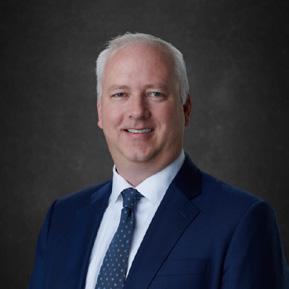
JAY O’NEILL
Retirement Homes Regulatory Authority
CEO and Registrar
As CEO and Registrar, Jay provides executive leadership of the Retirement Homes Regulatory Authority, including development and implementation of the organization’s corporate plans, infrastructure, systems, policies, programs and services to administer the Retirement Homes Act, 2010. He is responsible
for aligning the organization’s activities and rendering regulatory decisions to safeguard the wellbeing of seniors living in licensed retirement homes. Jay has served in various roles with the RHRA since 2011. Jay’s career spans many industries including manufacturing, distribution, pipeline and energy services, and a professional services firm where he assumed responsibility for corporate development. He is a graduate of the MBA program at the Rotman School of Management, University of Toronto. Jay also holds the governance designation of Chartered Director (C.Dir) from McMaster University, and is a past director and committee chair on the Board of the Bereavement Authority of Ontario.
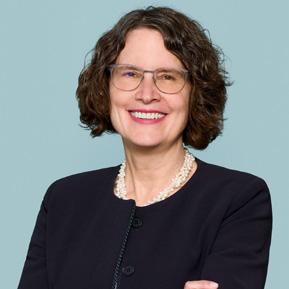
BONNIE ROSE
Technical Standards and Safety Authority
President and CEO
Bonnie Rose, P.Eng., was appointed President and CEO of the Technical Standards and Safety Authority (TSSA) in April 2018. Overseeing all aspects of TSSA’s business operations, she provides leadership on the overall direction and strategic priorities of the organization. She is focused on strengthening TSSA’s role as a well-respected leader in the safety industry and upholding safety excellence.
CONCURRENT SESSION #10
Hiring into an Indigenous-Specific Role: Striving for Culturally Safe Recruitment
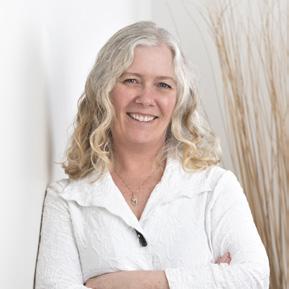
KATHY DAVIDSON
College of Health and Care Professionals of BC
Executive Director, Strategy Governance and Social Accountability
Kathy is a first-generation settler of UK heritage, living as an uninvited guest in the unceded, stolen and occupied territory of the ləkʷəŋən people colonially known as Victoria, BC. She is the Executive Director of Strategy Governance and Social Accountability at the College of Health and Care Professionals of BC, where her role is to facilitate the organization’s continuous shift towards a culture of Indigenous cultural safety, equity, diversity, inclusion and mutual respect. Part of her team’s work is to help CHCPBC demonstrate accountability to the commitments made to eradicate Indigenous-specific racism in regulatory processes and healthcare spaces. Kathy has a Bachelor of Science in Physiotherapy Degree and a Master of Rehabilitation Science. She worked clinically in paediatric physiotherapy for 20 years before moving into consulting and various leadership roles in education program accreditation and health profession regulation.
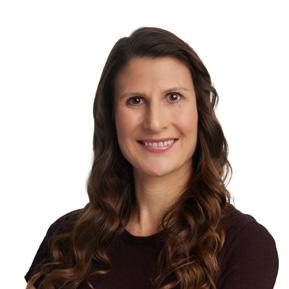
HEATHER BIGGAR
College of Pharmacists of British Columbia, Deputy Registrar
Heather Biggar is a third-generation settler with ancestral connections to Italy, Germany and the UK. She makes her home and raises her family on the stolen, unceded and occupied territories of the hənqəminəm speaking peoples, the xʷməθkʷəyəm (Musqueam Nation), whose lands and waters overlap with the territories of the Stó:lō Nation and the Tsawwassen Nation in what is colonially known as Richmond. Heather holds the role of Deputy Registrar at the College of Pharmacists of BC and has held leadership positions in health regulation for the past 15 years, including as Deputy Registrar of the legacy College of Dental Hygienists of BC. Heather currently leads the Registration & Licensure, Conduct, Inquiry & Remediation, and the Practice Review Program & Quality Assurance teams at CPBC in addition to leading initiatives to decolonize regulatory processes and embed cultural safety and humility practices. She has varied and profound experience in leading partnership engagements from national credentialing and assessment initiatives to Indigenous-specific anti-racism efforts, developing meaningful and lasting relationships with partners both provincially and nationally.

MARYANN ENEVOLDSEN
College of Pharmacists of British Columbia, Director of Indigenous Pathways
I am a Homalco First Nation member and Knowledge Holder. I have dedicated my career towards reconciliation in my roles as Homalco Treaty Director, Lands & Resource Management, Homalco Councilor, Homalco Chief (First Female Chief in my Nation’s history), BC Treaty Commissioner and Indigenous Consultation. I am passionate about working towards reconciliation, I am excited to be part of the CPBC team and look forward to the impacts will make on behalf of Indigenous peoples across BC and Canada.
Navigating Labour Mobility in a ‘Trumped’ Up Trade War: Old Topic, New Pressures

KELSEY IVORY
WeirFoulds, Partner
Kelsey Ivory is a Partner in the firm’s Regulatory Practice Group. Kelsey appears regularly as counsel before administrative tribunals and appellate courts in many aspects of public law.
Kelsey specializes in public law and civil litigation focusing on professional self-regulation and capacity and discipline, human rights, judicial review of government decision-making, and access to information and privacy. She provides strategic advice to industry, health, and social service professional regulators.
Prior to joining WeirFoulds, Kelsey practiced at a boutique Toronto law firm where she defended regulated professionals and maintained a criminal law practice. Kelsey received her Juris Doctor from Dalhousie University’s Schulich School of Law with a specialization in Health Law and Policy. Prior to her years in private practice, Kelsey worked as an Early Childhood Educator. Kelsey’s academic background and experience lends itself to a practical, client-focused approach to legal problem solving.
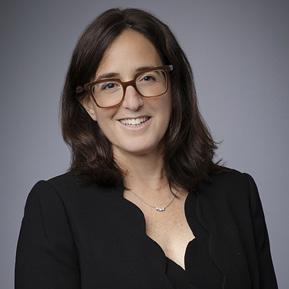
AMY BLOCK
WeirFoulds, Partner
Amy Block is a Partner in the Regulatory Practice Group at WeirFoulds LLP whose practice is focused on professional selfregulation, administrative and public law, and civil litigation.
Prior to joining WeirFoulds, Amy was Senior Legal Counsel and Appeal & Review Lead for the College of Physicians and Surgeons of Ontario. In this role, Amy built considerable experience over the course of 15 years litigating a wide variety of matters including conducting complex hearings involving allegations of sexual abuse, clinical incompetence and incapacity.
Amy has significant experience as appeal counsel, appearing at all levels of the court, including the Divisional Court, the Court of Appeal of Ontario and the Supreme Court of Canada, on matters germane to administrative law and professional regulation, including licensing, investigative and discipline matters.
Amy is a trusted advisor with experience in diverse regulatory issues having advised various College Committees and departments, including with respect to the development of policy and legislative and regulatory amendments to health professional legislation.

JESSICA HARPER
Registered Insurance Brokers of Ontario Director of Policy, Licensing, and Standards
Jessica Harper joined the Registered Insurance Brokers of Ontario (RIBO) as the Director of Policy, Licensing, and Standards in 2021. Jessica leads teams responsible for developing RIBO’s licensing exams and teams responsible for broker licensing. She also leads policy development on emerging issues for RIBO. Her policy team’s work aims to support innovation in the sector that can support “brokers in being better brokers” while establishing regulatory safeguards that protect consumers. She also chairs the General Insurance Licensing and Qualification Review (GILQR) project team for CISRO, a national group of insurance intermediary regulators focused on reviewing competencies for insurance brokers with the aim of establishing a harmonised qualification standard across Canada for licensing. With over 15 years of regulatory policy experience, she has engaged with diverse stakeholders including small business owners, labour unions, and some of Canada’s largest brokers, insurers and pension plans. Before joining RIBO, Jessica held various senior policy advisor roles within the Ontario Public Service and most recently in financial services regulation with the Ministry of Finance. She holds an Honours Bachelor of Science in Psychology and a Master of Arts in Public Policy and Administration.

DOUGLAS A. (GUS) GRANT
College of Physicians and Surgeons of Nova Scotia
Registrar and CEO
Dr. Douglas A. (Gus) Grant is the Registrar and CEO of the College of Physicians and Surgeons of Nova Scotia. With degrees from Harvard in literature, McGill in law, and Dalhousie in medicine, Dr. Grant has practiced law and medicine in the United States and Canada. Dr. Grant has held leadership roles on many national and provincial organizations. He is a Past President of the Federation of Medical Regulatory Authorities of Canada and is the chair of the Committee on Medical Licensure in Canada. Dr. Grant is a co-author of the national Guidelines on the Use of Opioids for Chronic Non-Cancer Pain and served for many years as the chair of Nova Scotia Prescription Monitoring Program. Dr. Grant was a member of the Health Canada Task Force on Medical
Assistance in Dying and has testified to the Senate and to House of Commons-Senate Joint Committees on MAID. A proud Haligonian, Dr. Grant maintains an active interest in any areas where the circles of law, medicine and the humanities overlap. With knees too old for hockey, and with five children having almost all left the house, he chases golf balls and salmon without much success.
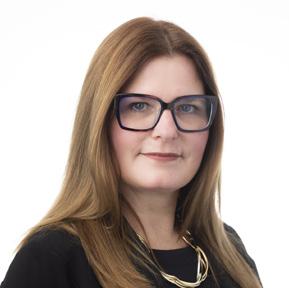
NICOLE ZWIERS
College of Chiropodists of Ontario Registrar and CEO
Nicole Zwiers is the Registrar and CEO of the College of Chiropodists of Ontario. Nicole is a lawyer and has been a licensee of the Law Society of Ontario for over 20 years. Nicole graduated from Queen’s University Law School with an LL.B in 1998 and, more recently, completed her LL.M (Masters in Law) at Osgoode Law School with a focus on the modernization of professional health regulation. Prior to joining the College, Nicole practiced law as a civil litigator at a national, full-service law firm appearing at all levels of court as well as arbitration and mediation. Nicole brings over a decade of experience as a faculty member and faculty leadership in post-secondary education with expertise in educating students enrolled in professionally accredited programs. Nicole has worked with other health regulators as well as a non-health regulator in professional regulation, and accredited post-secondary education for paralegals. Nicole was appointed and re-appointed for several terms as an Adjudicator with a Federal tribunal adjudicating medical appeals to determine eligibility for the Canada Pension Plan. Finally, Nicole volunteered as a board member on the Lakeridge Hospital Board, a multi-site hospital serving the Durham Region, for two consecutive terms.

BRITTANY TARTAGLIA
Ontario Professional Foresters Association
Assistant Registration Manager
Brittany Tartaglia (Tar-tah-lya) has been working as Assistant Registration Manager with the Ontario Professional Foresters Association since December 2023. Brittany is primarily responsible for assisting new members of the OPFA with the Registration Process and walking them through the steps required to become a Registered Professional Forester in Ontario.
Prior to working for the OPFA, Brittany worked as a Registered Veterinary Technician. Working as a Registered Veterinary Technician, Brittany already had an understanding of what it meant to work in a regulated profession and what that entails. Forestry is an industry she has always been interested in and she enjoys spending time outdoors enjoying nature, hiking, and birding.
KEYNOTE SPEAKER

DR. CHIKA STACY ORIUWA
Physician, Expert in Human Connection, Authentic Leadership, and Organizational Wellness
An accomplished physician, nationally ranked spoken word poet, and thought leader, Dr. Chika Stacy Oriuwa is a multi-faceted powerhouse whose journey exemplifies authentic leadership in every aspect. Through powerful storytelling and compelling narrative, she draws from her diverse experiences — across sectors, stages, and disciplines — to share meaningful and actionable insights on leadership, connection, and wellness, and how to unlock our true potential for transformative results in our organizations, communities, and lives.
Oriuwa’s career is a testament to her insatiable curiosity about the human experience and the profound connections that define it. She is currently a resident doctor in psychiatry at the University of Toronto where she earned her medical degree and became the first Black woman named sole valedictorian of the department. Oriuwa has since become a vocal advocate for improving disparities in Black health and confronting institutional discrimination, spearheading change initiatives in healthcare and beyond.
In addition to her medical degree, Oriuwa has a master’s degree in Health Systems Leadership and Innovation from the University of Toronto. She’s also served on multiple boards informing their efforts in advancing equity, leading authentically, and prioritizing workplace wellness, and is the author of Unlike the Rest, her memoir of becoming, belonging, and being seen on her journey as a medical trailblazer and leader.
Oriuwa has been named one of TIME magazine’s “2021 Next Generational Leaders” and one of Maclean’s Power 50. She has also been named one of Best Health Magazine’s “Women of the Year” and been featured in several major media outlets, including CBC’s The National, CTV News, CP24, Toronto Star, and TODAY, amongst others. In 2021, Oriuwa was honoured in Mattel’s #ThankYouHeroes campaign with a one-of-akind Barbie doll made in her image to commemorate her contributions as a frontline healthcare worker.
CONCURRENT SESSION #11
Enhancing Board/Council Member Competencies: An Integrated Approach to Effective Knowledge Transfer

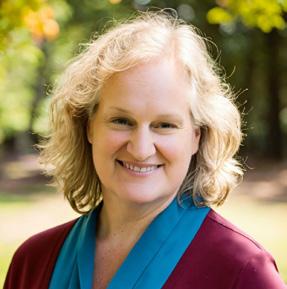
DEBORAH ADAMS
College of Registered Psychotherapists of Ontario, Registrar/CEO
See Pre-Conference Workshop: Master Class I on page 43 for bio.
CHRISTY PETTIT
Pollinate Networks Inc.
CEO and co-founder
Christy Pettit is the CEO and co-founder of Pollinate Networks Inc., a company established in 2008. As an experienced organizational development (OD) consultant, Christy specializes in change management, transformation, and performance measurement, helping organizations navigate complex transitions and improve their operations. Since 1996, she has advised numerous boards, bringing her extensive expertise to guide them through strategic decisions, growth, and challenges. Known for her ability to foster meaningful connections and provide actionable insights, Christy’s work at Pollinate Networks is driven by her passion for mentorship and collaboration, leveraging their proprietary Cross-Pollinate AI™ matching algorithm to enhance knowledge transfer and effective knowledge transfer and decision making.

AMY FOURNIER
College of Registered Psychotherapists of Ontario, Governance Manager
Amy Fournier is an emerging Governance Manager with a growing foundation in corporate governance, compliance, and risk oversight. She brings a proactive and detail-oriented approach to supporting governance frameworks, policy development, and system partner coordination. Amy is passionate about fostering transparency and accountability within organizations and is committed to continuous learning and professional growth in the governance space.
Is Professional Regulation a Racket?
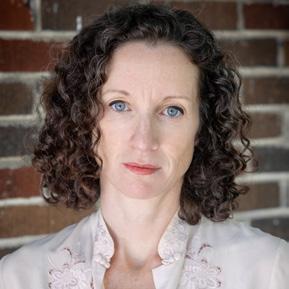
PROFESSOR REBECCA HAW ALLENSWORTH
Vanderbilt University Law School
Associate Dean for Research and David Daniels Allen Distinguished Chair of Law
Professor Rebecca Haw Allensworth is the Associate Dean for Research and David Daniels Allen Distinguished Chair of Law at Vanderbilt University Law School, in Nashville Tennessee. Professor Allensworth studies antitrust and professional licensing. Her work on antitrust focuses on how to adapt competition policy to address competition problems posed by tech platforms and her research on professional licensing explores how lawmakers should balance the need for expertise in regulating the professions with the problems that can arise from self-regulation. She is the author of The Licensing Racket: How We Decide Who Is Allowed to Work and Why It Goes Wrong? (Harvard University Press, February 2025), a deep dive into the pathologies of professional licensing in America. Her article about medical licensing boards and unethical prescribers, “Licensed to Pill,” appeared in The New York Review of Books in July 2020. Her work has been cited by the U.S. Supreme Court and has received the thirteenth annual Jerry S. Cohen Memorial Fund Writing Award for groundbreaking antitrust scholarship. Professor Allensworth earned her undergraduate degree from Yale and an M.Phil. from Cambridge University before earning her J.D. at Harvard Law School, where she served as articles editor of the Harvard Law Review. She served as law clerk to Judge Richard A. Posner of the U.S. Court of Appeals for the Seventh Circuit and then as a Climenko Fellow at Harvard Law School before coming to Vanderbilt. She held the Tarkington Chair of Teaching Excellence before her appointment to a David Daniels Allen Chair in Law in 2022. She assumed the role of Associate Dean for Research in January 2023.

ERICA RICHLER
Steinecke Maciura LeBlanc
Co-Managing Partner
Erica Richler is Co-Managing Partner at Steinecke Maciura LeBlanc, a law firm in Toronto, Ontario, that is dedicated to serving regulators of professions. Erica acts as general counsel, prosecutes discipline cases, and provides independent legal advice to hearing and appeal committees. Erica is a frequent contributor to the firm’s Grey Areas newsletter and Regulation Pro blog. She wrote a chapter on sexual abuse in Prosecuting and Defending Professional Regulation Cases, and she is a co-author of
Richard Steinecke’s A Complete Guide to the Regulated Health Professions Act. Erica was recently an adjunct professor at the University of Toronto’s Faculty of Law, where she co-taught professional responsibility and legal ethics.
CONCURRENT SESSION #13
Measuring What Matters: Building Effective Regulatory Performance Frameworks

THOMAS CUSTERS
Ontario College of Pharmacists Director of Corporate Services
Thomas Custers is the Director of Corporate Services at the Ontario College of Pharmacists. With over 10 years of leadership experience, he has successfully led teams within Ontario’s health system and the not-for-profit sector, focusing on measuring the performance of health systems, hospitals, and regulators, as well as the impact of research and leading system and process improvement initiatives. During his tenure at the Ontario Ministry of Health, Thomas spearheaded the College Performance Measurement Framework initiative in close partnership with Ontario’s 26 health regulatory colleges. Thomas holds a Master of Science degree in Health Policy and Management from Erasmus University Rotterdam (The Netherlands). Before coming to Canada, Thomas was a health service researcher at the University of Amsterdam.


DANIEL FAULKNER
Royal College of Dental Surgeons of Ontario, Registrar & CEO
See Lunch N’ Learn #2 on page 54 for bio.
LYNSAY KURJATA
College of Licensed Practical Nurses of Saskatchewan, Executive Director
Lynsay Kurjata is the Executive Director of the College of Licensed Practical Nurses of Saskatchewan (CLPNS). Lynsay started her career in professional regulation in 2009 and assumed the role of Executive Director in 2013. Throughout her tenure, Lynsay has sought ways for the organization to achieve regulatory excellence and led the organization’s voluntary departure from a long-standing dual mandate and the development of regulatory performance standards. Lynsay has completed a Master of Laws in the Administrative Law stream through
Osgoode Hall Law School at York University and a Certificate in Tribunal Administrative Justice through the Foundation of Administrative Justice. In addition to regulation, Lynsay is passionate about leadership and participated in a mentorship program with world-famous author and speaker John Maxwell.

CHRIS HACKER
British Columbia College of Oral Health Professionals
Registrar and CEO
Dr. Chris Hacker is the Registrar and CEO of the BC College of Oral Health Professionals (BCCOHP) — the regulatory body responsible for overseeing BC’s certified dental assistants, dental therapists, dental hygienists, dental technicians, denturists and dentists. With over three decades as a practising dentist, Chris transitioned to regulation in 2011, where he took on a series of progressively senior roles until his appointment to lead the oral health amalgamation project in 2021. His outstanding regulatory leadership and capacity for transformative change were instrumental in bringing the province’s oral health colleges together to form BCCOHP in 2022. Appointed to the permanent leadership position for the newly amalgamated College in December 2022, he is proud to support an amazing staff team in their regulatory oversight role of the almost 16,000 oral health professionals - and in the next phases of their journey to modernize health professions regulation, ensuring safe care for the public and patients who call BC home.
CONCURRENT SESSION #14
Frequent Flyers, Bad Seeds, and Irredeemables: What Can Regulators Do About Bad Judgment?

ZIMRA YETNIKOFF
College of Psychologists and Behaviour
Analysts of Ontario
Deputy Registrar/Director, Investigations & Hearings
Zimra is Deputy Registrar and Director of Investigations & Hearings at the College of Psychologists and Behaviour Analysts of Ontario (CPBAO). She is involved in policy development and the College’s strategic direction, and oversees complaint, discipline, and fitness to practice matters. Prior to becoming Director she was a Case Manager at the College, and was responsible for investigating allegations of professional misconduct. Before joining the College in 2009, Zimra worked as legal counsel with the Special Investigations Unit at the Ministry of the Attorney General of Ontario.
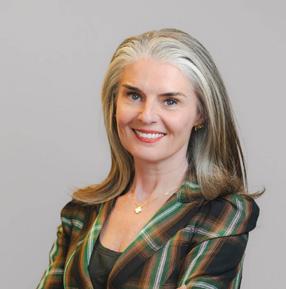
REBECCA DURCAN
Steinecke Maciura LeBlanc, Co-Managing Partner
Rebecca Durcan is the Co-Managing Partner at Steinecke Maciura LeBlanc.
Rebecca is an elected Bencher of the Law Society of Ontario. She attended Queen’s University to study history and obtained her law degree from the University of Windsor in 2000. In 2006, Rebecca completed her Masters in Health Law from Osgoode Hall. In 2016 Rebecca obtained her Certificate in Risk Management from the University of Toronto.
Rebecca acts as general counsel, prosecution counsel and independent legal counsel to several Ontario regulators. Her various roles, in addition to being an adjudicator at the Law Society Tribunal, allows Rebecca to bring an informed and nuanced perspective to regulatory issues.
In 2016, Rebecca co-authored the Annotated Statutory Powers Procedure Act with her partner Julie Maciura. In 2019, Rebecca also co-authored the text Prosecuting and Defending Professional Regulation Cases. Rebecca regularly speaks about regulatory issues at the Canadian Network of Agencies for Regulation (CNAR), Council on Licensure, Enforcement and Regulation (CLEAR), Ontario Bar Association, Advocates Society, and Continuing Legal Education of British Columbia. Rebecca is an Adjunct Professor at the University of Toronto Faculty of Law.
When not working, Rebecca enjoys running, cooking and spending time with her sons, Harry, Jude and Teddy.
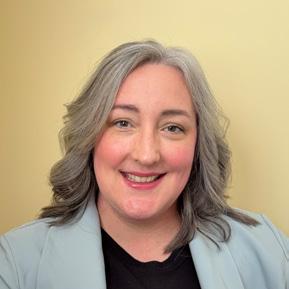
ALISON BIRD
Nova Scotia College of Nurses Deputy General Counsel
As legal counsel for NSCN, Alison has the privilege of engaging with all aspects of NSCN’s regulatory work. With nearly 15 years experience in the field of self-regulation, Alison has worked in a variety of positions including as an advisor to a broad range of regulators in private legal practice. Alison strives to look beyond traditional regulatory practices to develop more effective ways to meet NSCN’s commitment to promote the public interest in a safe, competent, compassionate and ethical nursing profession.
CONCURRENT SESSION #15
Working Towards Bridging Reconciliation & Regulation to Support Advancing Indigenous Professionals
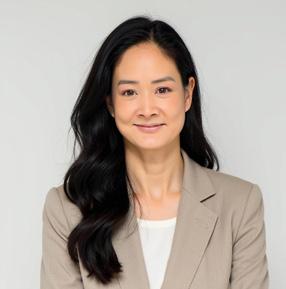
NANCY TRAN
College of Midwives of Ontario
Director of Registration
Nancy Tran is the Director of Registration at the College of Midwives of Ontario, where she provides strategic leadership across all aspects of the department’s work including overseeing the full registration lifecycle for midwives. Her recent initiatives have focused on expanding pathways and reducing barriers to entry, as well as developing a competency-based assessment framework for the profession.
Previously, Nancy provided policy and legal advice on teacher certification at the Ontario College of Teachers, with a focus on internationally educated teachers. An internationally trained lawyer, she was called to the bar in 2015, as part of the inaugural cohort to complete Ontario’s alternative licensing process. She has also managed federally funded projects on labour mobility and international credential recognition with the Council of Ministers of Education.
Nancy currently serves as an adjudicative member on the Discipline and Admission & Registration committees of CPA Ontario.
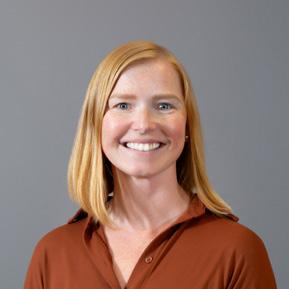
SARAH CHOUDHURY
Ontario College of Social Workers and Social Service Workers
Director, Strategic Communications and Government Affairs
Sarah Choudhury (she/her) is a bilingual communications leader with 15 years of progressive experience in the regulatory sector. As the Director of Strategic Communications and Government Affairs at the Ontario College of Social Workers and Social Service Workers (OCSWSSW), Sarah provides strategic leadership to the Communications team and the organization as a whole, ensuring alignment with the College’s public protection mandate. Her role encompasses overseeing key functions, including content management, public awareness initiatives, issues management and government affairs, while driving innovative approaches to enhance engagement and overall communication.
Throughout her career, Sarah has held pivotal communications roles at several provincial regulatory bodies, where she has honed her expertise in developing and executing strategies that build trust, foster collaboration, and support organizational priorities.
In addition to her professional role, Sarah currently serves on the Discipline and Fitness to Practise Committee Panel at the Ontario College of Teachers.
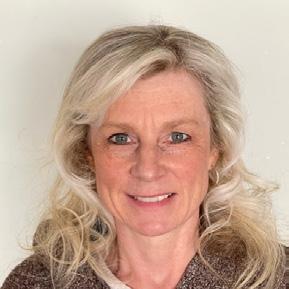
SUE ECKENSWILLER
Indigenous Advanced Education and Skills Council
Director Regulatory and Strategic Partnerships
Sue Eckenswiller is a the Director Regulatory and Strategic Partnerships at the Indigenous Advanced Education and Skills Council. Sue has worked for several years in the quality assurance and regulatory sector in addition to teaching in the post-secondary sector for 17 years. Sue holds a Doctorate in Post-Secondary Education Leadership and her research specialized in Education Quality Assurance and Regulatory Bodies.
PLENARY SESSION #3
Regulating with Respect: A Regulator’s Response to Transgender Inclusion

JOHN MCINTYRE
McIntyre Szabo Lawyer and Co-founder
John McIntyre (he/him) is a lawyer and co-founder at McIntyre Szabo PC, a boutique health law firm in Toronto. John routinely represents healthcare institutions, regulators, regulated health providers and patients navigating the healthcare system. In particular, John spends a large part of his practice on pro bono work at the intersection of 2SLGBTQ+ rights and healthcare, including in fighting for greater access to gender affirming care. He founded the Gender Affirming Care Legal Support Clinic at the 519 in Toronto. He has his Masters of Public Health from Johns Hopkins University (with a certificate in LGBTQ Public Health) and is an adjunct professor at Queen’s University Faculty of Law. John has been recognized as a leading lawyer by Best Lawyers in Canada, Lexpert, Benchmark Litigation and Chambers. He has been an adjunct professor for Public Health Law at Queen’s University Faculty of Law the past two years.

CAROLYN SILVER College of Physicians and Surgeons of Ontario, Chief Legal Officer
Carolyn Silver (she/her) is Chief Legal Officer at the College of Physicians and Surgeons of Ontario, where she prosecutes discipline cases, represents the College on appeals and applications for judicial review, advises College Committees and its Council, and is a member of the College’s Executive Team. She acted as counsel for the College at the Goudge Inquiry into Pediatric Forensic Pathology in Ontario and served as counsel to the Honorable Mr. Sydney L. Robins on the Robins Review. Prior to her position at the College, Ms Silver was a civil litigator with Goodmans LLP. She attended McGill University for her undergraduate studies, where she was a Faculty Scholar, and received her LL.B. from Osgoode Hall Law School (1994). Ms Silver spent her articling year as a clerk to the judges of the Court of Appeal for Ontario. She was called to the Ontario Bar in 1996. An accomplished student, she was the recipient of numerous awards during her law studies at Osgoode including the Ivan Cleveland Rand Scholarship, the Clifton Lane Memorial Prize, the Cassels Brock & Blackwell Constitutional Law Annual Award, the Fogler Rubinoff Prize in Property Law and the Part Time LL.M. Program Award in Constitutional Law. Ms. Silver has taught for many years in the Intensive Trial Advocacy Workshop (“ITAW”) and is currently an instructor in the Trial Advocacy course at Osgoode Hall Law School, where she is an adjunct professor. She is a member of the Law Society of Ontario, the Canadian Bar Association, and the Advocates Society.

TESSA RINGER
Myrna Daniels Seniors Emergency Medicine Centre, Medical Director
Tessa Ringer (she/her) is an emergency physician and Medical Director of the Myrna Daniels Seniors Emergency Medicine Centre (SEMC) at University Health Network in Toronto, Canada. From its inception, she has led the world’s first comprehensive program in geriatric emergency medicine, shaping its design, strategic vision, and clinical program. Supported by a $52 million gift from the John & Myrna Daniels Foundation, the SEMC embraces world-leading research, education, and clinical care, as well as the construction of Canada’s first purpose-built geriatric emergency department based at Toronto Western Hospital. She strives to centre patient care in every design decision and is proud to helm one of only a few clinician-led health infrastructure projects. She is prouder still to be one of Canada’s only out transgender healthcare leaders, and is a fierce advocate for the inclusion and visibility of gender diverse people at every level of health care. Previously,
she was an attorney and a management consultant with a focus on health and government. She holds a Juris Doctor from Yale Law School and a Master of Philosophy from the University of Oxford, where she was a Rhodes Scholar and member of Balliol College.
LUNCH N’ LEARN #3
Shifting the Paradigm: Equity-informed Approaches to Modernizing Entry to Practice for Internationally Trained
Applicants
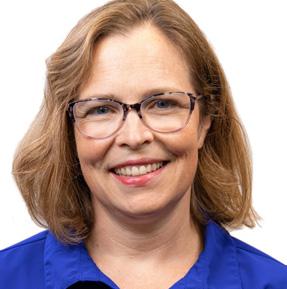
STEPHANIE PRICE
Federation of Medical Regulatory Authorities of Canada (FMRAC), Executive Director
Stephanie Price, P.Eng., FEC, CAE, is the Executive Director of the Federation of Medical Regulatory Authorities of Canada (FMRAC) – the organization that brings Canada’s physician regulators together to collaborate and improve medical regulation. She assumed in February of 2024. Prior to her work at FMRAC, she worked for Engineers Canada for 15 years, which is the federation for Canada’s engineering regulators that also seeks to support regulators, bringing them together to collaborate and improve their work. She held several roles there including interim CEO, Executive Vice President, Regulatory Affairs and various management roles. Stephanie also served on CNAR’s Board of Directors from March 2019 to June 2024, including as Chair from April 2021 to June 2023, making her, officially, someone who is really, really interested in bringing regulators together to learn and grow. Before she was introduced to professional regulation, Stephanie spent 14 years working as an engineer in the cement industry. During this period, her work included plant design, project management and construction of cement plants, as well as technical support and training for plant operations. Stephanie is a graduate of Queen’s University with a bachelor of applied science in mechanical engineering. She is a registered engineer with Professional Engineers Ontario and is also a Certified Association Executive.

CAROLINE EWEN
World Education Services (WES) Manager, Policy & Advocacy
Caroline Ewen is Manager, Policy & Advocacy with World Education Services (WES) Canada. She holds a Master’s degree from the University of Toronto Munk School of Global Affairs and Public Policy. She previously worked at the Canadian International School in Amman, Jordan, and The Immigrant Educational Society (TIES) in Calgary, Alberta. In her current role she has
been engaged in collaborative research and policy initiatives in the area of licensure for Internationally Educated Health Professionals. She has co-authored a number of policy briefs on the issue, including: “Addressing the Underutilization of Internationally Educated Health Professionals: What the Data Does and Doesn’t Tell Us”.
CONCURRENT SESSION #16
The Transition from Self-Regulation to Government-Based Regulation
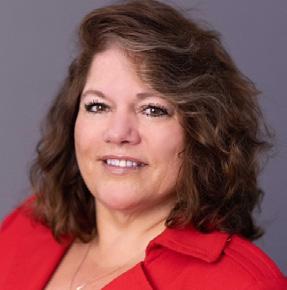
BOBBI TAILLEFER
Government of Manitoba, Commissioner of Teacher Professional Conduct
Bobbi Taillefer is the inaugural Commissioner for the Government of Manitoba for teacher professional conduct. She oversees the new teacher professional conduct review process, including receiving and investigating reports and complaints, facilitating consent resolution agreements and referring cases to hearing panels for adjudication. Before this role, Taillefer was the executive director of the Saskatchewan Teachers’ Federation. Leading a complex organization with five distinct business units, Taillefer and her senior leadership team had responsibilities and oversight of a $7 billion teachers’ pension plan, self-insured teacher benefits plans, a professional development unit, a professional resource library, and bargaining and labour relations. Taillefer started her career as a teacher and principal at the elementary and high school levels. She then worked for the Manitoba Teachers’ Society for 21 years, starting as a staff officer in labour relations, then becoming deputy general secretary, and finally serving as general secretary.
In 2018, Taillefer assumed the role of deputy general secretary with the Elementary Teachers’ Federation of Ontario, Canada’s largest teacher organization. She has experience in labour relations, bargaining, principal representation, French language services, Indigenous education and professional issues. Taillefer was the former president of the Winnipeg Humane Society and part of the capital campaign to raise $14 million for a state-of-the-art LEADS facility. Taillefer was a director on the Canadian Teachers’ Federation Board and the Forks North Portage Development Corp Board and Taking Charge! and sits as a nominator for the Leonard Foundation Board. Taillefer holds a law and economics diploma from Aix-Marseilles University, a bachelor of arts degree in political science, a master of education degree in educational administration from the University of Manitoba, a human resources certificate from Cornell University, and certificates in bargaining from Queens University and Harvard as well as in governance training from the Internation Foundation of Employee Benefit Plans (FTMS®, ATMSTM and MTMS).
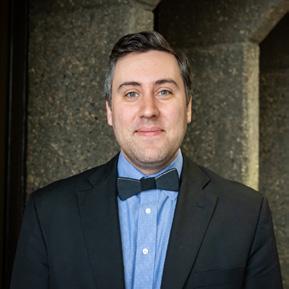
TIM BREEN
The Manitoba Teachers’ Society, Staff Officer, Teacher Welfare Department
Tim Breen is a Staff Officer in the Teacher Welfare Department at the Manitoba Teachers’ Society, where he works in the area of personnel matters, regulatory support, and collective bargaining. With a Master of Education and ongoing doctoral studies at the University of Manitoba, Tim’s research explores how school principals interpret and navigate their legal responsibilities. Tim plays a role in discussions around teacher regulation in Manitoba where he is a member of the Society’s working group on the new regulatory framework for teacher conduct and competence.
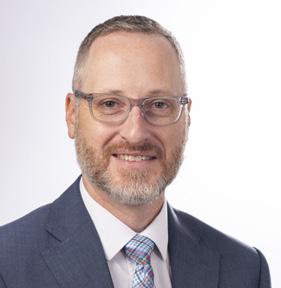
TIM JEFFARES
Alberta Teachers Association, Associate Coordinator, Regulatory Affairs
Tim Jeffares is a passionate believer in education for the common good. His experience has included being a public school classroom teacher (grades 2-12), a school-based administrator (elementary, junior high and high school), a classroom teacher in China, a board member for a private school, the Director of Investigations and Governance at Alberta Education and, most recently, the Associate Coordinator, Regulatory Affairs for the Alberta Teachers’ Association. His current academic interests include studying professional regulation in both Alberta and pan-Canadian contexts. Tim is married to Larisa, a counsellor, and together they are the parents of two children in the public school system: one in grade 7 and the other in grade 11.

VITA WENSEL
Lawyer, Field Law
See Pre-Conference Workshop: Interactive Discipline Hearing on page 47 for bio.
CONCURRENT SESSION #17
Regulatory Agility: Addressing Catastrophic Events through Jurisdictional Harmonization

UGIE IFESI
Insurance Council of British Columbia, Director, Licensing
Ugie Ifesi, Director, Licensing at the Insurance Council of BC. He oversees the Insurance Council’s licensing and examination regulatory functions, providing day-to-day leadership in all operational aspects of individual and agency/firm licensing, examination functions, competency standard development, accreditation of pre-licensure programs, licensing changes and other assessment frameworks. The Insurance Council regulates over 50,000 insurance brokers/agents and adjusters working with consumers in communities around British Columbia. Ugie has extensive leadership experience in profession health and financial regulations, including regulatory policies, compliance, education, accreditation, examination functions, licensing systems, and frameworks, and he has worked with stakeholders in industry, training programs, and government. Ugie has a Bachelor of Health Sciences in Nuclear Medicine from the University of New Brunswick, a Master of Health Science, Public Health Sciences from the University of Toronto, and a Master of Business Administration from the University of Alberta. Before joining the Insurance Council, Ugie worked in regulatory roles in Ontario and Alberta.
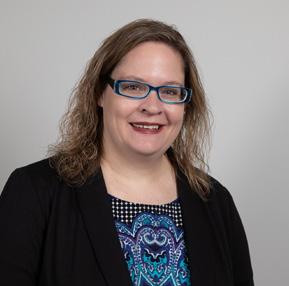
MELANIE THERRIEN
Alberta Insurance Council, Head of Licensing
Melanie Therrien is the Head of Licensing with the Alberta Insurance Council (AIC). She has over 17 years of leadership experience in profession regulatory environments working in both non-health and health professions. Melanie has spent her time in regulation applying legislation to operational needs with her area of expertise focused on licensing and continuing education. She has developed many policies and procedures with a focus on streamlining to meet regulatory requirements while maintaining fairness. Her areas of interest include supporting labour mobility applicants and internationally educated professionals through the licensure process. Melanie is currently a member of the Education Program Advisory Committee and Lead for the Community of Practice on Entry to Practice and Registration for the Canadian Network of Agency Regulators (CNAR), and holds a Master’s in Public Administration from the University of Victoria.
CONCURRENT SESSION #18
Questioning competence: Is AI Changing the Paradigm for Item Development?

GREG SADESKY
For Good Measure Co-Founder
Greg Sadesky, PhD. Greg has served the testing and applied research communities for more than 20 years. He specializes in creating psychometric solutions for the Certification & Licensure sector in Canada. Before co-founding For Good Measure Inc. in 2024, Greg was most recently the chief psychometric consultant with Spire Psychometrics, then EVP Psychometrics and Chief Scientific Officer for Yardstick Assessment Strategies in which he served for almost 10 years. During that time, Yardstick’s Psychometric department grew from one employee to the largest private sector testing services provider in Canada. During his career, Greg has designed and implemented testing solutions across a broad set of professions, contexts, and applications. He has previously worked with clients representing paramedicine, nursing, engineering, and law to produce deliverables ranging from computer-based multiple-choice examinations to OSCEs, examination program audits to gamified jurisprudence assessments. Greg’s current pre-occupations include cocreating a sustainable testing company to serve the Canadian market long term and designing and building an AI-based assessment processes and products that creates new opportunities and better information for both regulatory clients and aspiring professionals.

SEAN FITZGERALD
College of Physiotherapists of Alberta Practice Advisor
Sean FitzGerald PT: Sean FitzGerald is the current Practice Advisor at the College of Physiotherapists of Alberta. As practice advisor he answers regulatory questions posed by both registrants and members of the public. He also produces a wide variety of resources to educate and advise physiotherapists and the public regarding the roles and responsibilities physiotherapists have as regulated professionals. Sean graduated from the University of Alberta’s Physical Therapy program and has been a physiotherapist for 16 years. Aside from his current employment as practice advisor he continues to work out of his own practice in his home community of Jasper. Sean has volunteered in various professional roles with the University of Alberta and served on the College of Physiotherapy of Alberta’s council from 2013 –2016 as well as president from 2014 – 2016.

NATASHA PARFYONOVA, PH.D
For Good Measure, Senior Psychometrician
As a Senior Psychometrician, Natasha provides a wide range of psychometric services to credentialing organizations in Canada. Over the course of her career, Natasha spearheaded the development and revalidation of professional competency frameworks and job task lists for dozens of occupations in Canada and the U.S. As part of the process, she facilitated numerous focus groups with job experts and designed and administered large-scale competency validation and job analysis surveys. In the past, Natasha managed psychometric accounts for many large credentialing programs and provided consulting services for all aspects of exam development and validation, from blueprint design to standard setting. In addition, Natasha oversaw data analyses, exam scoring, and reporting for large examination programs. She conducted psychometric audits of certification programs and prepared documentation for the NCCA accreditation purposes. Natasha worked extensively with representatives of numerous professions, including dentists, pharmacists, dental hygienists, registered nurses, financial planners, engineering technologists, phlebotomists, and acupuncturists.
Prior to her career in psychometrics, Natasha contributed to the improvement of personnel selection and leadership development systems in organizations as an HR consultant and conducted academic research on the topics of work motivation and organizational commitment. Originally from Ukraine, Natasha obtained her Ph.D. in Industrial-Organizational Psychology from Western. She was a recipient of the prestigious Fulbright scholarship from the U.S. Department of State that enabled her to begin her graduate studies in psychology in the U.S. Natasha co-authored several articles published in peer-reviewed journals in Human Resource Management. In her spare time, Natasha likes to play with her daughter, dance Zumba, and do somatic coaching.
CONCURRENT SESSION #19
Tech-Driven Truth: AI & Digital Forensics in the Regulatory World

DEAN BENARD Benard + Associates CEO
See Pre-Conference Workshop: Unlocking the Future: Digital Forensics & AI in Professional Regulatory Investigations on page 42 for bio.
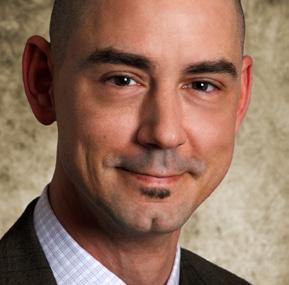
JOHN TZOUNTZOURIS
College of Medical Laboratory
Technologists of Ontario
Registrar & CEO
John is a registered medical laboratory technologist who spent the first decade of his career working in human molecular genetic testing. He has over 25 years of experience in medical laboratory technology, health services management, education and governance in the public sector. John holds undergraduate degrees in Biochemistry and Health Administration, a Masters in Public Policy and Administration and a professional designation as a Governance Systems Professional.
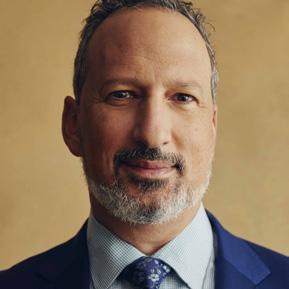
LONNY ROSEN
Rosen Sunshine LLP Founding Partner
Lonny Rosen is a founding partner of the Toronto, Ontario health and regulatory law firm Rosen Sunshine LLP. He has been certified by the Law Society of Ontario as a Specialist in Health Law. Lonny advises on a wide variety of health and regulatory law issues. His clients include health care professionals, regulators, administrators of health care facilities, professional associations, and individuals. He represents clients in a range of civil and administrative proceedings, including in complaint and discipline matters, investigations, audits and peer reviews, hospital privileges disputes and in hearings before various health tribunals. He also advises professional regulators and serves as independent legal counsel to their Discipline Committees. Lonny was a Senior Lawyer Member of the Consent and Capacity Board. He has served as Chair of both the OBA and CBA Health Law Sections and was a Director of The Advocates’ Society. He is a Director of the MedicoLegal Society of Toronto. He frequently writes and speaks on
health and administrative law and is an Adjunct Professor of Osgoode Hall Law School, teaching Health Law. In June 2016, Lonny was named the inaugural recipient of the OBA Susan Hilary Davidson Memorial Award for Excellence in Health Law. Lonny is included in numerous directories including the Canadian Legal Lexpert Directory, “Best Lawyers in Canada”, the Globe & Mail’s Best Lawyers, Lexology, Chambers Canada, and Post City.
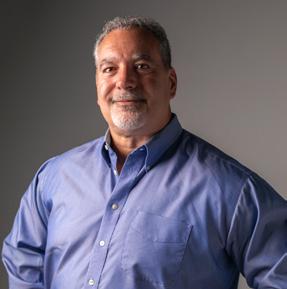
EUGENE SILVA
TraceX Digital Forensics Chief Technology Officer
See Pre-Conference Workshop: Unlocking the Future: Digital Forensics & AI in Professional Regulatory Investigations on page 42 for bio.
CONCURRENT SESSION #20
Tales from the Trenches: The Dos and Don’ts of Trauma-Informed Sexual Misconduct Investigations & Prosecutions

LISA FEINBERG
Glick Feinberg Stone LLP, Partner
Lisa Feinberg is a partner with Glick Feinberg Stone LLP, practising professional regulation and workplace law. She acts as an advisor and advocate for regulators in both Ontario and British Columbia, drawing upon her wide-ranging experiences as prosecutor, defence counsel, and adjudicator. She regularly appears before administrative tribunals and the courts on professional discipline (including sexual abuse and misconduct matters), human rights, and employment matters. Prior to joining Glick Feinberg Stone LLP, Lisa worked for several years as a criminal prosecutor in Northern British Columbia, where she primarily prosecuted serious sexual offences. Lisa also served as an elected Bencher of the Law Society of British Columbia from 2020-2021, where she sat on adjudicative and advisory committees. Lisa holds a joint Juris Doctor and Masters in International Affairs degree from the University of Ottawa and Carleton University (2011). Lisa is called to the Bar in both Ontario (2012) and British Columbia (2015).
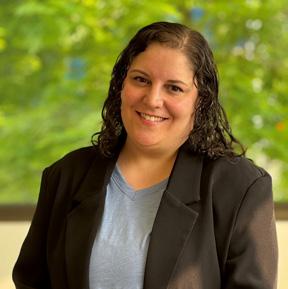
AYLI KLEIN
Law Society of Manitoba, Legal Counsel
Ayli Klein was called to the Bar of Manitoba in 2012, and Nunavut in 2024. She serves as Legal Counsel to the Law Society of Manitoba and also acts for the Law Society of Nunavut on prosecutions of professional misconduct (discipline) charges. Before making the leap to regulatory law in 2020, Ayli practised criminal law, mainly as a Crown Attorney.
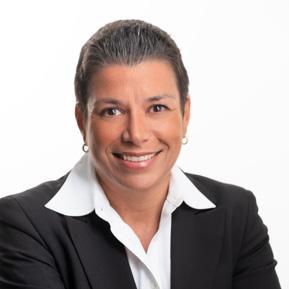
CAROLYN GULABSINGH
College of Physicians and Surgeons of British Columbia, In-House Counsel
Carolyn Gulabsingh began working as in-house counsel with the College of Physicians and Surgeons of British Columbia in 2018, and oversees investigations of complaints of serious and sexual misconduct matters. Prior to joining the College, Carolyn gained broad experience in professional regulation, having worked in the field since 2006, after working as litigation counsel for the first decade after her call to the British Columbia bar in 1996. Carolyn has served as in-house legal counsel for various organizations of self-regulating professions. Her experience includes work in licensure and credentials, investigations, and discipline. Employed by the Law Society of British Columbia for seven years as Discipline Counsel, and prior to that as Legal Counsel to the Real Estate Council of British Columbia, Carolyn has considerable experience conducting discipline hearings, credentials hearings, applications for review and complex complaint investigations on behalf of regulators. With her perspective as a litigator and an investigator, Carolyn is able to provide valuable insight and guidance to the College regarding its investigations, and inquiry committee processes.

JOANNA BIRENBAUM
Birenbaum Law, Litigator
Joanna Birenbaum is a litigator with specialized expertise in sexual violence, whose diverse practice includes professional regulation, plaintiff-side civil sexual assault, constitutional test-case litigation, workplace investigations, and defamation. Joanna prosecutes for a regulated health college in Ontario and advises institutions and employers on sexual violence policies and procedures. Joanna has appeared at all levels of court, including the Supreme Court of Canada on numerous occasions, in cases involving sexual consent, equality rights, complainants’ privacy rights, and anti-
slapp laws (strategic lawsuits against public participation) law. In addition, Joanna was counsel for the Canadian Coalition for Gun Control at the Mass Casualty Commission, Nova Scotia (2022/2023).
In recognition of her substantial contribution to the legal community, the Women’s Law Association of Ontario awarded Joanna the President’s Award in 2021. Joanna was the 2014-2015 McMurtry Fellow at Osgoode Hall Law School and adjunct faculty at Osgoode (2014-2017). In addition to her private practice, Joanna is the President of Watershed Legal Projects, where she has chaired five independent expert panel reviews of sexual violence policies and procedures for universities in Ontario, Quebec, Nova Scotia and New Brunswick. Joanna has published in the area of sexual violence including the book, co-authored with Professor Karen Busby, “Achieving Fairness: A Guide to Campus Sexual Violence Complaints” published by Thomson Reuters (March 2020).

YUFEI (FIONA) WANG
College of Massage Therapists of Ontario Prosecutions Manager
Yufei (Fiona) Wang is the Prosecutions Manager at the College of Massage Therapists of Ontario where she oversees all prosecution related activities at the College. Fiona has more than 10 years of experience in the compliance and regulatory field. She has worked at several professional regulators where she has gained expertise in investigations, prosecutions, and adjudications. Fiona holds a LL.B, M.A., and LL.M..
PECHAKUCHA SERIES
PechaKucha #1: Five Years in the Hot Seat: Deep Thoughts from the Office of the Registrar
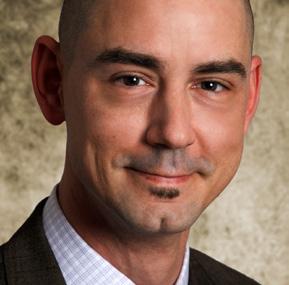
JOHN TZOUNTZOURIS
College of Medical Laboratory
Technologists of Ontario, Registrar and CEO
See Concurrent #19 on page 67 for bio.
PechaKucha #2: Advanced
Topics in Navigating Disclosure Obligations for Professional Discipline Proceedings
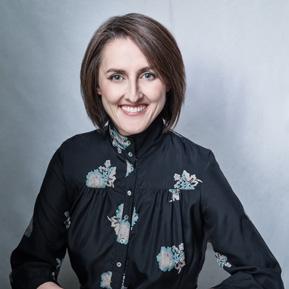
EWA KRAJEWSKA
Henein Hutchison Robitaille LLP, Partner
Ewa Krajewska is the Co-Chair of the Civil Litigation Practice Group and a partner at Henein Hutchison Robitaille LLP. She practices in civil litigation, public and administrative law, appellate advocacy, and estates disputes and investigations. As a skilled advocate with excellent judgment, Ewa knows how to handle sensitive and high stakes matters. She has appeared on leading cases at all levels of court including the Supreme Court of Canada, the Court of Appeal for Ontario, and the Federal Court. Ewa was a Partner at a national law firm where she represented both institutions and individuals in difficult and sensitive disputes and was the Co-Chair of the Appellate Advocacy Group. She also served as a law clerk to the Honourable Justice Rosalie Silberman Abella of the Supreme Court of Canada. Ewa is respected by her peers and her clients for her ability to resolve issues and get to the heart of a matter.
PechaKucha
#3: What if They’re All Lying to Us?

BETH DEAZELEY
College of Early Childhood Educators Registrar & CEO
Beth Deazeley, LL.B is the Registrar and Chief Executive Officer of the College of Early Childhood Educators of Ontario. Called to the bar of Ontario in 2002, the majority of her career has focused on governance and professional regulation. Her experience includes leadership roles and provision of professional advice to regulatory bodies at both the provincial and national level. Beth is a regular writer and speaker on governance trends and best practices, as well as regulatory matters. She obtained her Chartered Director designation from the Directors College (DeGroote School of Business) in 2013 and has experience as a board member in both regulatory and non-profit organizations.
PechaKucha #4: Purpose-Driven
Sanctions
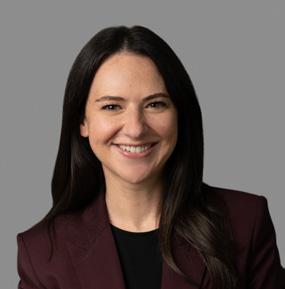
NATASHA DANSON SML, Partner
Natasha Danson is a partner at Steinecke Maciura LeBlanc. She advises and represents clients in all areas of professional regulation, with a focus on matters related to discipline and sexual abuse. Natasha regularly provides training to various statutory committees. She also advises regulators on employment and human resources matters and has a particular interest in human rights issues.
PechaKucha #5: Five
Years of Herding Cats (or, Managing Volunteers for a National Association)

RYAN MELSOM
Engineers Canada, Manager of Qualifications
Ryan Melsom is the Manager of Qualifications at Engineers Canada, and Secretary to the Canadian Engineering Qualifications Board. Working with leaders from across the engineering field in Canada, he has overseen the development and revision of numerous Engineers Canada guidelines and papers, which cover topics such as the national code of ethics, good character, academic assessment, Indigenous consultation and engagement, and risk management. He holds a PhD in literature from Queen’s University, and has more than 20 years of experience in communications and interest holder relations.
PechaKucha #6: HYPE 300: The Regulator’s Person-Centred Multi-Tool

ALEX
SAUL
SLG Legal Solutions, Partner
Alex is a highly skilled, strategic investigator whose expertise informs each step of her practice. She has over a decade of experience investigating allegations of serious professional misconduct, including sexual abuse, fraud and inappropriate billing, unauthorized practice, prescription drug diversion, and incompetence. She is committed to conducting person-centred and trauma-informed investigations that are thorough and fair, and to providing regulators with concise,
articulate reports that allow their decision-making panels to make reasonable, informed decisions.
Before founding SLG, Alex spent four years working as a regulatory investigations manager, in which role she ensured the quality and efficiency of her team members’ work and provided strategic oversight of their investigations while maintaining her own investigative case load. Previously, Alex spent five years as an in-house investigator for the College of Physicians and Surgeons of Ontario, where she acted as the lead investigator on multiple high-profile and high-risk cases.
Alex is a registered nurse with a background in mental health nursing and a focus on serving equity-deserving communities. She holds a Bachelor of Science in Nursing from Ontario Tech University, where she founded the campus’s Sexual Health Resource Centre and served as its director for four years. Alex also holds a Bachelor of Arts and Science in Global Development Studies (Honours) from Queens University, for which she spent a year studying at the Institute of African Studies in Legon, Ghana. Alex has also volunteered and worked as a development programmer and healthcare provider and educator in communities in Canada and in Southeast Asia, East Africa, West Africa, and Central America.
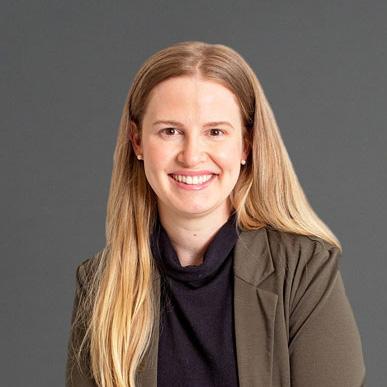
STEPHANIE GRENKE
Barker Hutchinson, Investigator
Stephanie Grenke is an experienced regulatory investigator who navigates sensitive subjects with empathy and helps people feel heard. Her commitments to active listening and a rigorous pursuit of facts result in thorough, balanced, and impartial investigations. Before joining Barker Hutchinson & Associates Ltd., Stephanie was a clinical investigator with the College of Physicians and Surgeons of Ontario, and she practised as a registered nurse in both urban and rural settings in Eastern Canada, Northern Canada, and the United States.
PechaKucha #7:
We want to hear from you! A Regulator’s Approach to Understanding its Impact

ASHLEY CARLSON
College of Licensed Practical, Nurses of Alberta, Director, Performance Measurement & Research
Ashley graduated from the University of Alberta with a Masters in Public Health, with a specialization in Health Policy and Management. She has worked in a variety of roles within health care including medical ethics, quality and patient safety, policy development, process improvement, strategic planning and project management. She is currently the Director of Performance Measurement and Research at the College of Licensed Practical Nurses of Alberta where she is responsible for implementing organizational and departmental performance measures, and pursuing research opportunities to advance knowledge relating to regulation and practical nurse practice.
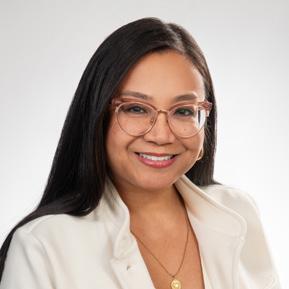
NYLA DE LOS SANTOS
College of Licensed Practical Nurses of Alberta, Research Lead & Performance Measurement Advisor
Nyla de Los Santos is the Research Lead & Performance Measurement Advisor at the College of Licensed Practical Nurses of Alberta (CLPNA). She completed her Master of Education in Educational Psychology at the University of Alberta with a specialization in learning, development, and assessment. In her role at the CLPNA, Nyla uses the PuMP® performance measurement methodology to support teams to develop meaningful measures that will help them reach their goals in alignment with the College’s regulatory mandate. Coming to health regulation with a background in communitybased research, Nyla supports research activities and facilitates collaborations that contribute to knowledge on safe nursing practice, focusing on the practical application of evidence.
PechaKucha #8: Accommodating ASL Interpretation for the
Massage Therapy MCQ Examination

VALERIE BROWNE
College of Massage Therapists of Ontario Director, Registration Services
Valerie Browne is the Director, Registration Services for the College of Massage Therapist of Ontario (CMTO). In this role, she leads the development and implementation of programs related to the administration of the Registration Regulation under the Massage Therapy Act, 1991, including providing oversight, direction and support to Ontario’s Registered Massage Therapist Certification Examinations. She is a member of CMTO’s Senior Management team, and provides policy support to CMTO’s Registration and Equity, Diversity and Inclusion committees. Prior joining CMTO, Valerie was the Director, Professional Standards and Registrar for the Human Resources Professionals Association, and Associate Registrar for the College of Optometrists of Ontario. She has also served on the Board of the Canadian Massage Therapy Council for Accreditation, and the Trillium Chapter of the Canadian Society of Association Executives. In addition to her more than 20 years of leadership experience with professional regulators in Ontario, Valerie has a B.A. in Communications from the University of Windsor and holds the Certified Association Executive (CAE) designation.
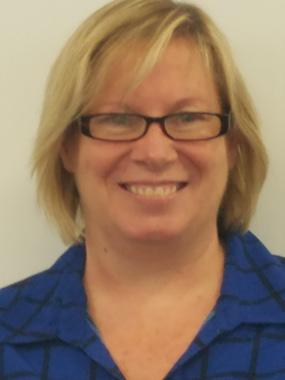
STACY LAWSON Prometric
Director of Client Success
Stacy Lawson is a Director of Client Success at Prometric. She leads an exceptional team of client success managers in ensuring all contractual requirements and service expectations are met for both new and existing client programs. Her primary focus is supporting a portfolio of over 125 Prometric clients in healthcare, financial services, education, IT and dozens of other professions requiring licensure or certification. Stacy has more than 35 years of comprehensive management, business development, account management and client success experience. She previously served as Prometric’s Team Lead for Healthcare Client Services and Manager for Government Business Development, Director of Business Development at Orbital Sciences Corp., and the same role at Raytheon. Stacy is an active member of the Council on Licensure, Enforcement and Regulation (CLEAR), serving on its Exam Resources and Advisory Committee and the Testing and Examinations Subcommittee for CLEAR’s Annual Education Conference. Stacy is also a regular attendee at the Institute for Credentialing Excellence (ICE) Exchange events as well as the Association of Test Publishers (ATP) Innovations in Testing annual conference. Stacy holds bachelor’s degrees from Duke University in Biomedical Engineering and Electrical Engineering.
Premier Sponsor
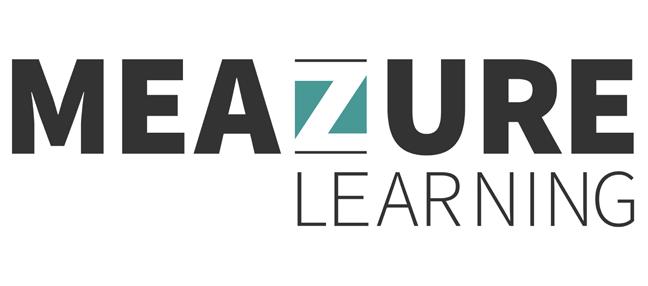
Meazure Learning provides secure, reliable, and convenient test development, administration, and delivery solutions for academic and professional credentialing programs. We offer the human expertise and end-to-end software solutions needed to achieve the optimal testing experience. With remote, test center, hybrid, and event-based delivery capabilities, we adapt to the unique needs of each exam program and test-taker. We empower our clients, testtakers, and industry leaders through our mission to move people forward in their educational, professional, and personal lives. To learn more, visit us at meazurelearning.com.
Platinum Sponsor
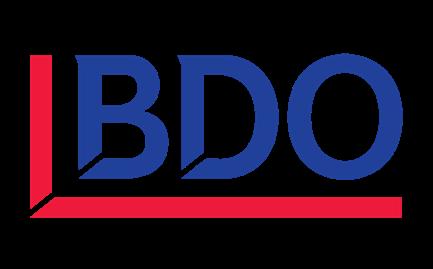
For over 100 years, BDO Canada has served communities across the country through a comprehensive range of assurance, tax, and consulting services, complemented by deep industry knowledge. Our technology division, BDO Digital, helps clients unlock innovation by providing end-to-end solutions in data and AI, cloud, modern workplace, business applications, cybersecurity, and digital strategy. With over 5,000 people across 100 offices in Canada, and more than 1,800 offices in 164 countries, BDO is well-positioned to assist clients with both domestic and global needs.
Gold Sponsors

For more than 80 years, PSI has partnered with certification, licensure, and government testing programs to protect the public and advance professional standards. Regulators and program leaders trust us to deliver secure, fair, and reliable assessments that support their mission.
Each year, PSI delivers more than 28 million tests worldwide. Our clients benefit from exceptional test taker experiences, innovative delivery solutions, and scientifically rigorous test development – all designed to uphold the highest levels of integrity.
Today, we support over 400 programs across more than 150 countries and multiple industries. Our certification clients encompass a breadth of professions from healthcare, architecture, finance, and IT to numerous highly specialized sectors. And we deliver licensure tests spanning multiple industries including insurance, real estate, barber and cosmetology, construction, and trades.
Now, with ETS, we offer more.
As part of the ETS family, PSI offers an even broader portfolio of testing services, along with long-term investments in people, processes, and technology. ETS and PSI combine stability and scale with adaptability and innovation in a rapidly evolving assessment landscape.
Together, we are harnessing the power of AI to enhance the efficiency and fairness of test development, and to strengthen test security by detecting and preventing misconduct. Ensuring every exam upholds public trust.
Learn more at psiexams.com.
WeirFoulds regularly acts for several professional regulatory bodies, assisting them with their mandates to serve and protect the public interest, maintain high standards among registrants and foster public confidence. We provide advice on such matters as governance, statutory compliance and interpretation, and regulations, by-laws, and policies. We routinely advise on registration matters, establishing codes of ethics and standards of practice, and investigations of complaints and reports. We conduct discipline and fitness to practice hearings and enforcement proceedings. We also act as independent legal counsel to several regulatory bodies, assisting tribunal members in the context of hearings. All these engagements require a sensitivity to the unique legal challenges facing regulatory bodies – a sensitivity that our lawyers have acquired through many years of experience.
Gold Sponsors

For Good Measure (4GM) is Canada’s testing solutions company. Formed as a benefit company by the recent partnership between Spire Psychometrics and Assessbank Examination Software, 4GM provides industry leading expertise and experience in high stakes testing specifically focused on Canadian regulators. Its team of psychometric consultants have helped to shape Canadian examination policy and programs for the past 20 years in professions such as Paramedics, Law, Engineering, Physiotherapy, and Dental Hygiene. Our fully customizable item bank and examination platform is richly featured and hosted exclusively in Canada. Our developers are not only experts in scalable, redundant internet-based systems and architecture, but also innovators in harnessing AI to solve critical problems in testing and quality assurance. Perhaps most importantly, we care deeply about partnering with and serving our Canadian clients, however large or small, providing them with the attention and service they deserve.

Touchstone Institute is the largest assessment centre of its kind in Canada. We provide professional competency assessment, simulation and learning programs primarily focused on meeting the needs of internationally educated health professionals.
Silver Sponsors
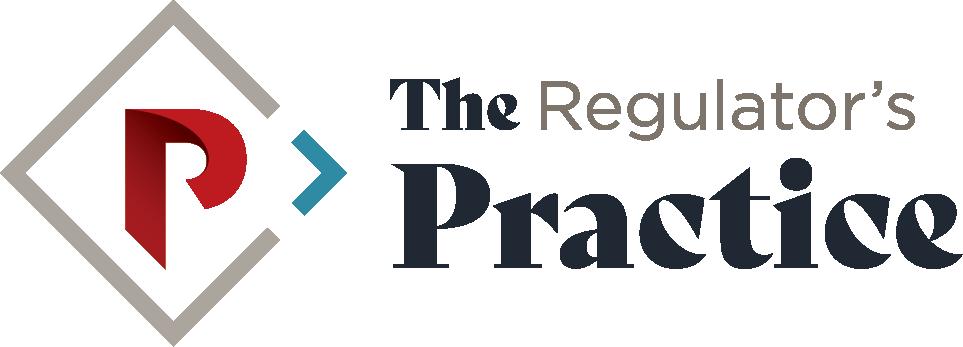
The Regulator’s Practice is a collection of experienced regulatory practitioners with a passion for supporting the leaders who have chosen to serve and protect the public. We partner with regulatory leaders seeking real organizational change. We understand the regulatory context and the continuous evolution required to ensure regulators are fit for purpose and meeting the shifting expectations of the public. Our purpose is to support regulatory leaders as they evolve their leadership, strategy, and governance to influence this change. We have worked with a wide range of regulators and boards around the world, understand the current state of regulatory governance in different jurisdictions, and how emerging regulatory practices can maximize impact.
Practise. Evolve. Influence.

Since 2004, Benard + Associates has provided investigation services to professional regulators in Ontario and across Canada. This leading regulatory investigation firm serves well over 60 regulatory bodies and associations, who rely on Benard + Associates to investigate hundreds of cases each year, while ensuring they are managed fairly, efficiently, and accurately. The company also provides mediation, education, and coaching services aimed at resolving disputes, enhancing knowledge and skills, and supporting investigative staff. Benard + Associates laser focus on regulation has established them as the investigation experts, and a reliable and trustworthy resource to all their clients.

Prometric is a leading provider of testing and assessment solutions, supporting over 25 million exam hours and serving more than eight million candidates every year. Using AI-powered development tools, robust assessment delivery capabilities, stringent security, and dedicated candidate support services, Prometric ensures the success of testing programs for leading organizations in over 180 countries. For more information, visit Prometric.com or follow us on LinkedIn at www.linkedin. com/company/prometric/.
Bronze Sponsors






Bronze Sponsors




EXHIBITOR SPONSORS

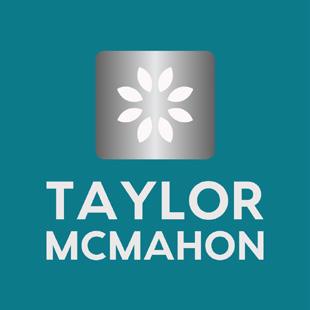

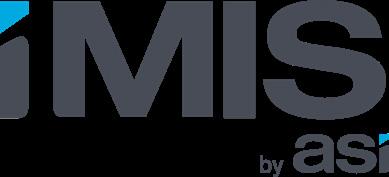

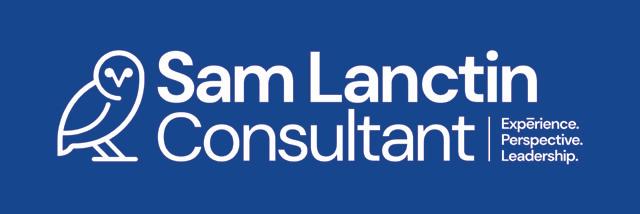
EXHIBITOR SPONSORS
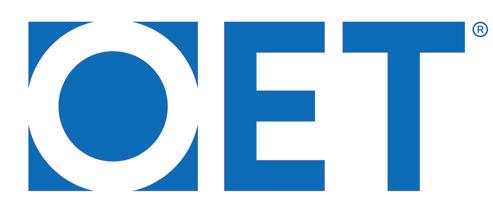
FEATURE SPONSORS
HOTEL KEYS
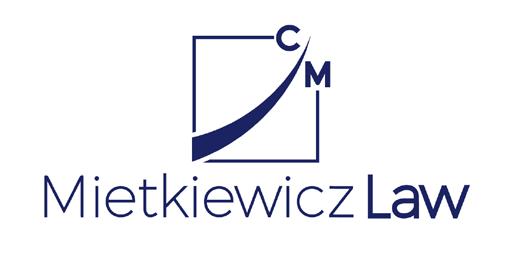
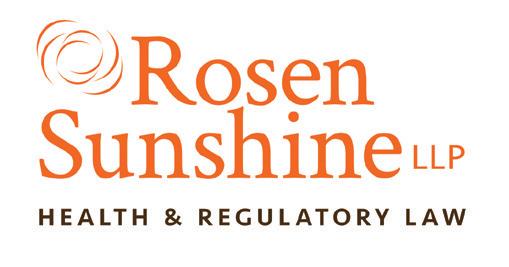
LANYARDS

CHARGING STATION
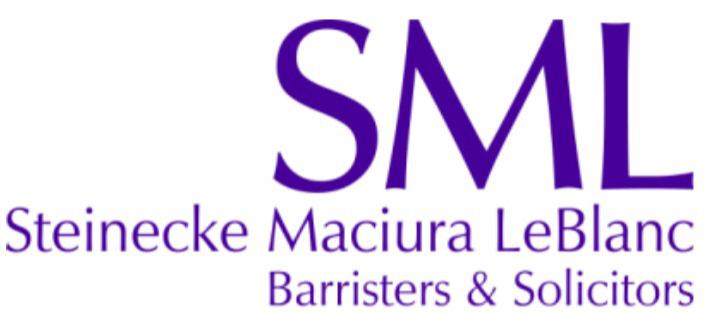
Montreal, Quebec
October 5-7, 2026

